The Faces of Disaster
Hurricanes. Tornadoes. Wildfires. Floods.
Homes were destroyed and memories incinerated. Lives were lost and families fractured. Disasters changed everything, but they survived.
Produced by Allie Barton, Briana Castañón and Anya Magnuson
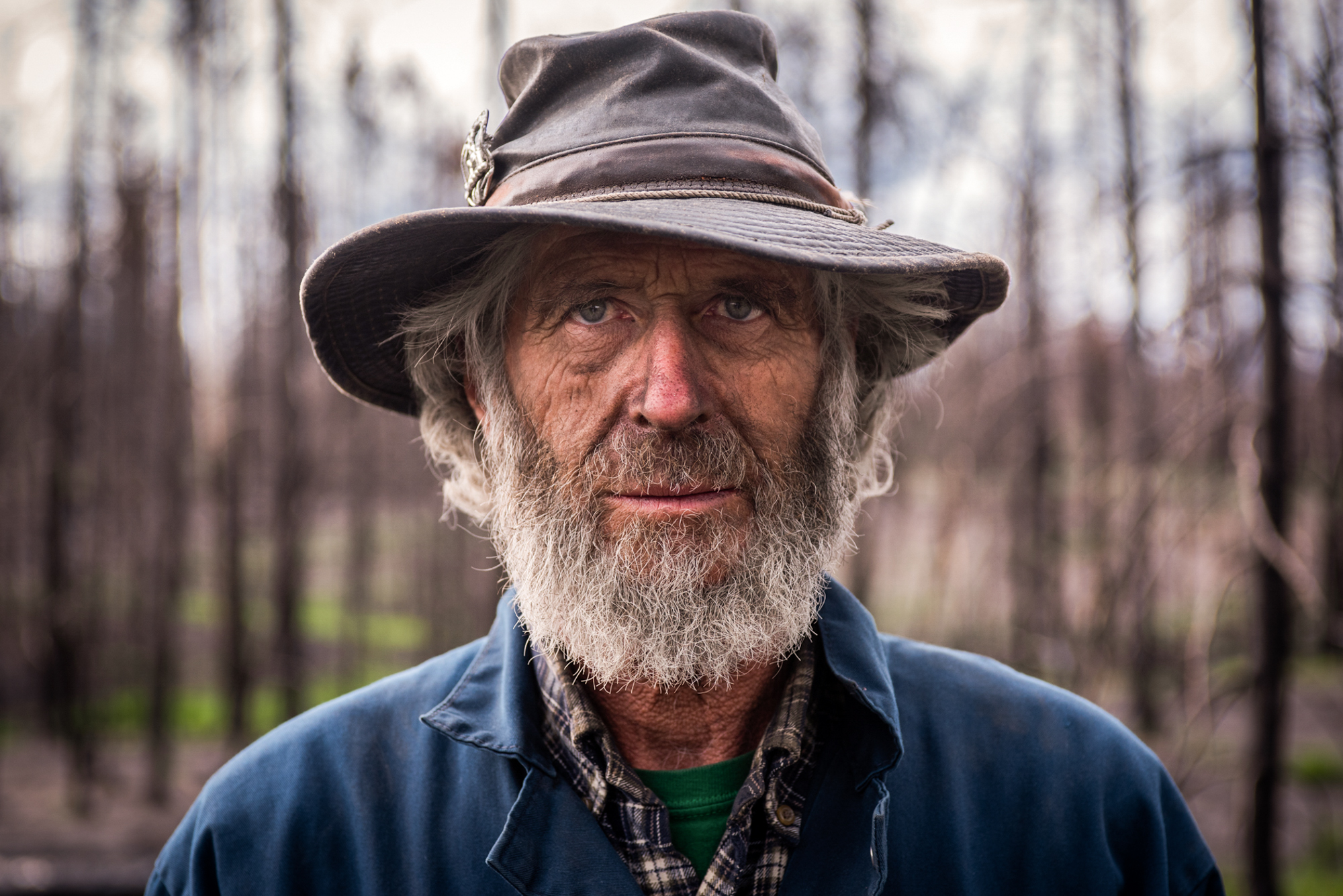
Bruce Cameron | Roosevelt Fire, 2018
Bruce Cameron lost his house and several vehicles to the 2018 Roosevelt Fire in Hoback Ranches, Wyoming. After the fire, Cameron suffered two brain aneurysms, and he now is working to clean up what used to be his home. (Dustin Patar/News21)
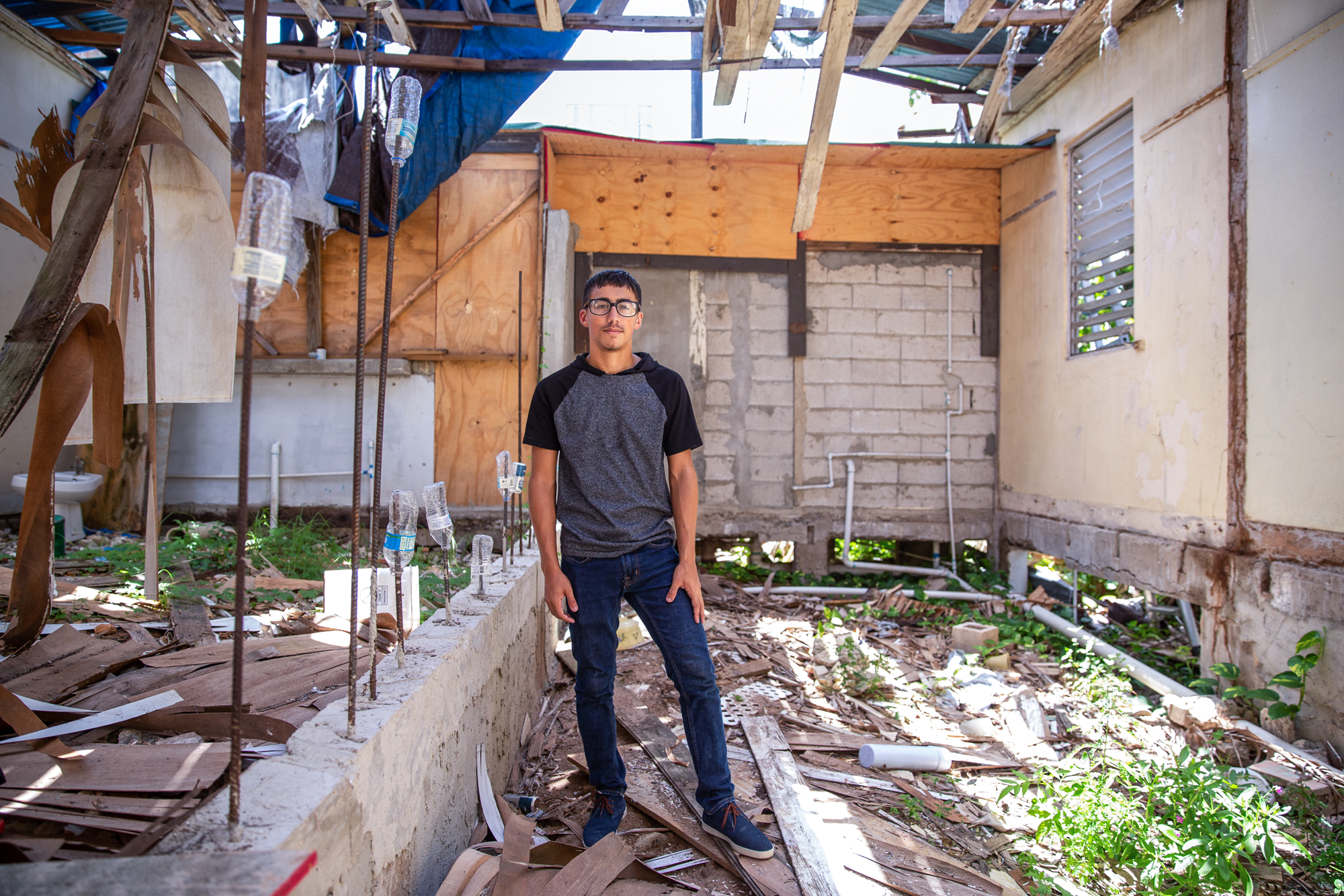
Ángel Morales Jr. | Hurricane Maria, 2017
Ángel Morales Jr. turned 18 in September 2017, three days after Hurricane Maria destroyed his family's home in Puerto Rico. Nearly two years later, the family has received little government assistance to repair their home and has had their electricity cut off due to overdue bills. (Ellen O'Brien/News21)
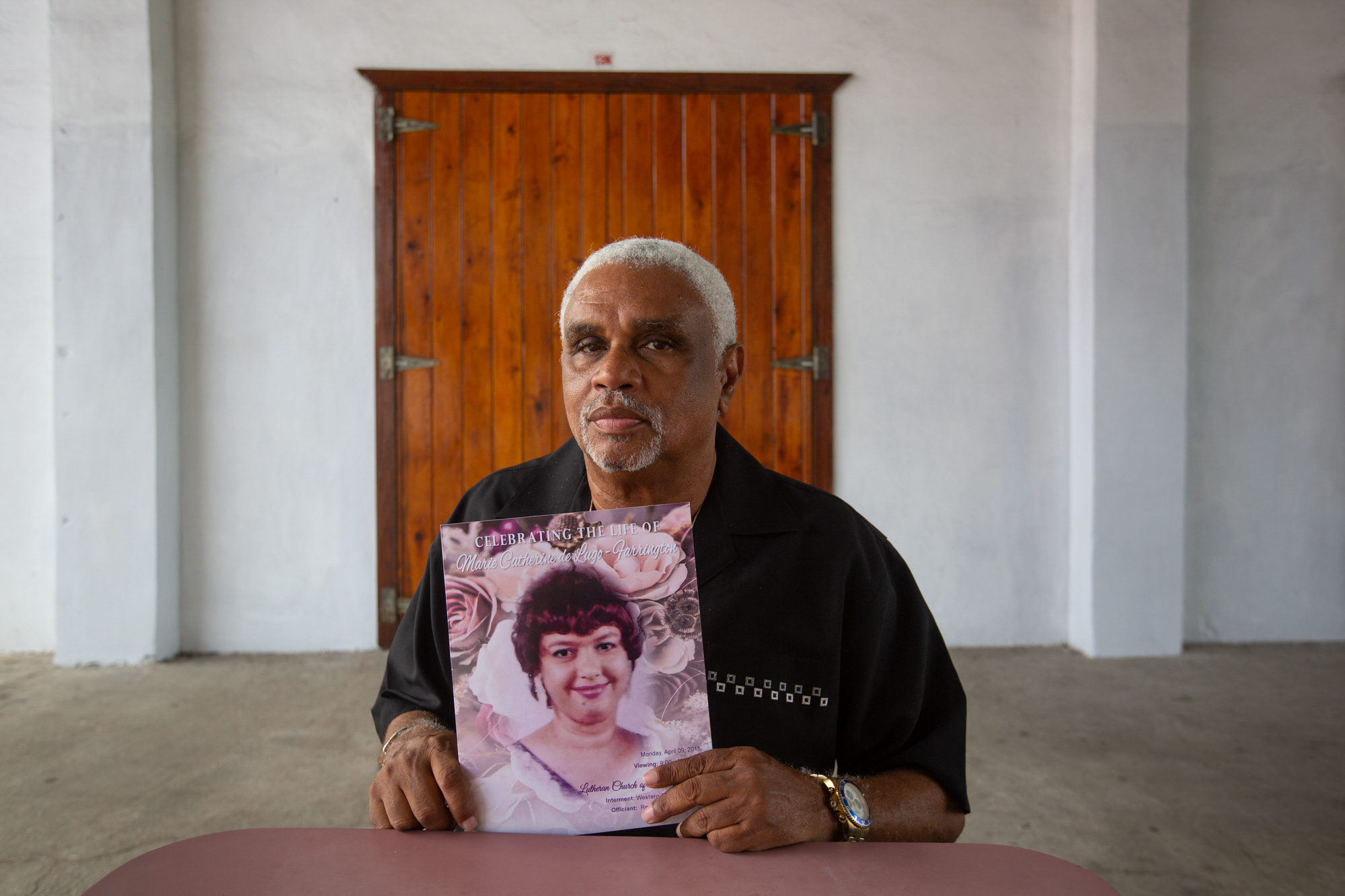
Michael Farrington | Hurricane Irma, Hurricane Maria, 2017
Michael Farrington of St. Thomas, U.S. Virgin Islands, holds a copy of his wife's funeral program. Marie Catherine de Lugo-Farrington was medically evacuated to Puerto Rico before Hurricane Irma, then evacuated to the mainland before Hurricane Maria hit Puerto Rico. She died shortly after Farrington brought her home to St. Thomas. He says FEMA did a poor job of tracking patients who were medically evacuated. (Anya Magnuson/News21)
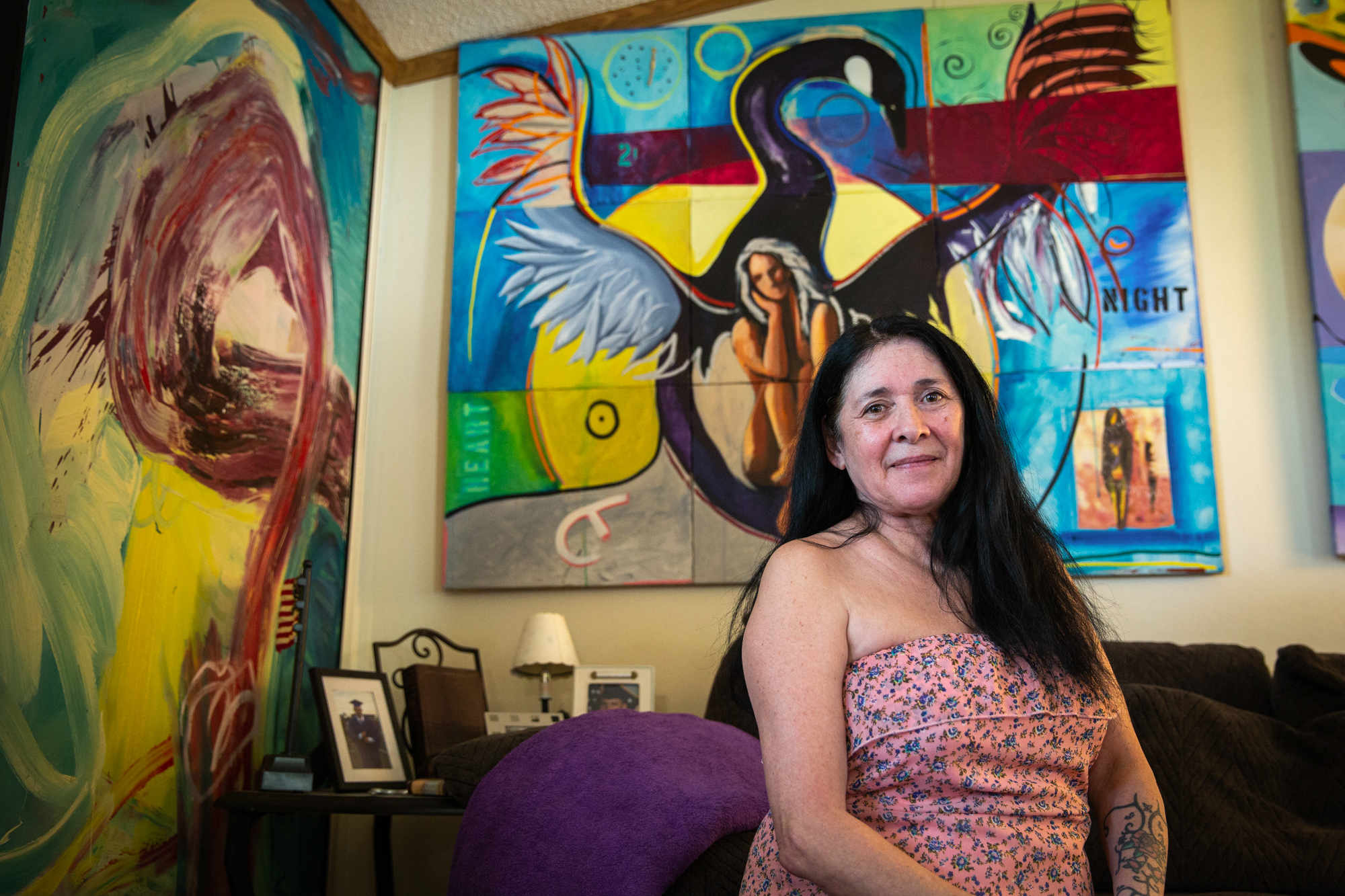
Patricia Buffone | Alaskan earthquake of 1964, Hurricane Katrina, 2005
Patricia Buffone lived through two of the nation's largest natural disasters: Hurricane Katrina and the 9.2 magnitude Alaskan earthquake of 1964. “I am who I am today because of what I’ve gone through,” she says. “I know what it’s like to start over at 30, to start over at 60.” During Hurricane Katrina, the now-retired nurse helped pull residents onto the roof of a St. Rita's Nursing Home in St. Bernard Parish, Louisiana, where 35 trapped residents ultimately drowned in their beds and wheelchairs. (Briana Castañón/News21)
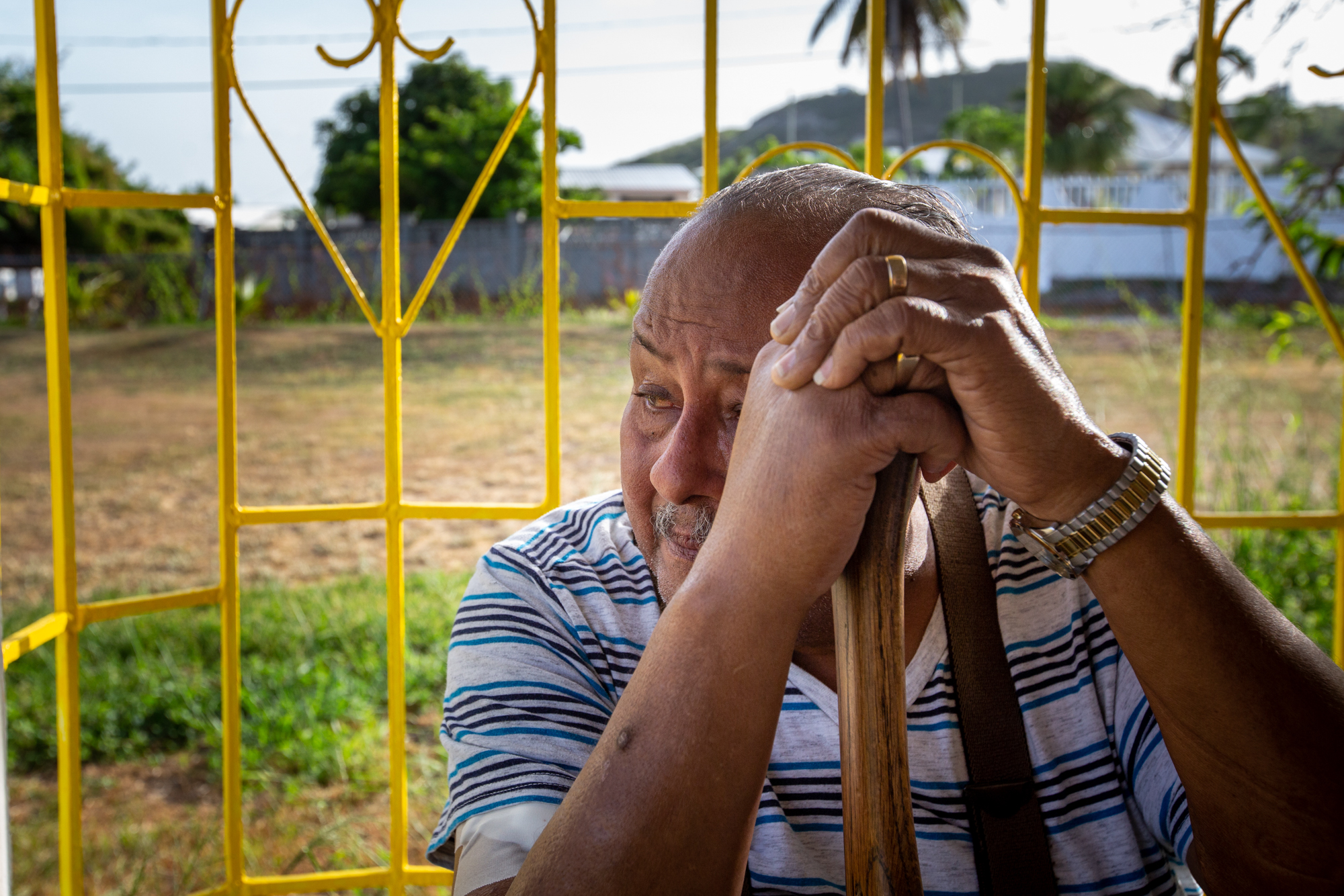
Wallace Phaire | Hurricane Irma, 2017
Wallace Phaire, 69, still lives in the house where he was born on St. Croix, U.S. Virgin Islands. Since his kidney was damaged in a car accident, Phaire has depended on regular dialysis treatments. He and his wife left the Virgin Islands about two weeks before Hurricane Irma and were unable to return for more than nine months because no dialysis centers were open on the islands. While they were away, the house fell into a state of disrepair. (Anya Magnuson/News21)
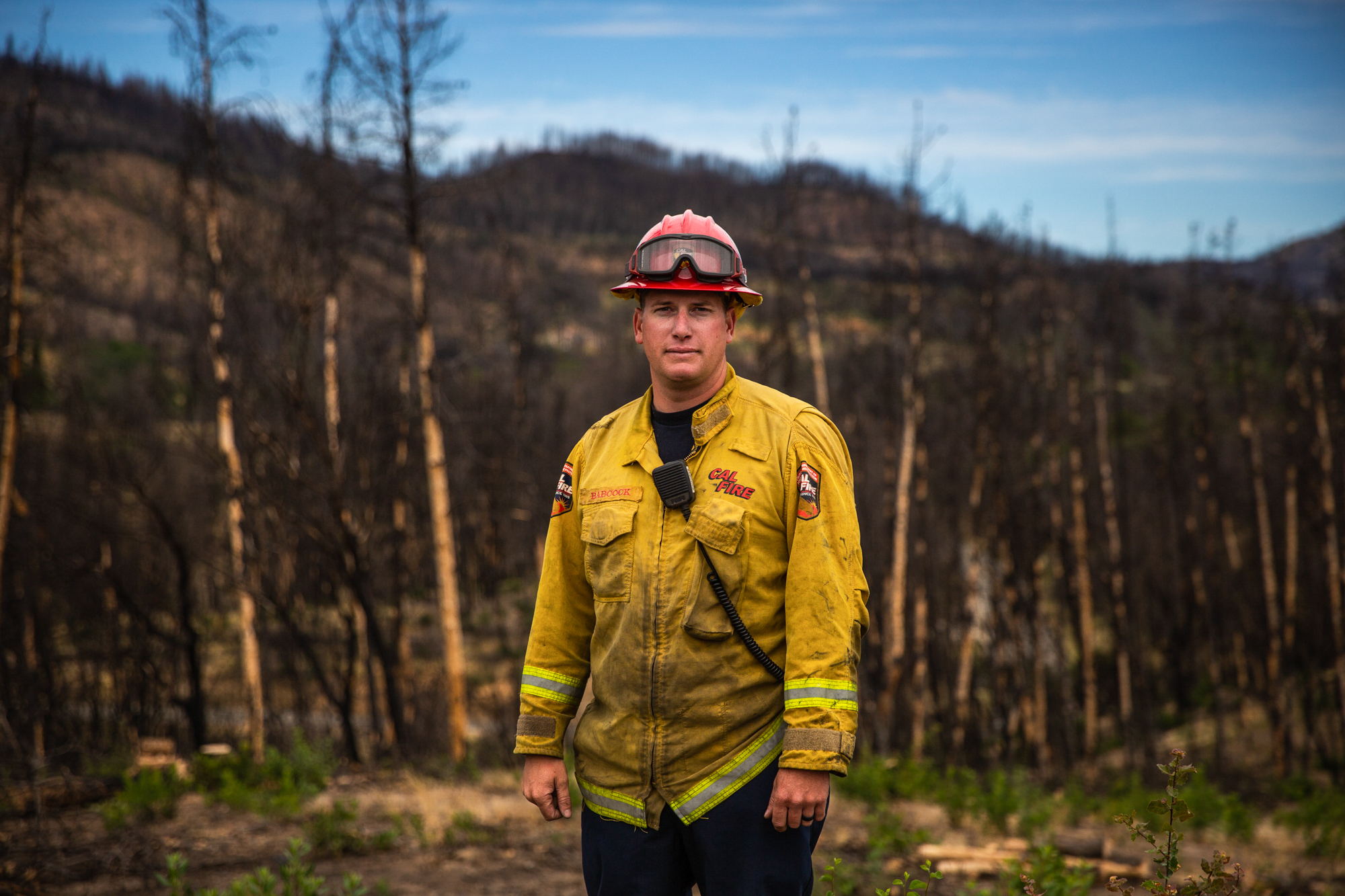
Greg Babcock | First responder on the Carr Fire, 2018
Capt. Greg Babcock leads 26 members of Cal Fire and the California National Guard as they clear areas that burned in the 2018 Carr Fire near Redding, California, hoping to eliminate potential fuel for a future fire. “As years progress, (fire) seasons have been getting longer,” he said. “It seems lately in the last few years, fires have been more devastating.” (Anton L. Delgado/News21)
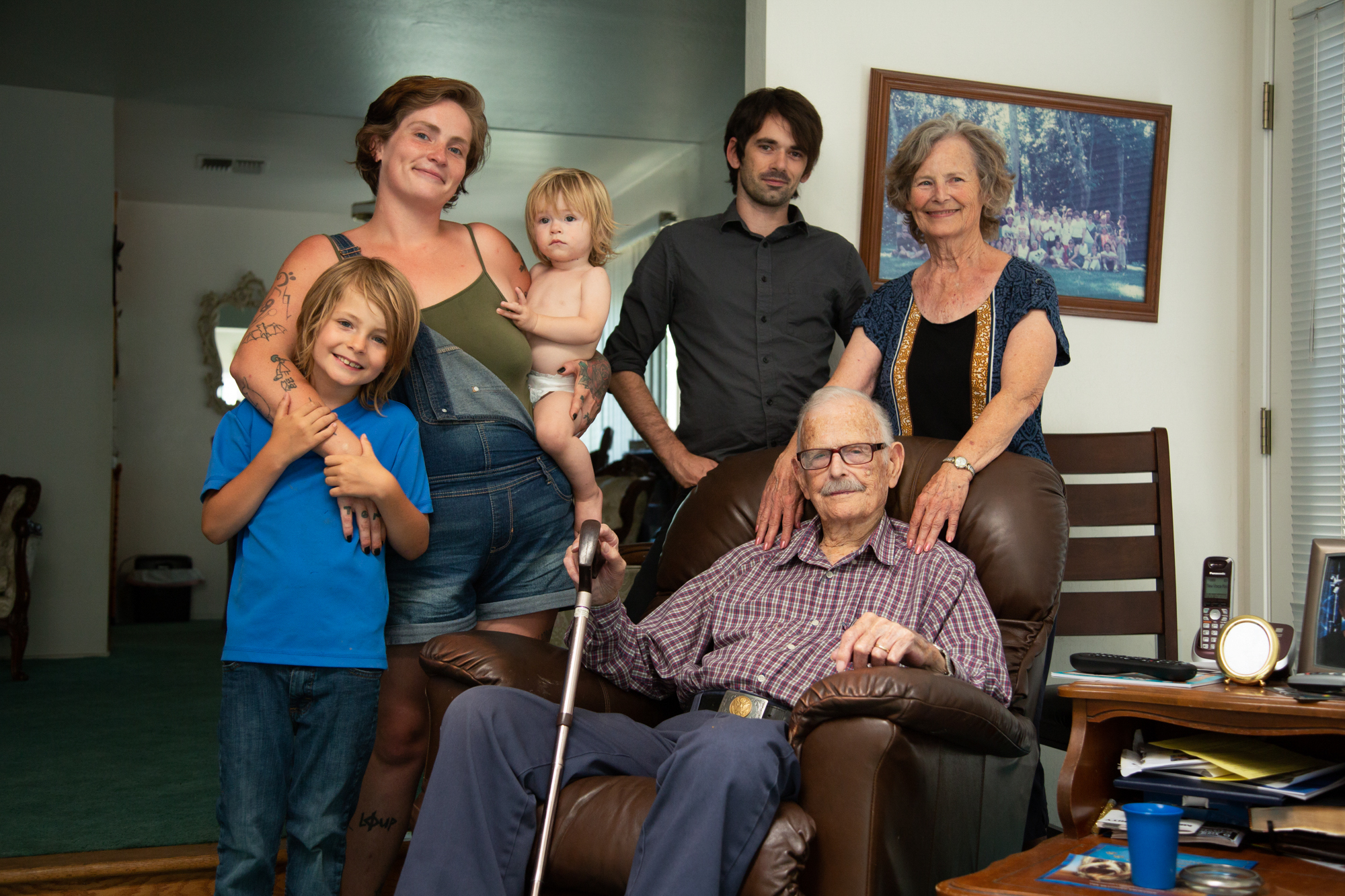
Sara Stewart and family | Camp Fire, 2018
Sara Stewart and her sons, Griffin and Rivers, had been living in Paradise, California, with Sara's grandmother, Donna Stewart (far right) until Donna's home was destroyed in the Camp Fire. The whole family now is staying with Sara's great-grandfather in Chico. But Sara plans to move into a trailer home to live in with her sons. (Allie Barton/News21)
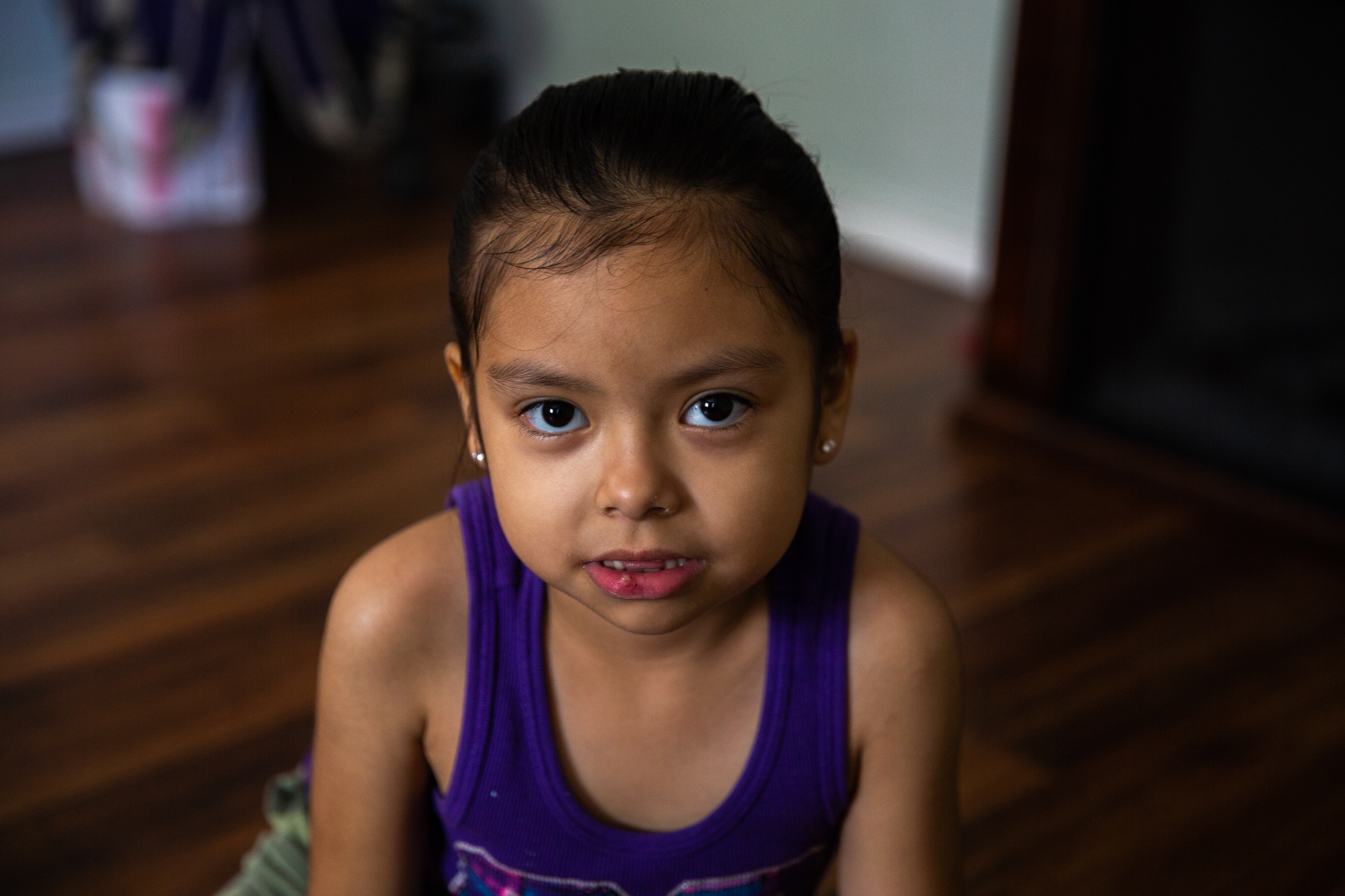
Ester Escobedo | Hurricane Harvey, 2017
Ester Escobedo's mother, Ruth Escobedo, worries that the poor condition of her house will negatively affect the health of her two daughters, Ester, 6, and Mia, 1. Hurricane Harvey damaged the foundation and left behind mold, cracked floorboards and uneven concrete pathways. (Rachel Farrell/News21)
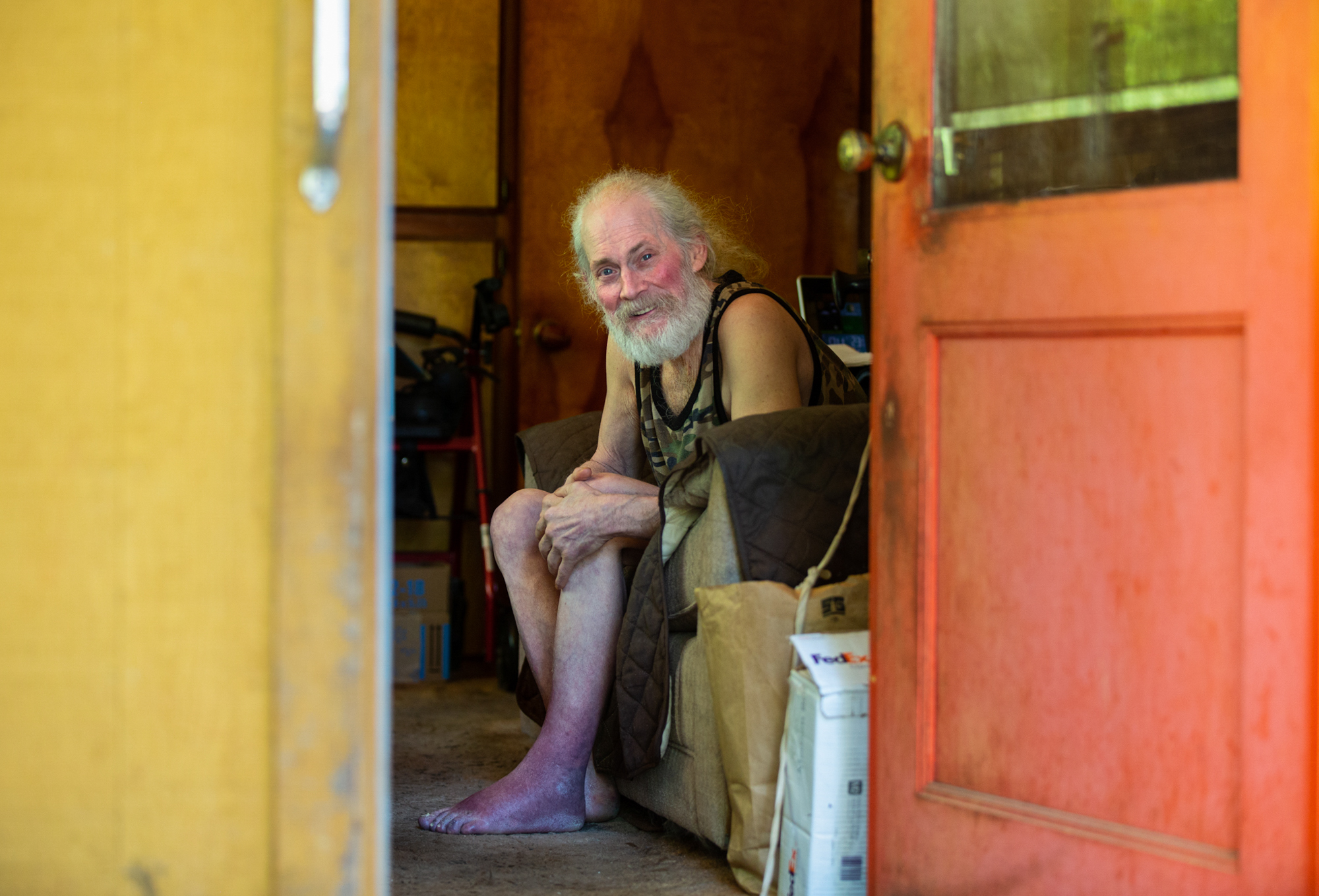
Garry Kiely | Shingletown, California, high risk for wildfire
Garry Kiely was dagnosed with multiple sclerosis the same year he moved to Shingletown, one of California's most wildfire-vulnerable communities. He lives alone and doesn't own a car. If a wildfire approaches the town, his evacuation plan depends on asking around for a ride. (Anton L. Delgado/News21)
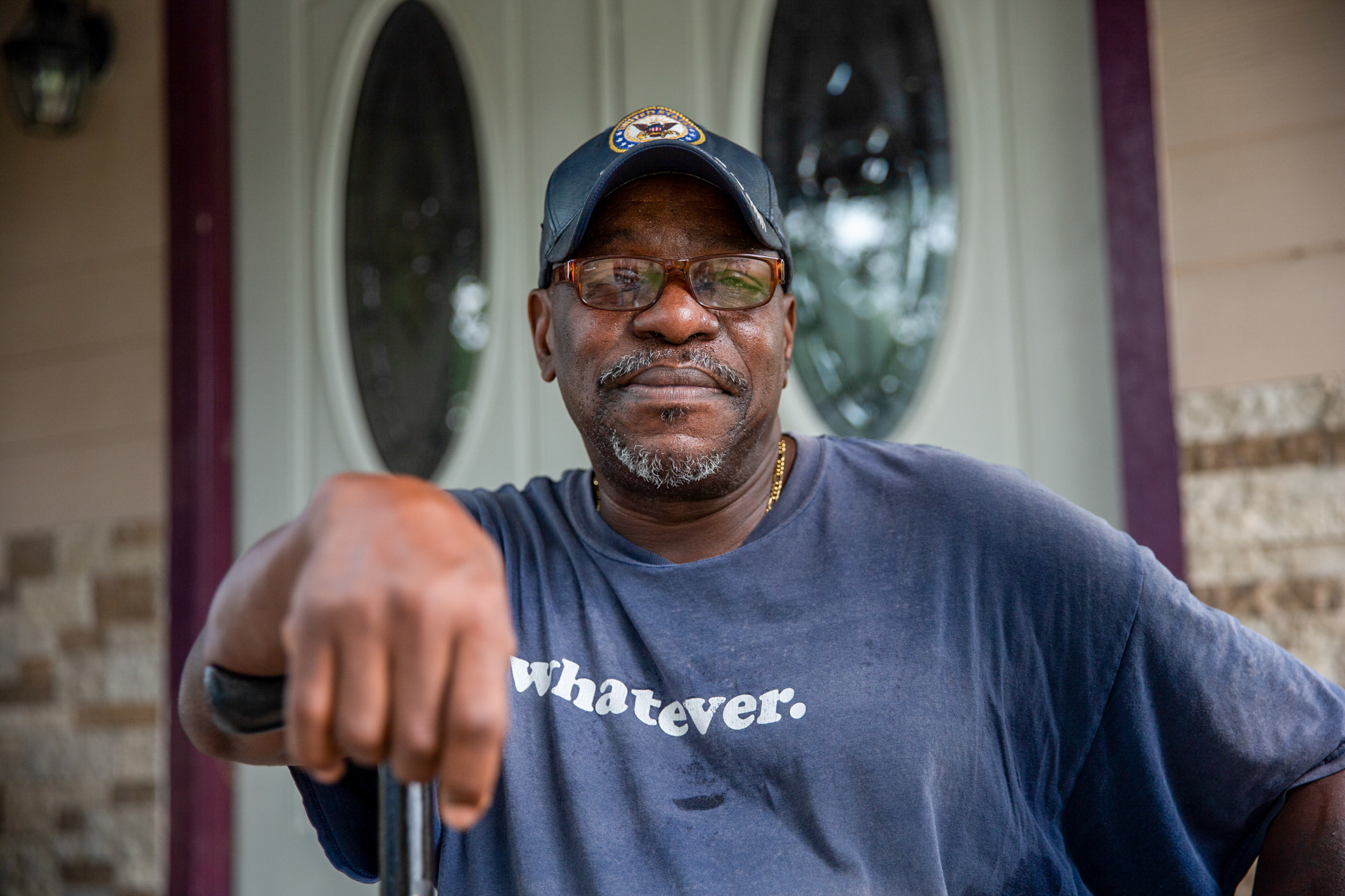
Forrester Johnson | Hurricane Harvey, 2017
Forrester Johnson and his wife lived in a handicap-accessible FEMA trailer for a 18 months after Hurricane Harvey. The couple moved back into their home, even though it wasn't finished, when FEMA began charging them $750 a month to stay in the trailer. Johnson now owes $1,500 he doesn't have because every penny has gone into rebuilding the house. (Stacy Fernández/News21)
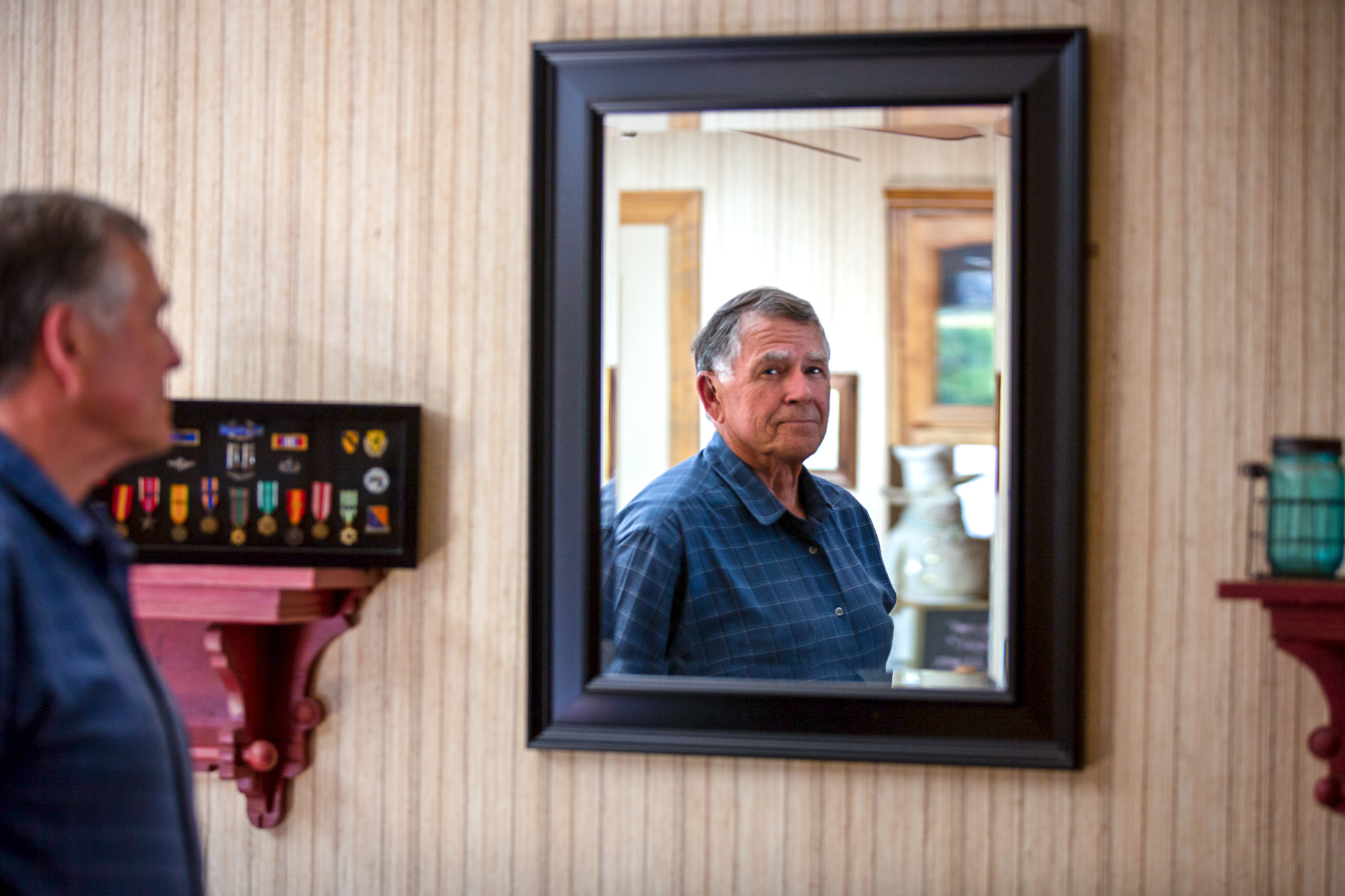
Tom Twist | First responder in Northern California
Tom Twist, a decorated veteran of the Vietnam War, said he sees many similarities between the firefights of Vietnam and the chaos of fighting a wildfire. The longtime resident of Shingletown, California, and co-founder of the volunteer fire department works with the local Fire Safe Council to help the community stay ready for fire season. (Anton L. Delgado/News21)
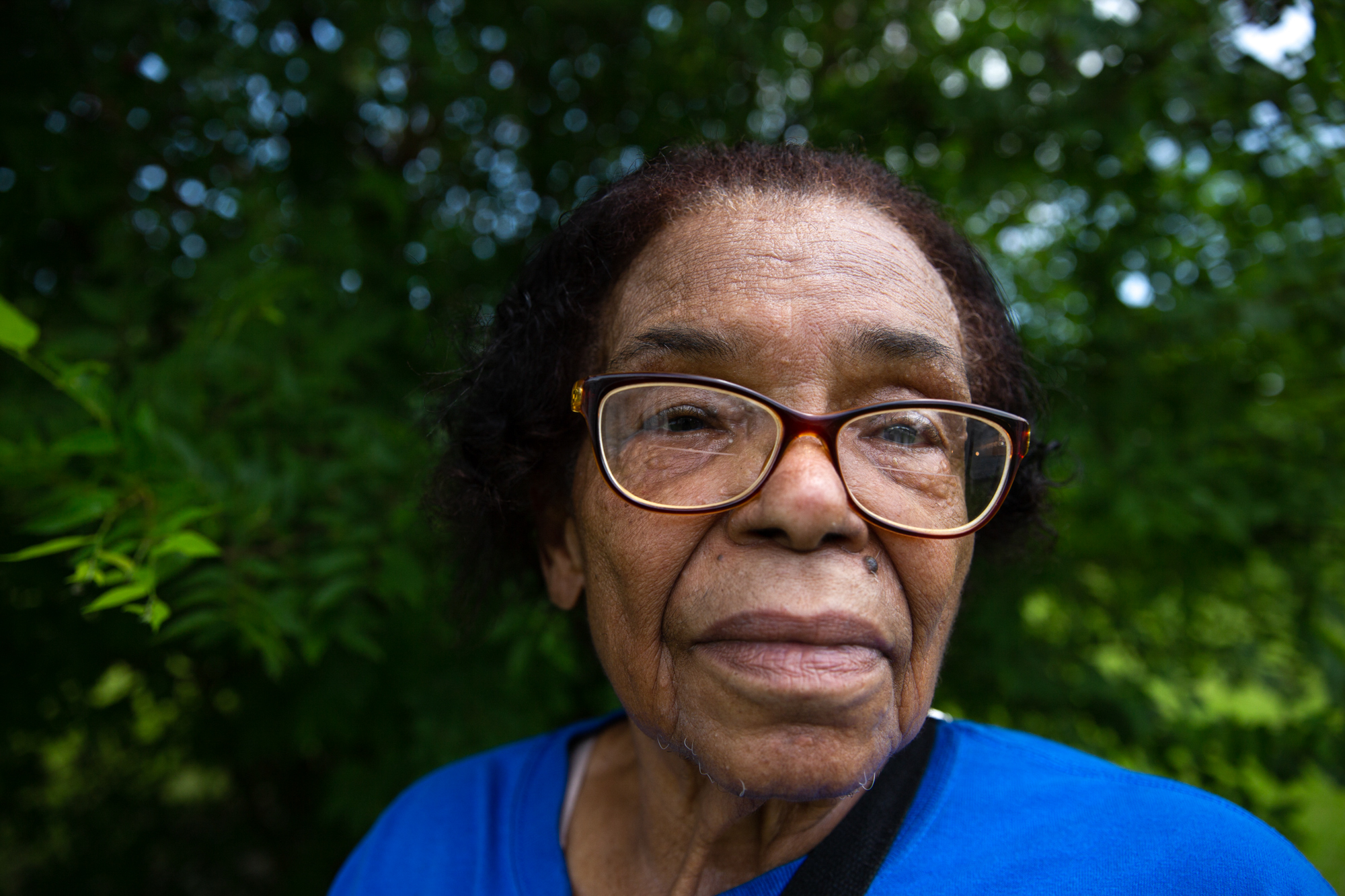
Maggie Henry | Hurricane Harvey, 2017
Maggie Henry, 87, has been living with her children since Hurricane Harvey swamped her home in Port Arthur, Texas. When she evacuated, Henry brought her medication and burial papers with her, just in case. She hopes to move back home this year when repairs are finished. (Stacy Fernández/News21)
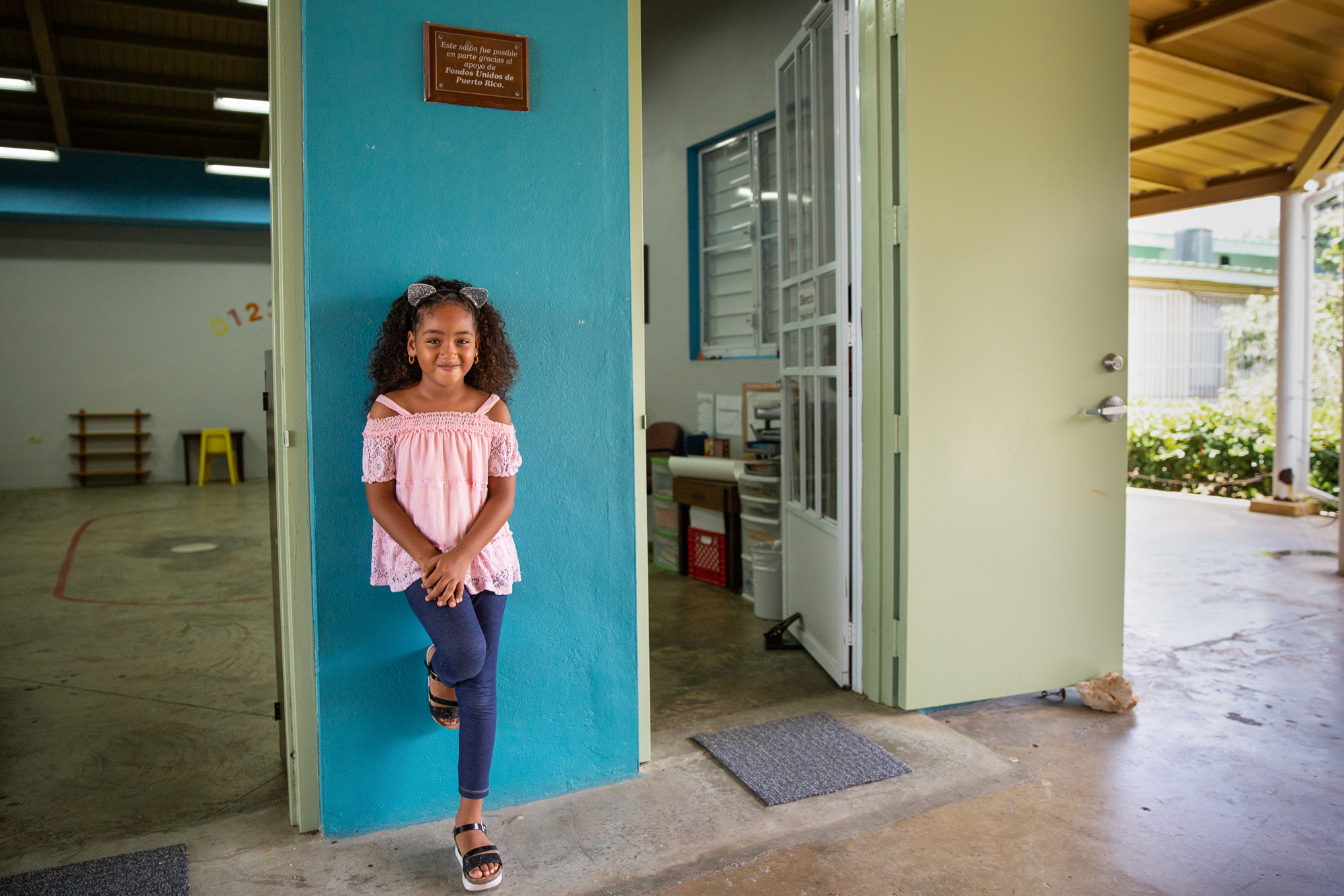
Jailiany Delgado | Hurricane Maria, 2017
Jailiany Correa was 5 when Hurricane Maria slammed into Puerto Rico. She doesn't remember much about the storm, but her grandmother says the girl just wanted to return home. “She would call me every day and be like, 'I want to go back home, I want to go back home, I want to see you,'” Deborah Delgado said. (Ellen O'Brien/News21)
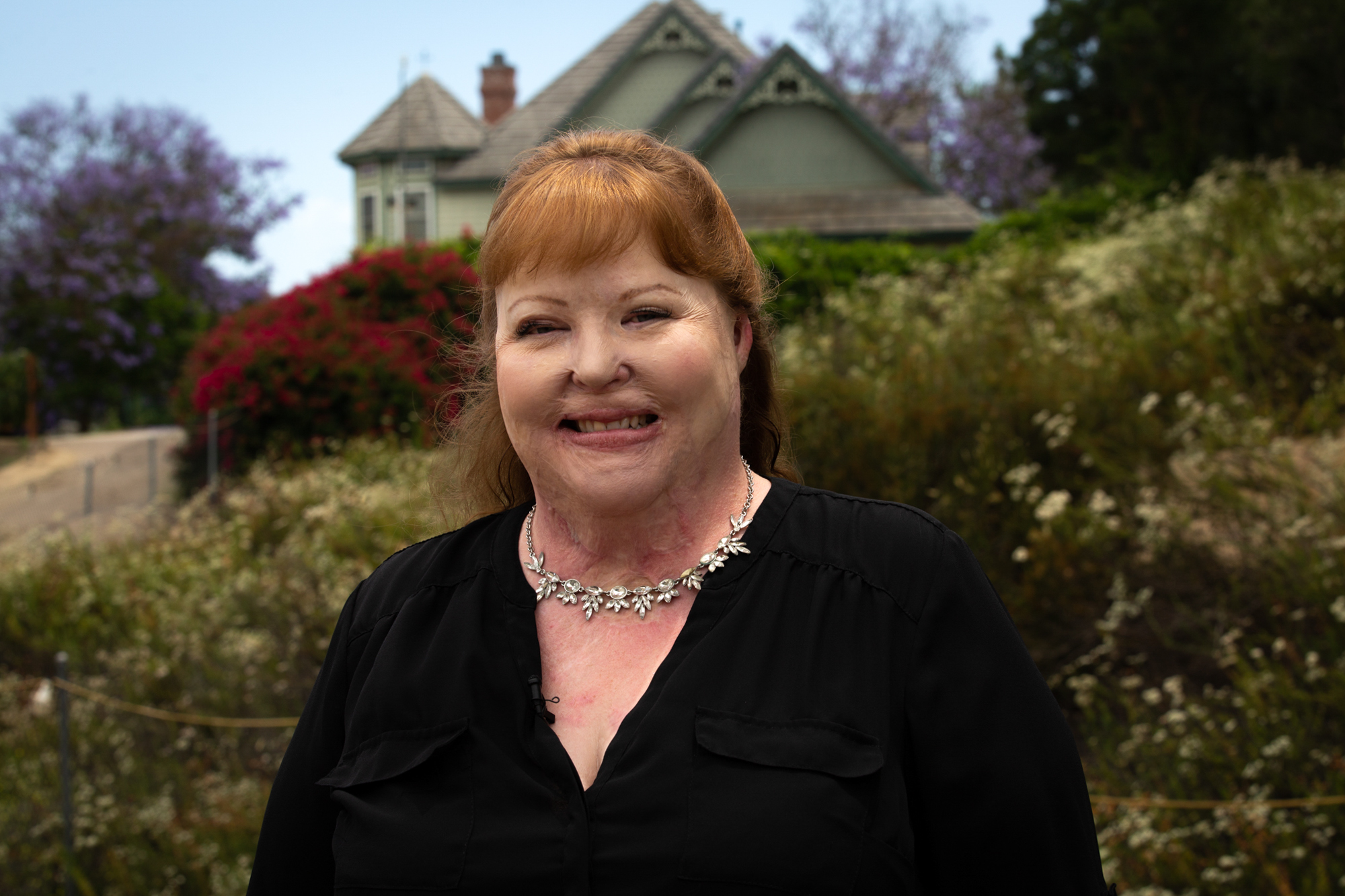
Allyson Watson | Paradise Fire, 2003
Allyson Watson lost her younger sister and family's home to the 2003 wildfires that devastated Southern California. The family tried to evacuate by car, but when the car crashed into a burning bush, 16-year-old Ashleigh was trapped inside and Allyson suffered burns on 85% of her body. She has had more than 20 reconstructive surgeries since then. Watson, who was 20 at the time, is an advocate of smarter building practices. (Kailey Broussard/News21)
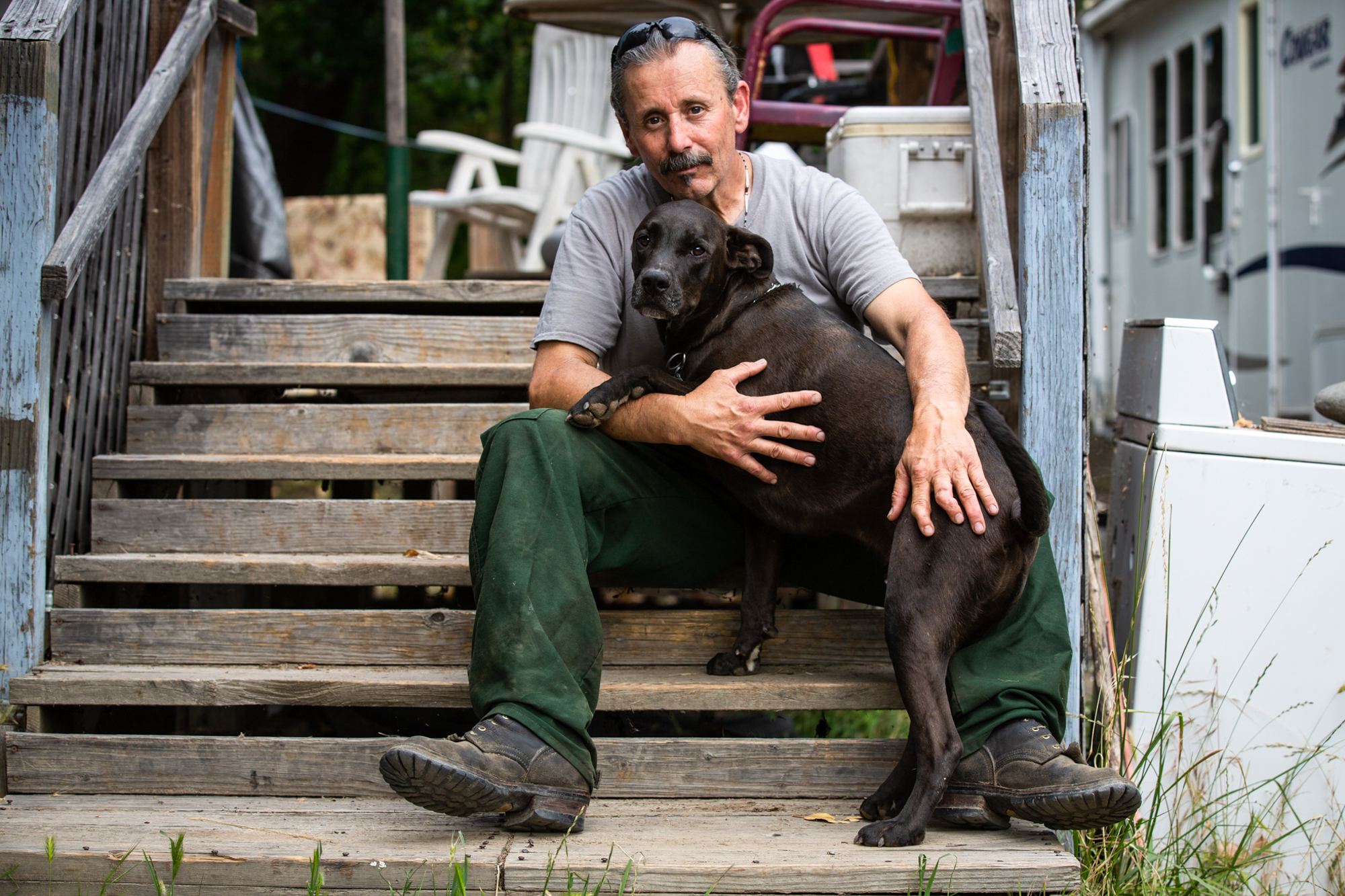
David Rubalcaba | First responder 2003 Wildfire Season (hurt in Inyo National Forest)
As the “burn boss” of the Karuk Tribe in Northern California, David Rubalcaba supervises all its prescribed burns. The former smoke jumper, who injured a hand fighting a 2003 wildfire in the Inyo National Forest, believes carrying out planned burns to remove fuel loads is the most effective way to fight fires. His dog's name is Choco. (Anton L. Delgado/News21)
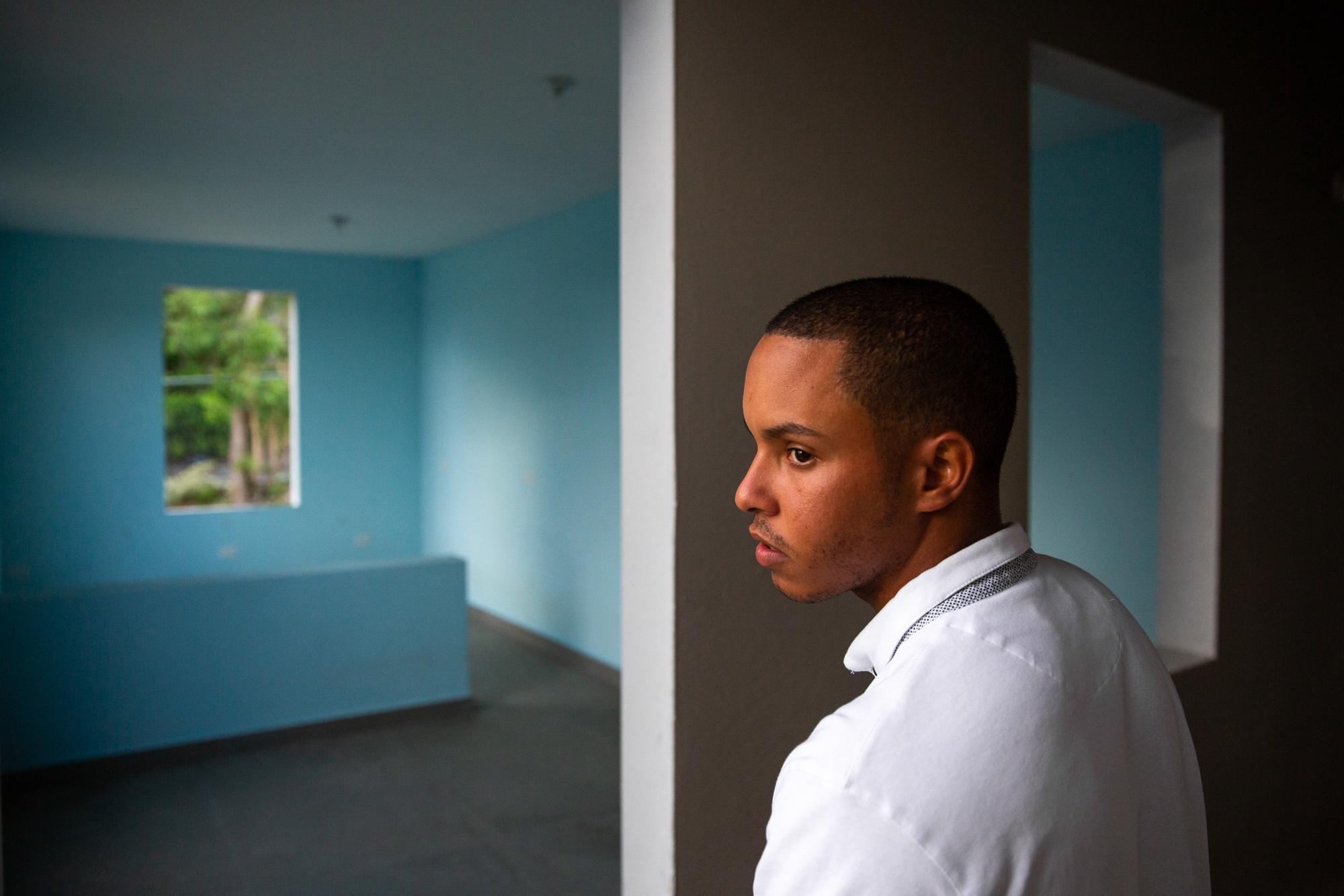
Omar Charriez | Hurricane Maria, 2017
Omar Charriez, 22, has lived at the Forjadores de Esperanza shelter in Puerto Rico for nine years. During Hurricane Maria, the shelter lost its roof and Charriez helped the other boys stay calm. After the storm was over, Charriez worried about the shelter's future. “I was thinking ‘What is going to happen now?’” he recalled. “If the shelter is actually going to close, what is going to happen with the kids?” (Ellen O'Brien/News21)
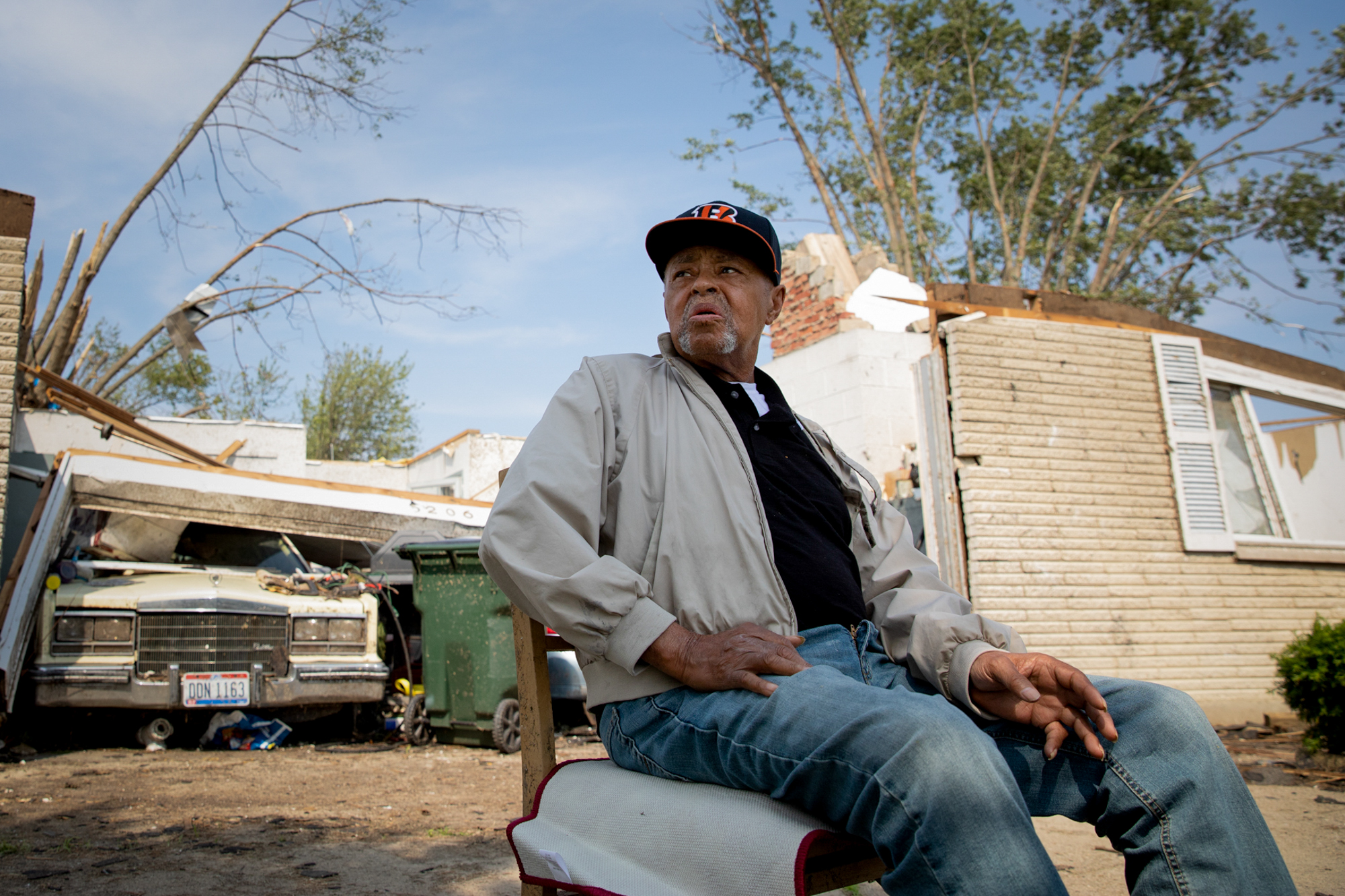
Charles “Smitty” Smith | Ohio Tornado (EF3), 2019
After a series of tornadoes in Ohio in May 2019, Charles “Smitty” Smith, 76, was trapped under his wooden bedframe. All he could see was a tree and bits of sky. His roof was gone, but his 50 or so suits remained in the closet, and pictures of his mother and father still hung on the wall. Even though Smith's home in Trotwood is unlivable, he has to make payments on it until 2025. He thought his insurance would pay it off but discovered “it doesn’t work like that.” (Stacy Fernández/News21)
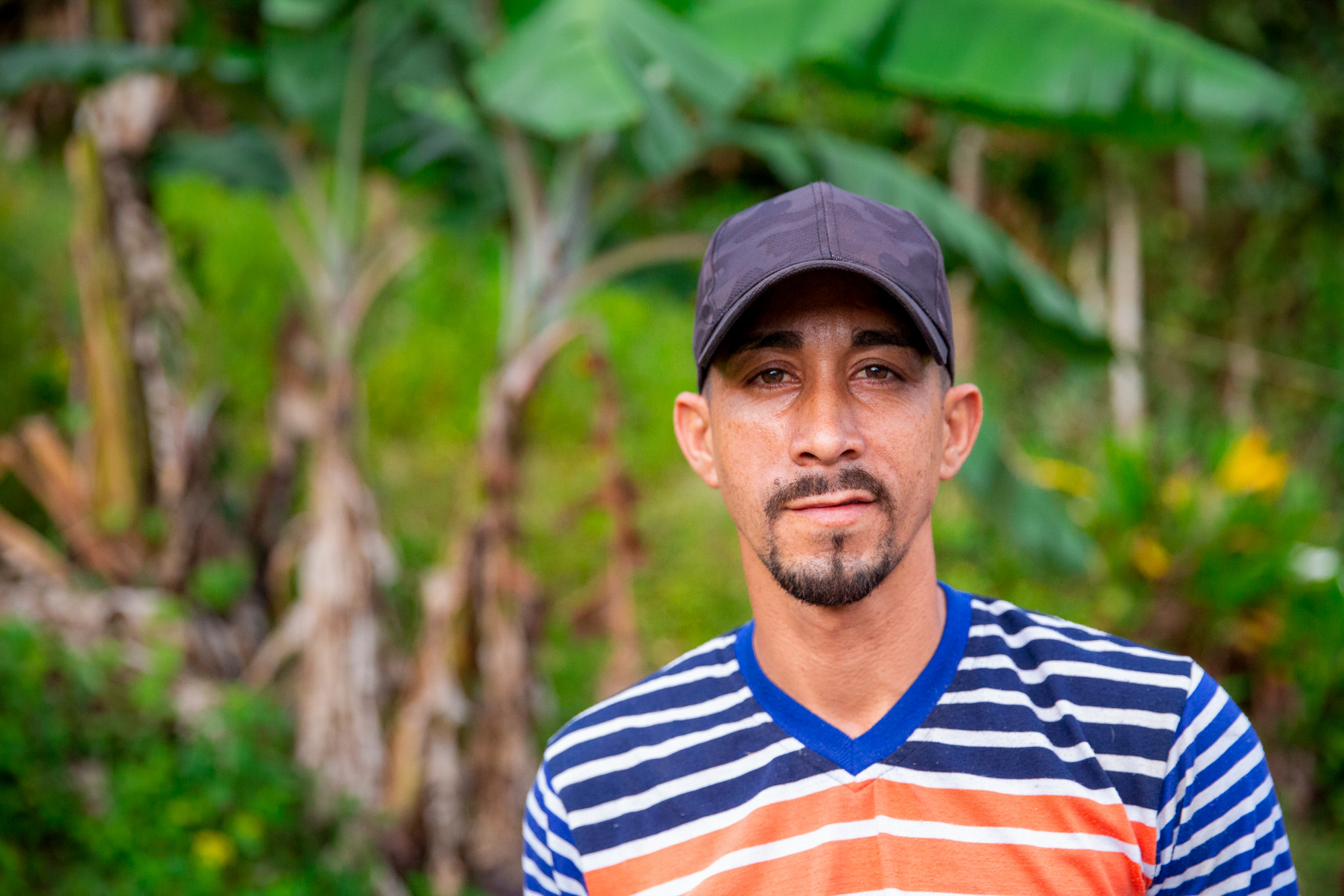
Luis Rosado | Hurricane Maria, 2017
Luis Rosado and his family lost their home in Hurricane Maria, which meant he and his 11-year-old daughter, who both have Type 1 diabetes, could not keep their insulin cold. After months of scouring for ice every day, Rosado finally received a generator from a nonprofit. (Ellen O'Brien/News21)
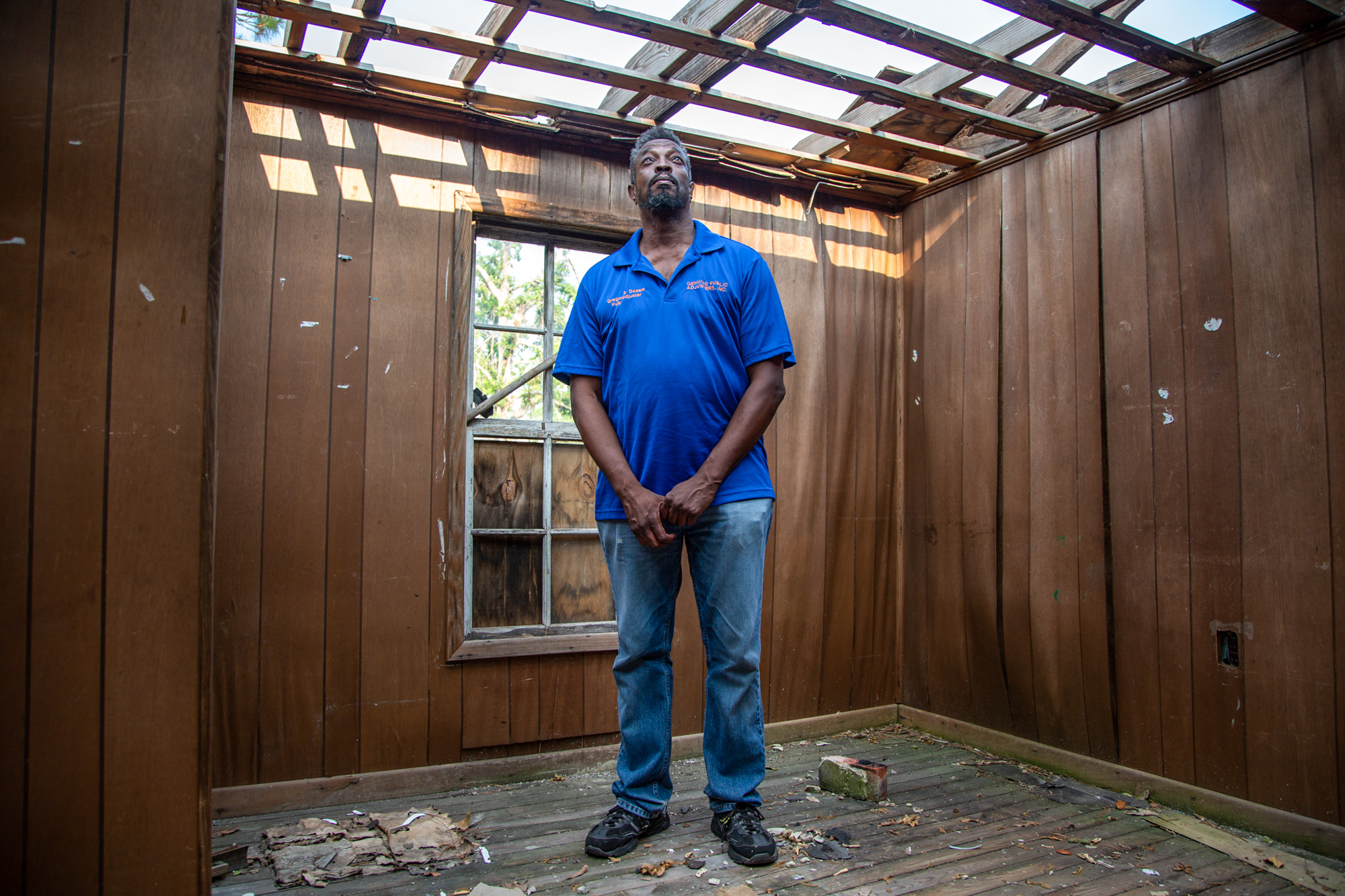
Greg Dossie | Hurricane Michael, 2018
Greg Dossie of Panama City, Florida, lives next door to his childhood home, which was torn apart by Hurricane Michael. “People are thinking we're going be back to normal in two, three, four, five years,” Dossie said. “It's not going to happen.” (Jake Goodrick/News21)
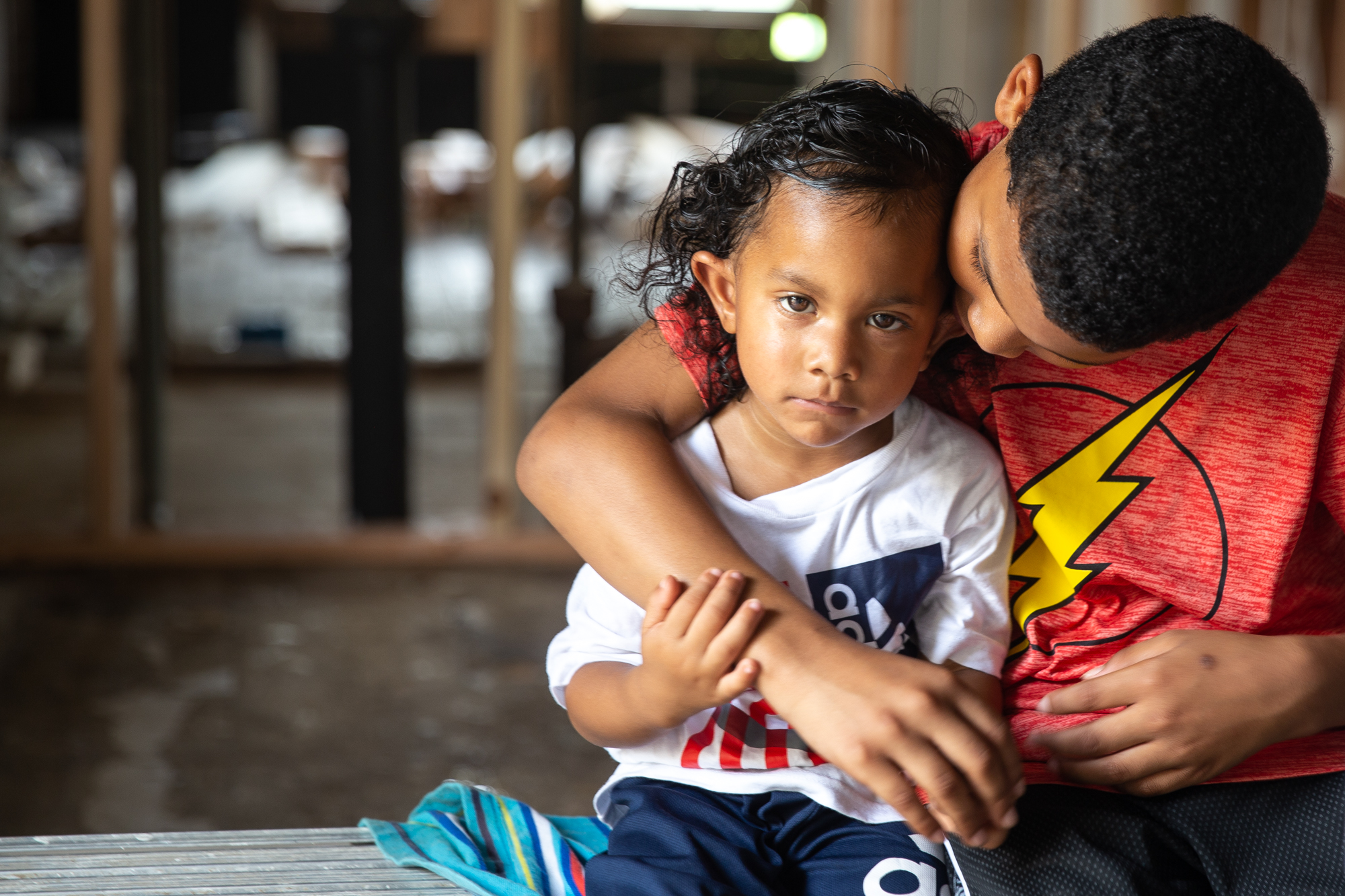
Alonzo and Walter Beal | Hurricane Harvey, 2017
Alonzo Beal, 11, and his 3-year-old brother, Walter, are part of a family of six living in a two-bedroom home in Houston since Hurricane Harvey destroyed their house and all their belongings. The family did not receive enough money from FEMA to repair their house, instead squeezing into the much smaller place next door. (Rachel Farrell/News21)
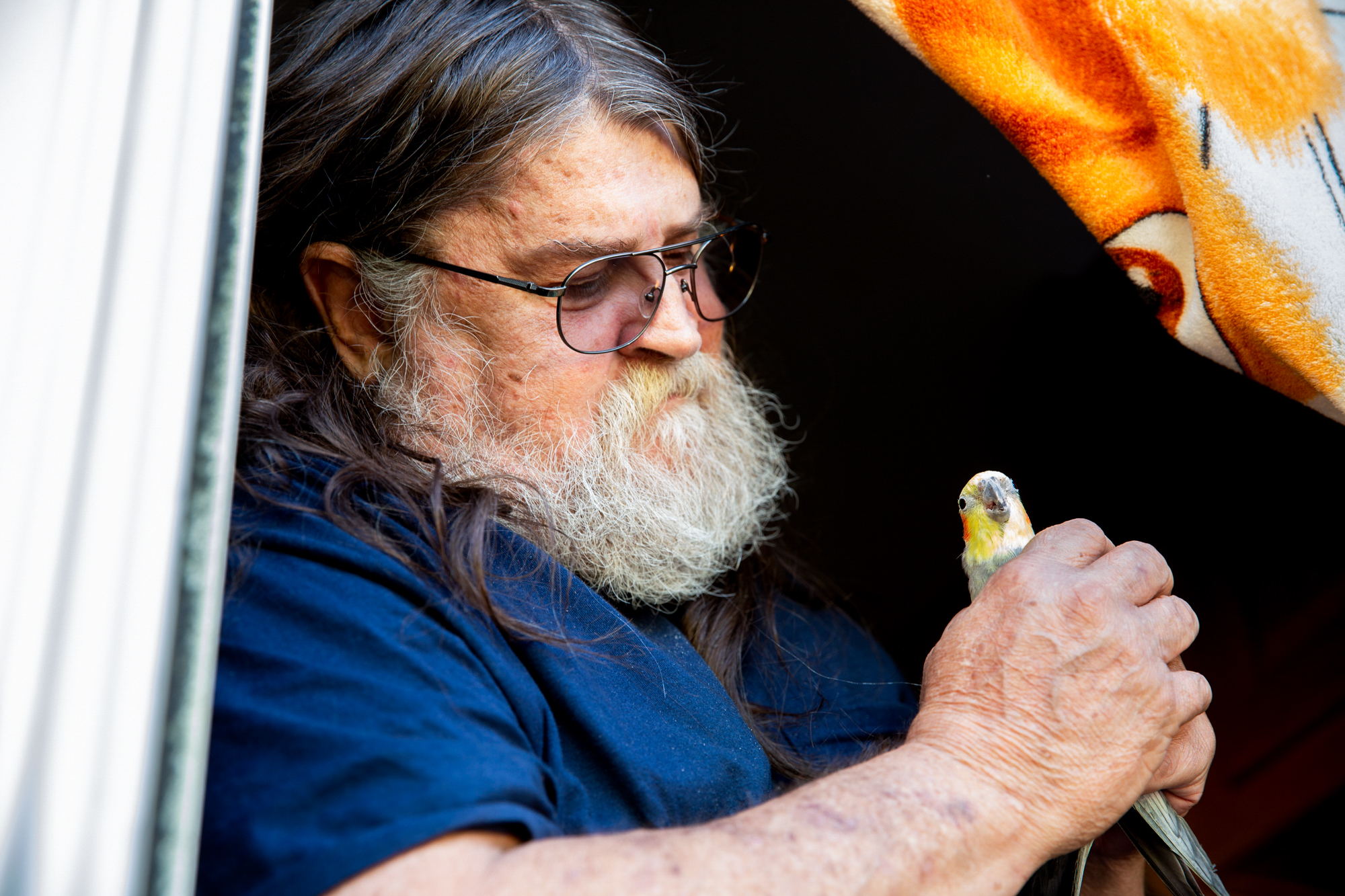
David Ramey | Camp Fire, 2018
David Ramey, 65, lost his home of 30 years in Paradise, California, to the Camp Fire in 2018. He is living in a trailer in Chico, accompanied by his pet cockatiel, also named Chico because Ramey rescued him from a Chico parking lot 14 years ago. Ramey's son would like to return to Paradise, but Ramey says that he would be too stressed. (Allie Barton/News21)
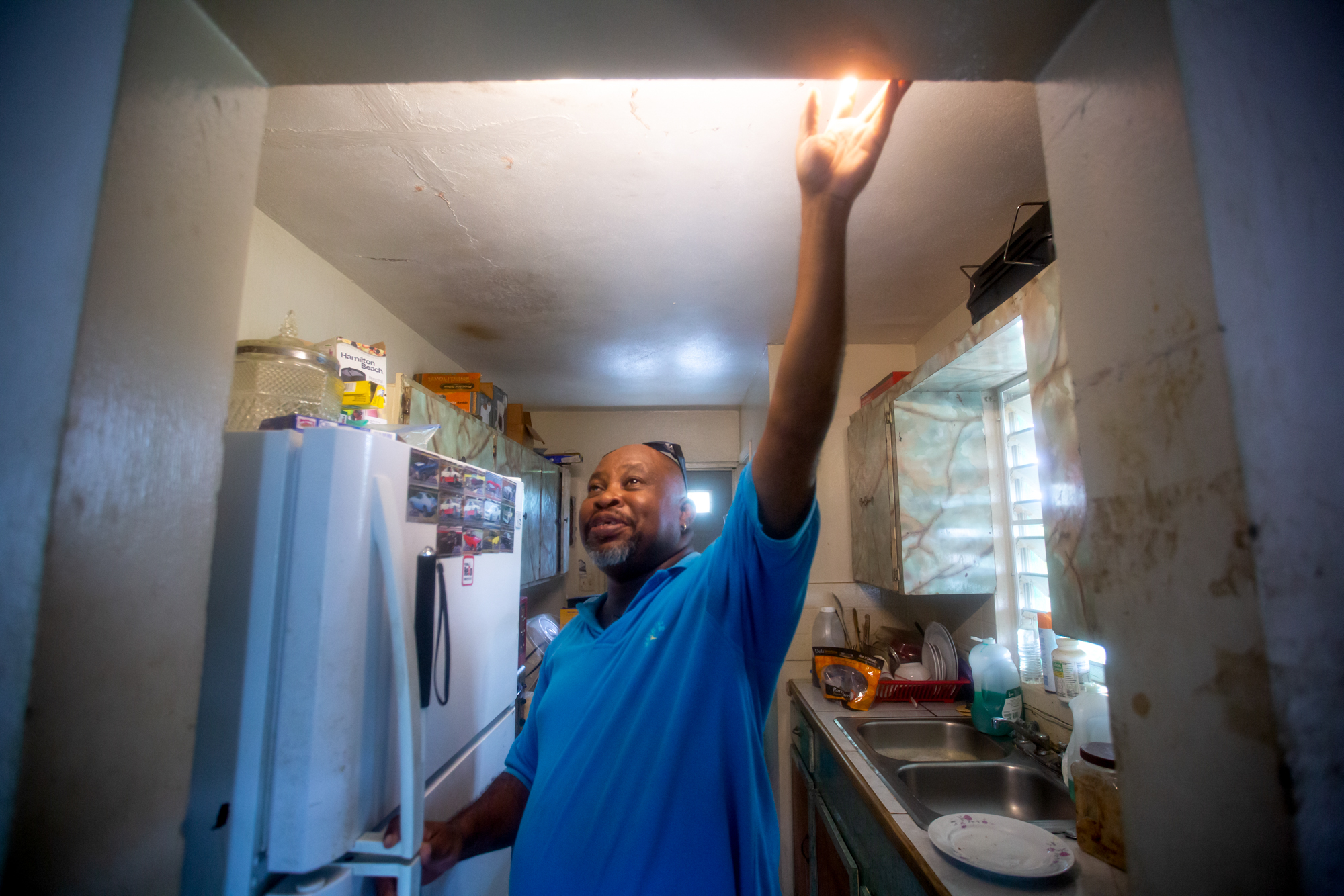
Gerard Evelyn | Hurricane Maria, 2017
Gerard Evelyn, 49, lost his vision six years ago to a complication of diabetes. His home in Frederiksted, U.S. Virgin Islands, still has water damage from Hurricane Maria. Evelyn, who lives alone, thinks the government tends to disregard younger people with disabilities. During the 2017 hurricane season, Evelyn didn't have electricity to keep his insulin cold and charge his iPad, which he uses to help navigate without vision. (Anya Magnuson/News21)
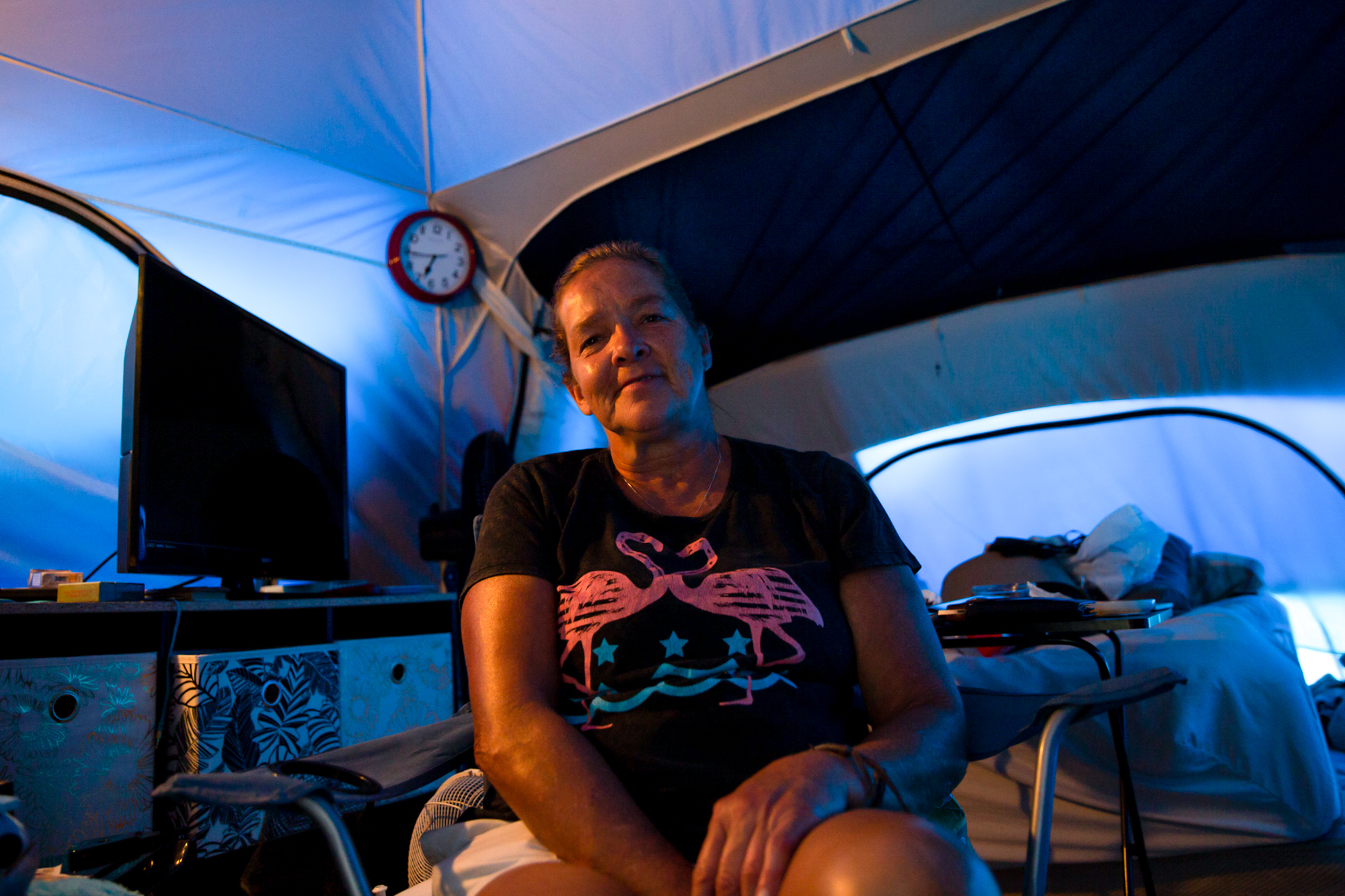
Joyce Buschmann | Hurricane Michael, 2018
Joyce Buschmann, whose home was destroyed in Hurricane Michael, now lives in a tent city in Youngstown, Florida. Buschmann's son lives 20 minutes away, but she stays in her tent so as not to burden him. “Why leave when I’m perfectly happy here?” she asked. (Stacy Fernández/News21)
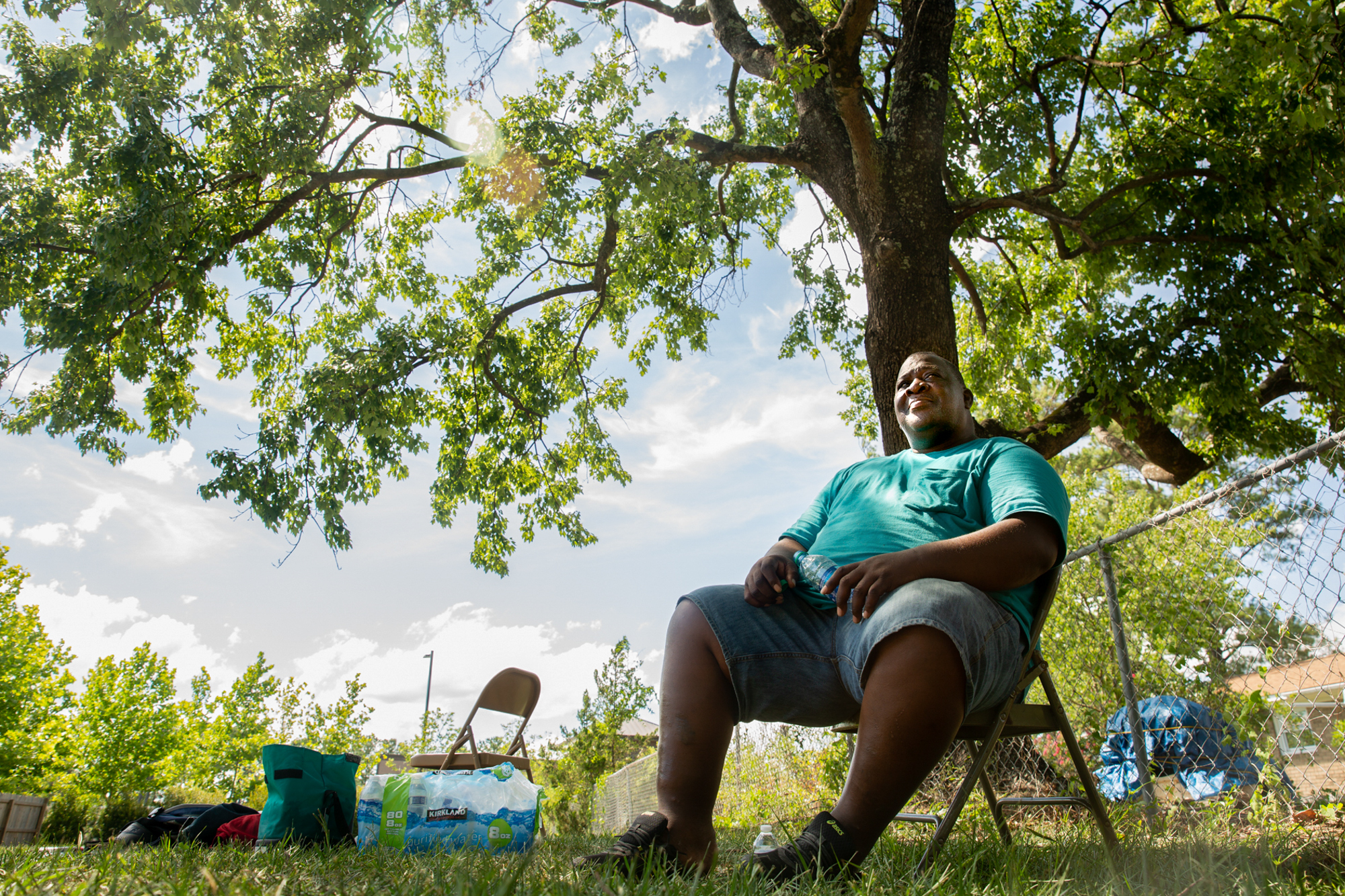
Herman “Leroy” Dukes | Hurricane Florence, 2018
Herman “Leroy” Dukes sits under “the tree of knowledge” outside his destroyed family home in Wilmington, North Carolina. After Hurricane Florence, Dukes shuffled between shelters and hotels, and he recently began living on a rug under this tree. “This has taught me to be humble and to be patient,” Dukes said. “And, you know, still keep moving.” (Harrison Mantas/News21)
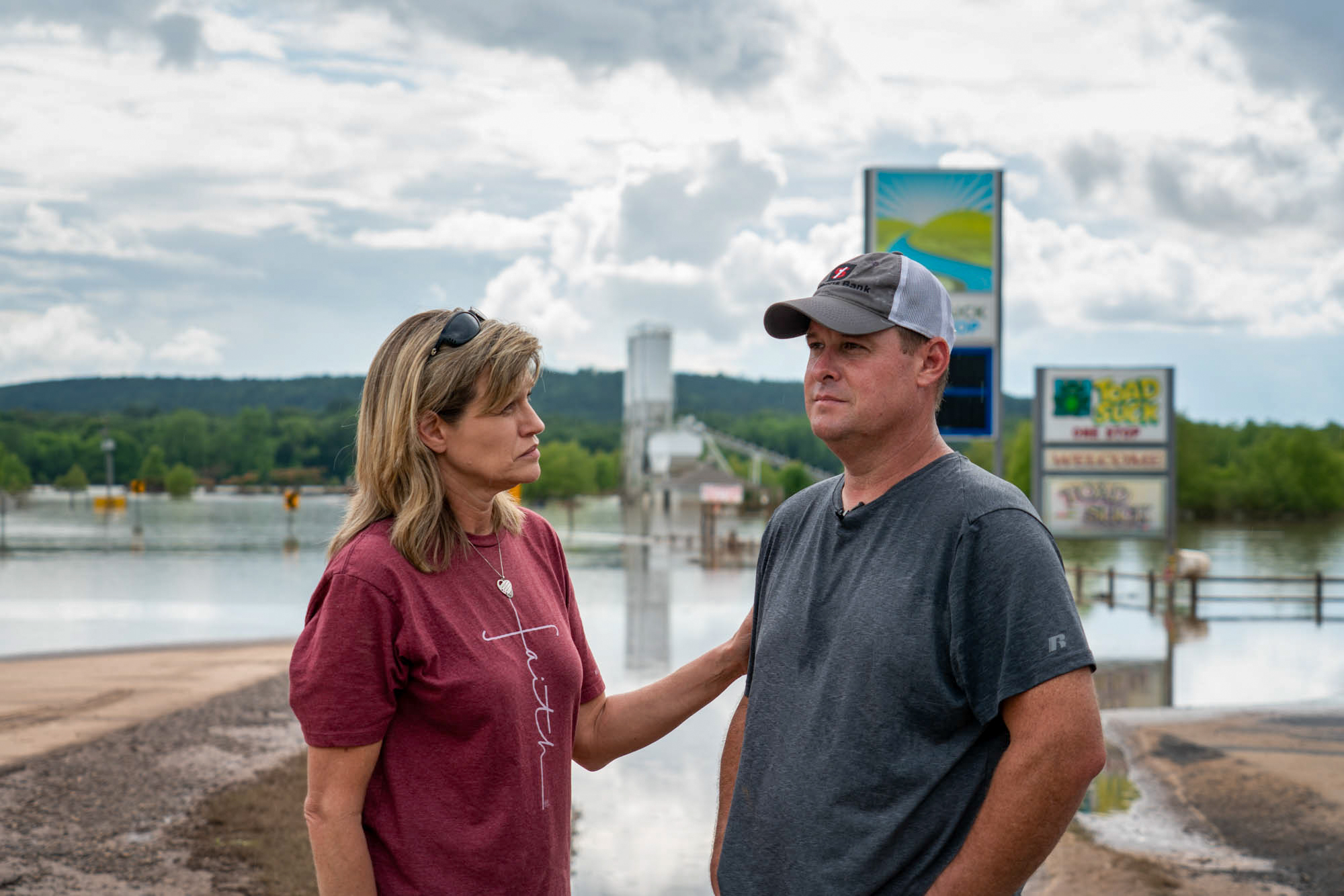
Jason and Christy Trantina | Arkansas Floods, 2019
Jason and Christy Trantina own and operate the Toad Suck One-Stop, the only store in Toad Suck, Arkansas, population 288. Jason and his employees tried to hold back the flood waters from the Arkansas River with a barrier of concrete blocks, like the Trantinas have done before. “But this flood was different,” Christy said. “It was river-rushing current water, and so the current washed away some of the barrier and water got inside and it was able to get inside our store.” (Jordan Laird/News21)
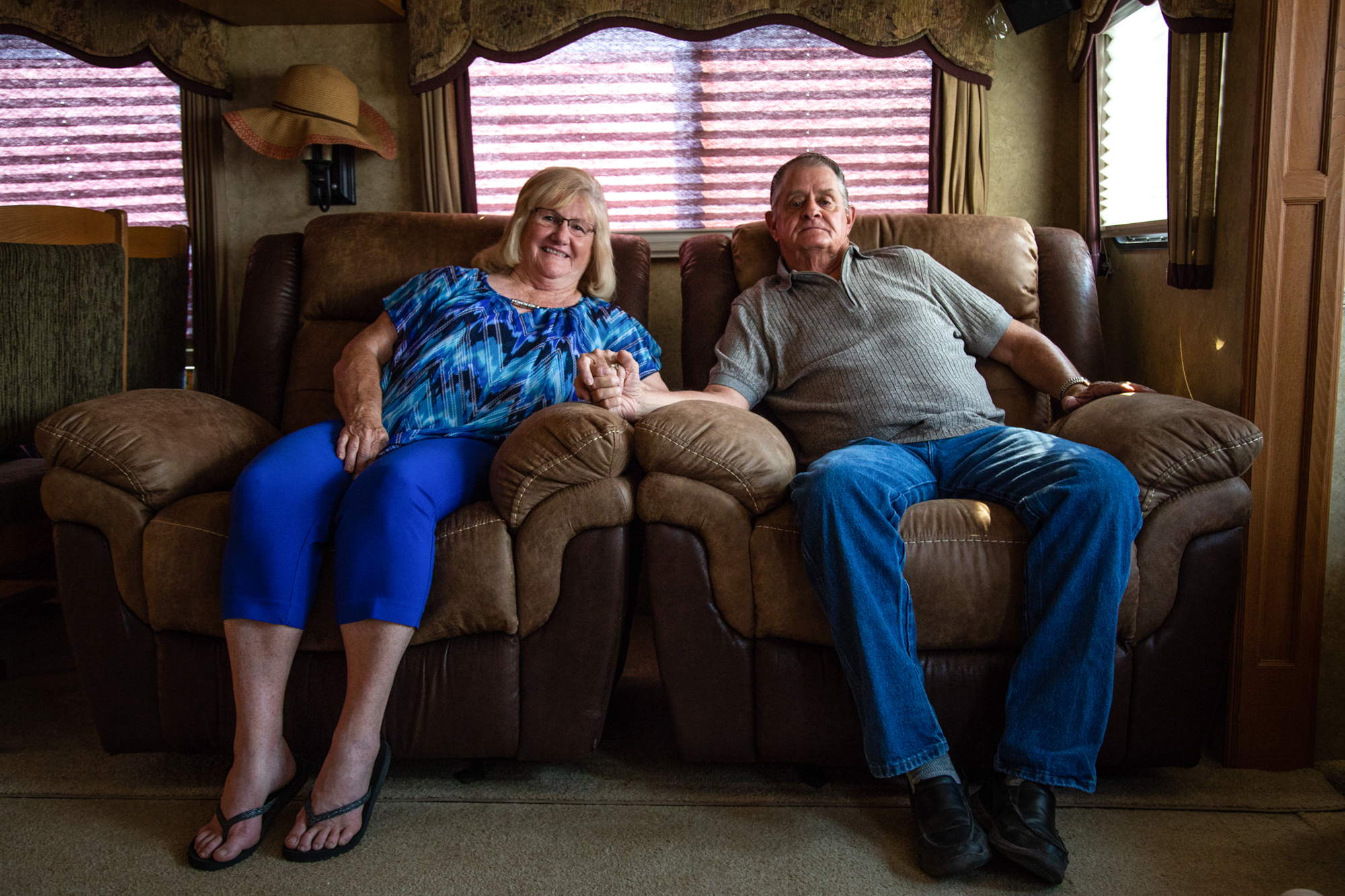
Ella and Dave Dover | Woodbury Fire, 2019
After high winds pushed the Woodbury Fire in the direction of Roosevelt, Arizona, Ella and Dave Dover evacuated rather than lose their lives. They spent five days living in their RV on the Gila County Fairgrounds, which were opened to all evacuees. (Anton L. Delgado/News21)
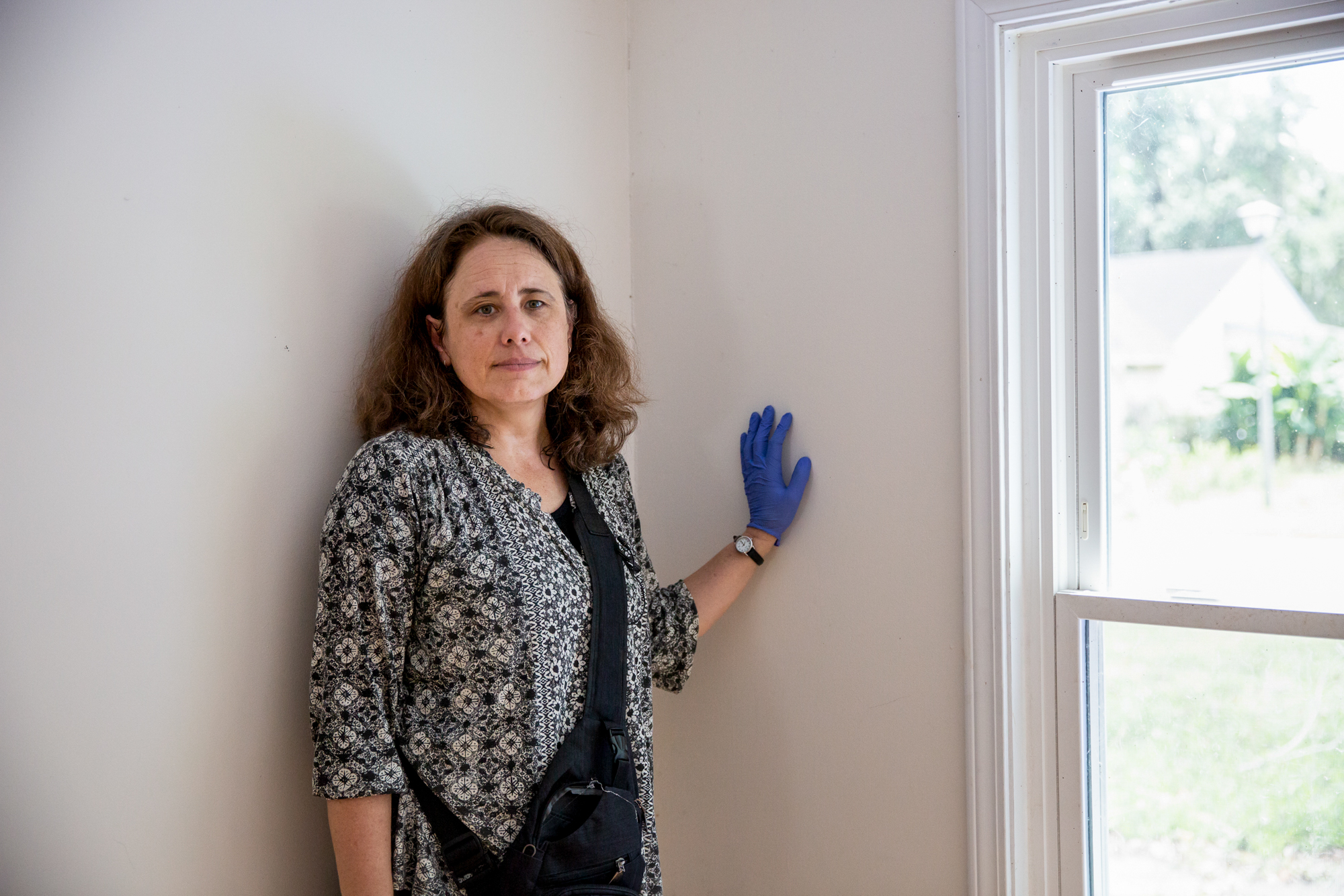
Ana Zimmerman | South Carolina floods, Hurricane Irma, 2015, 2017
Ana Zimmerman, an immunologist, discovered mold within the walls of her home after floods in Charleston, South Carolina. “I had my child living in that bedroom for years, and we thought our child had allergies; pollen allergies,” Zimmerman said. “When we ripped open the walls, they were filled with mold.” The mold has gave her child respiratory issues, and after the family moved out in 2017 Zimmerman became an activist for holding the city accountable for failures to follow building codes. (Ellen O'Brien/News21)
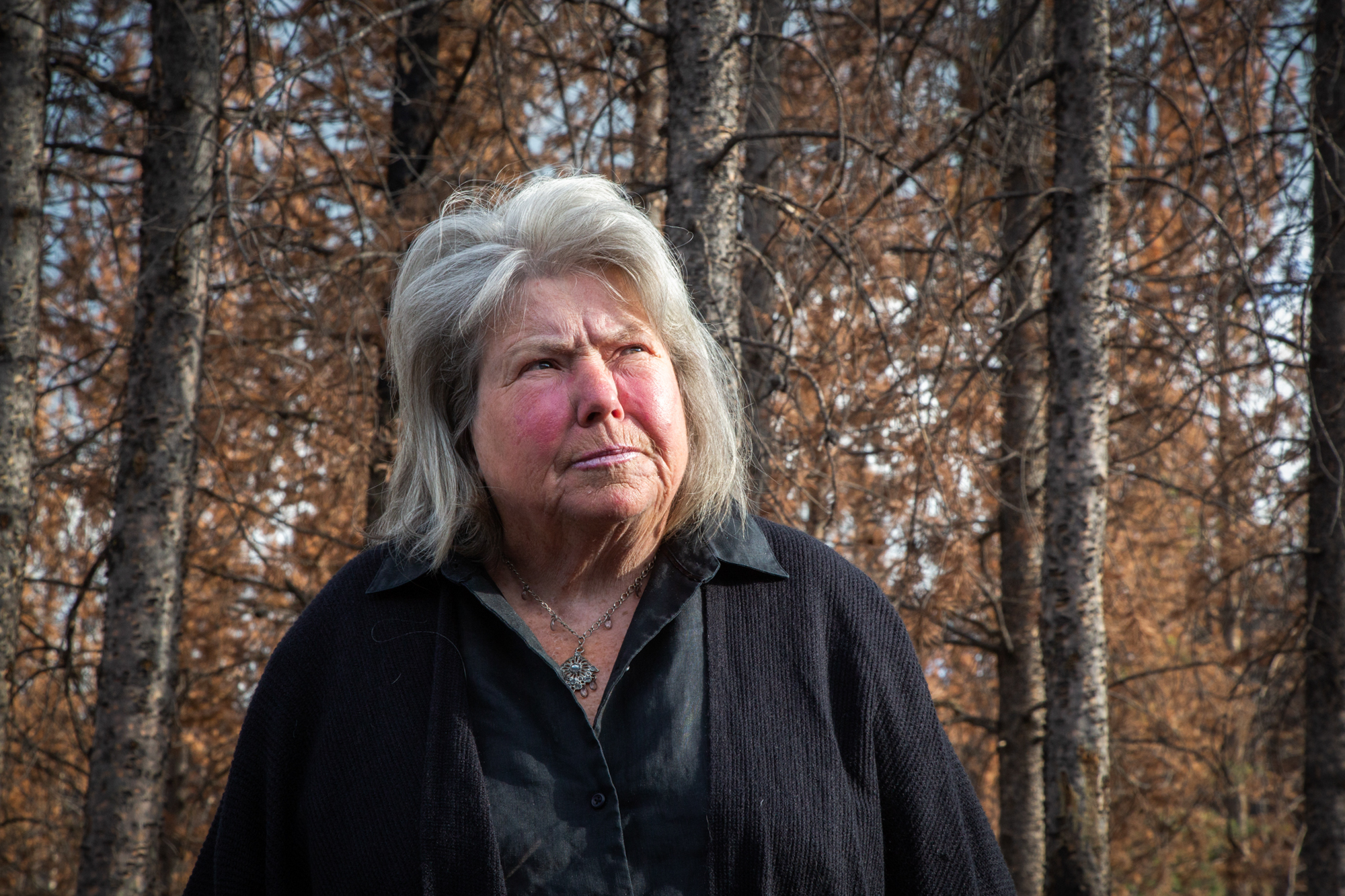
Marlene “Lanie” Beebe | Roosevelt Fire, 2018
Marlene “Lanie” Beebe, who lives in Hoback Ranches, Wyoming, lost her home and a shed in the 2018 Roosevelt Fire. Beebe lived out of her truck until a neighbor bought her a trailer to place on her property. Beebe is a potter and artist, and the fire destroyed her journals and art collections. (Drew Hutchinson/News21)
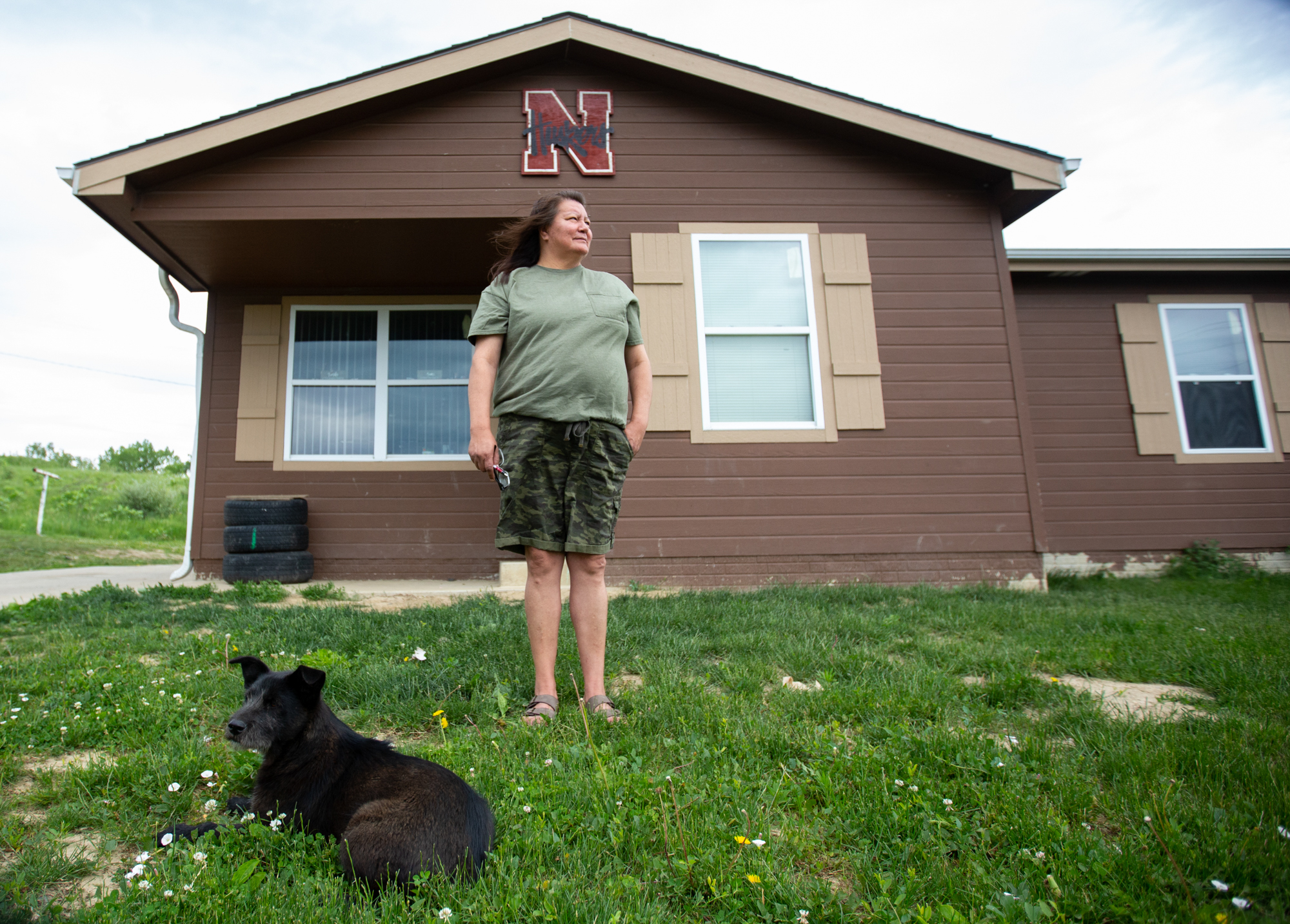
Debra Grant | Nebraska Floods, 2011
Debra Grant, a member of the Omaha Tribe of Nebraska, lost her home to floods in 2011. She and her family spent five years living in a temporary home with mold damage, but they recently moved into a permanent home with two of her children and five grandchildren. But in March 2019, the Missouri River flooded, filling the basement of her new home with water, even though she had moved to higher ground. (Anya Magnuson/News21)
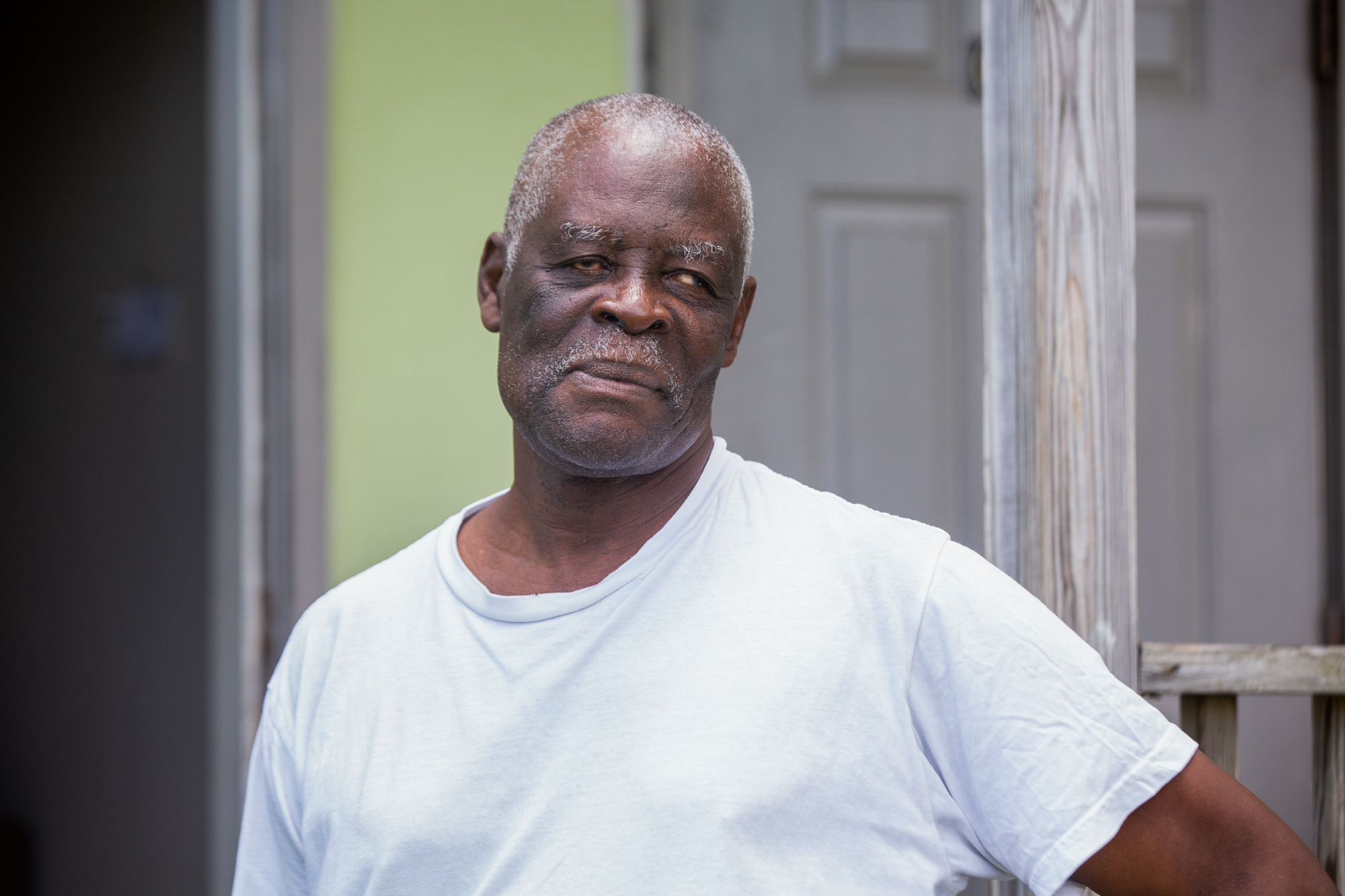
Claudius Prosper | Hurricane Maria, 2017
Claudius Prosper, a blind man in Frederiksted, U.S. Virgin Islands, lives in an apartment that still has flood damage from the 2017 hurricane season. The apartment above theirs was abandoned due to water damage, but Prosper and his wife say FEMA investigators never came to assess the damage to their apartment. (Anya Magnuson/News21)
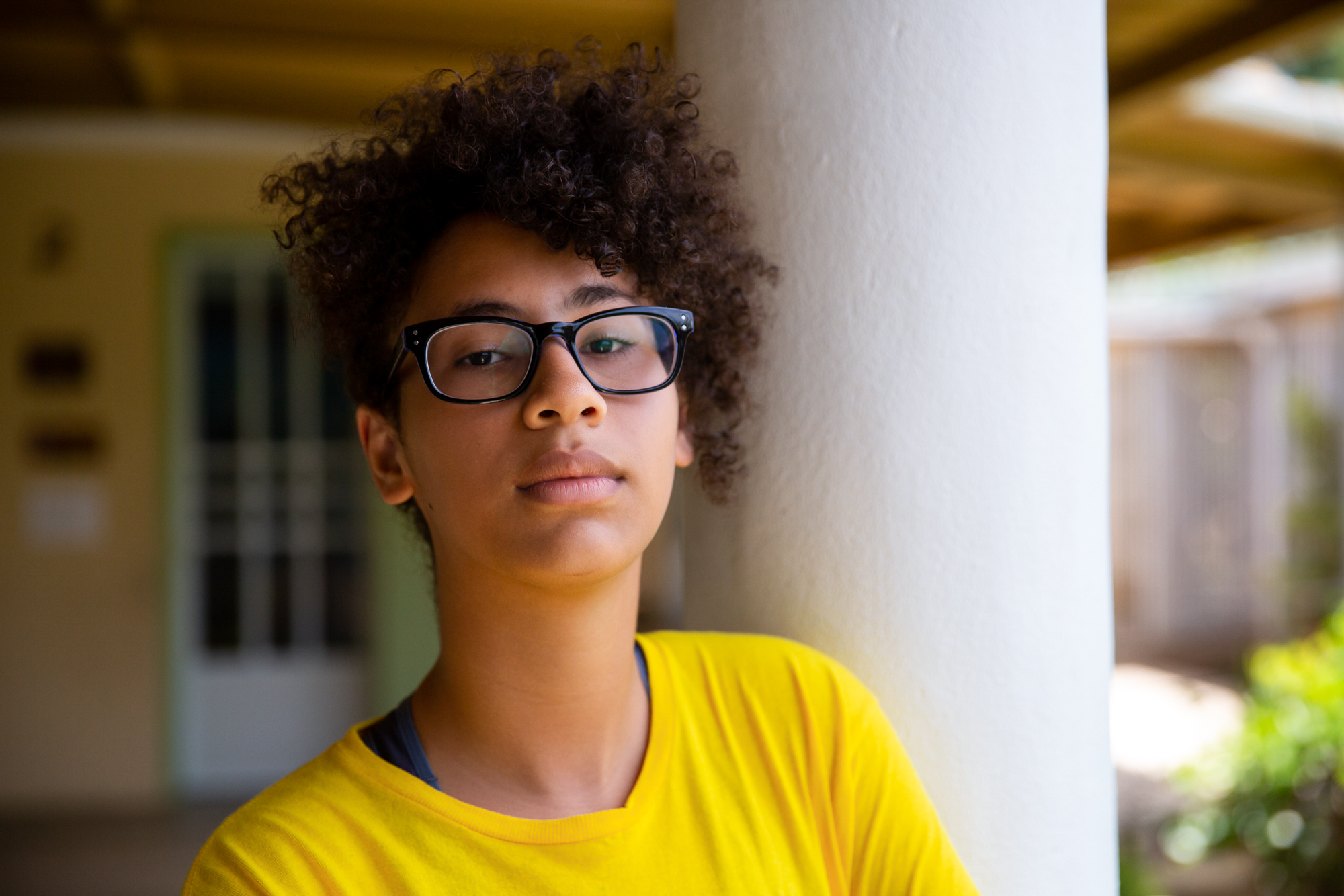
Calila Figueroa | Hurricane Maria, 2017
Calila Figueroa was 12 when Hurricane Maria hit Puerto Rico. She suffered from lung problems and insomnia after the storm, and she credits drawing and painting with helping her process her emotions. (Ellen O'Brien/News21)
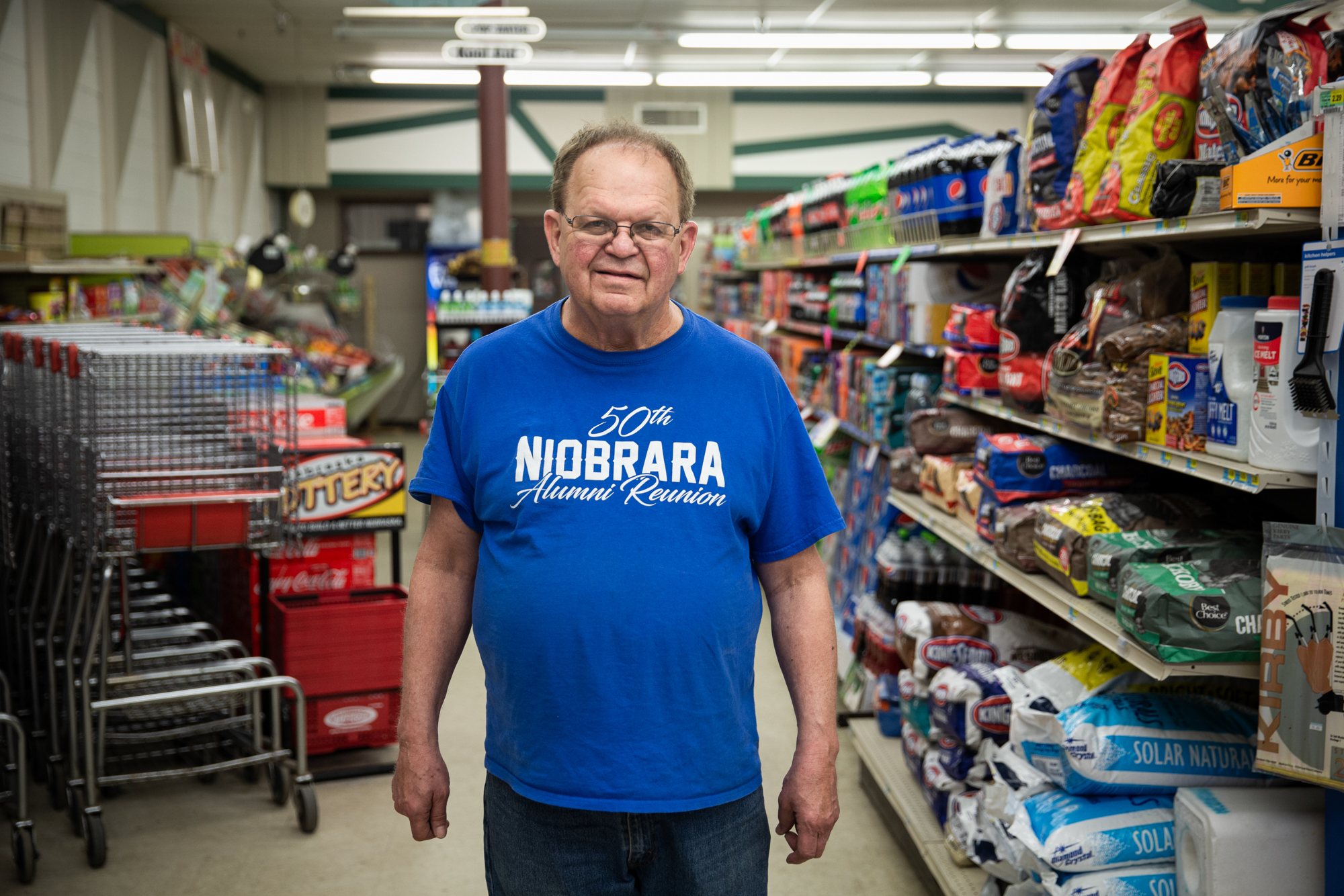
Ken Farnik | Nebraska Floods, 2019
Ken Farnik says Farnik's Market in Niobrara, Nebraska, is struggling to stay in business since the flooding in March, due to fewer customers. Niobrara relies on hunters and visitors to nearby Niobrara State Park to support its economy. (Anya Magnuson/News21)
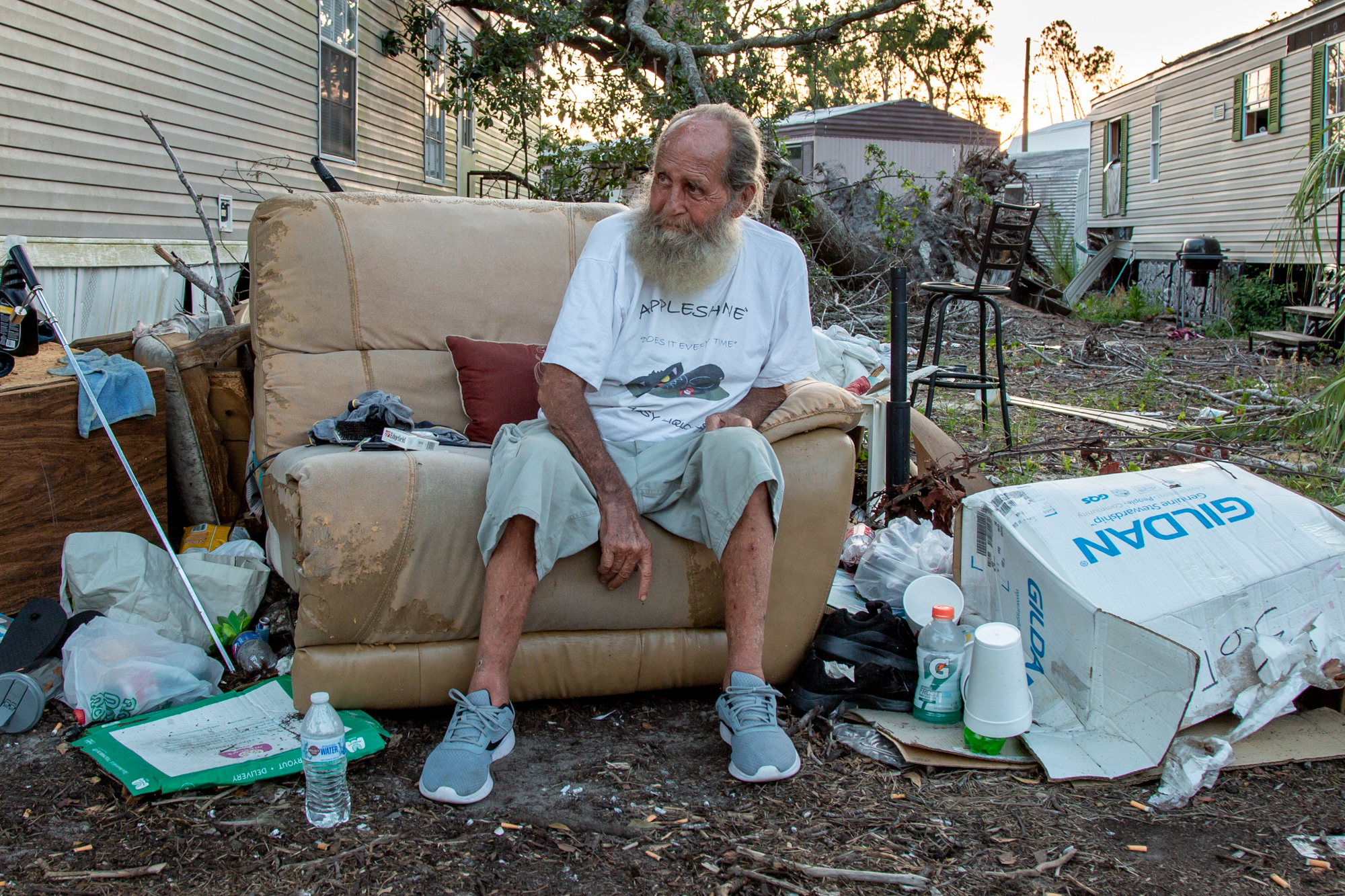
Phillip Ingram | Huricane Michael, 2018
Phillip Ingram, 66, lost his trailer during Hurricane Michael last October, but he still lives in Lynn Haven Mobile Home Park because he can't afford the inflated rent around Panama City, Florida. However, Lynn Haven is slated to close, and remaining residents will have to go. (Jake Goodrick/News21)
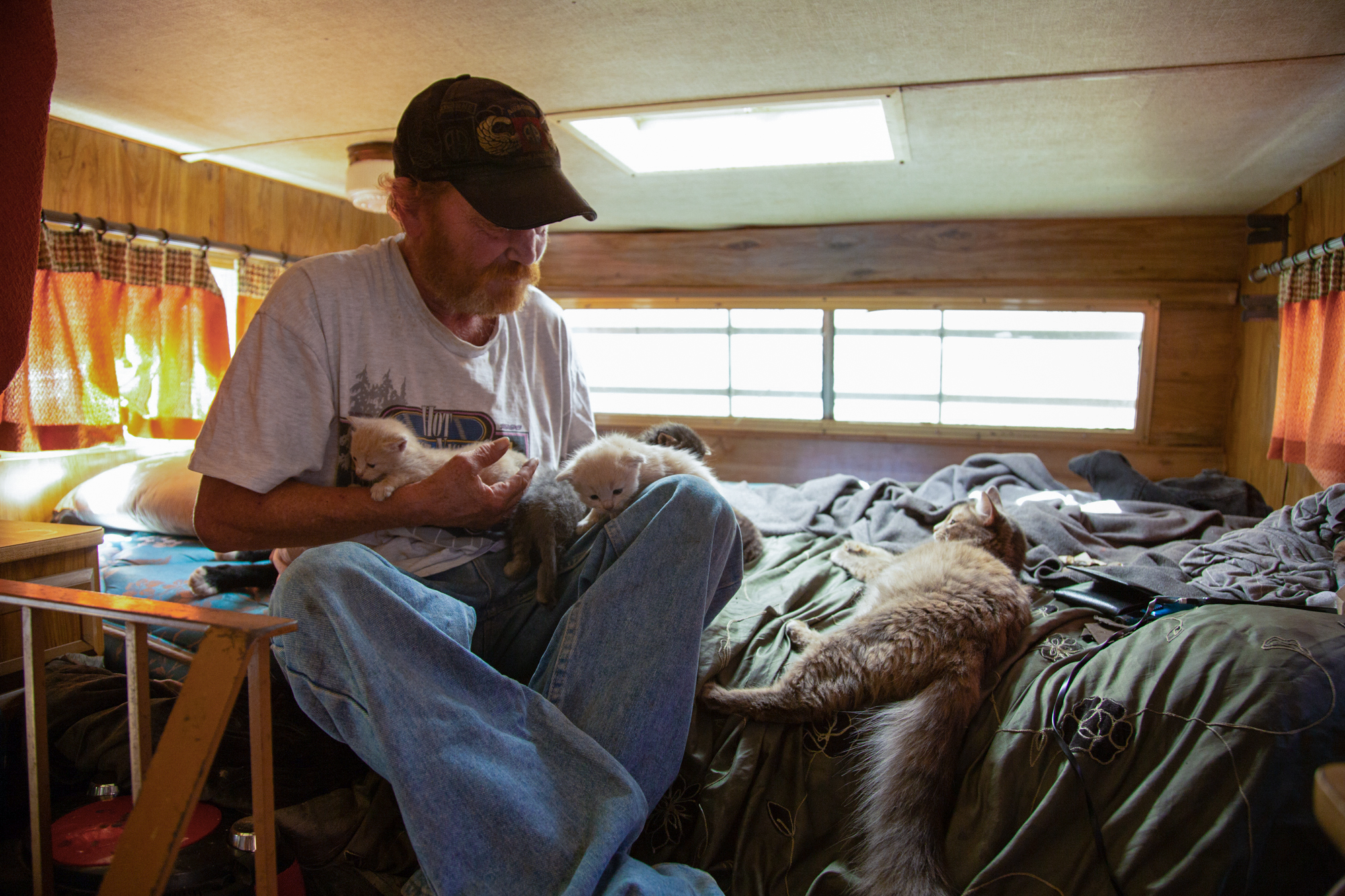
Timothy Lyons | Camp Fire, 2018
Timothy Lyons lost his trailer home in Magalia to the Camp Fire, which killed 85 people in Northern California. He calls these kittens “fire cats” because their mother was pregnant when Lyons evacuated with her, and the five kittens were born in the tent where he stayed after losing his home. (Allie Barton/News21)
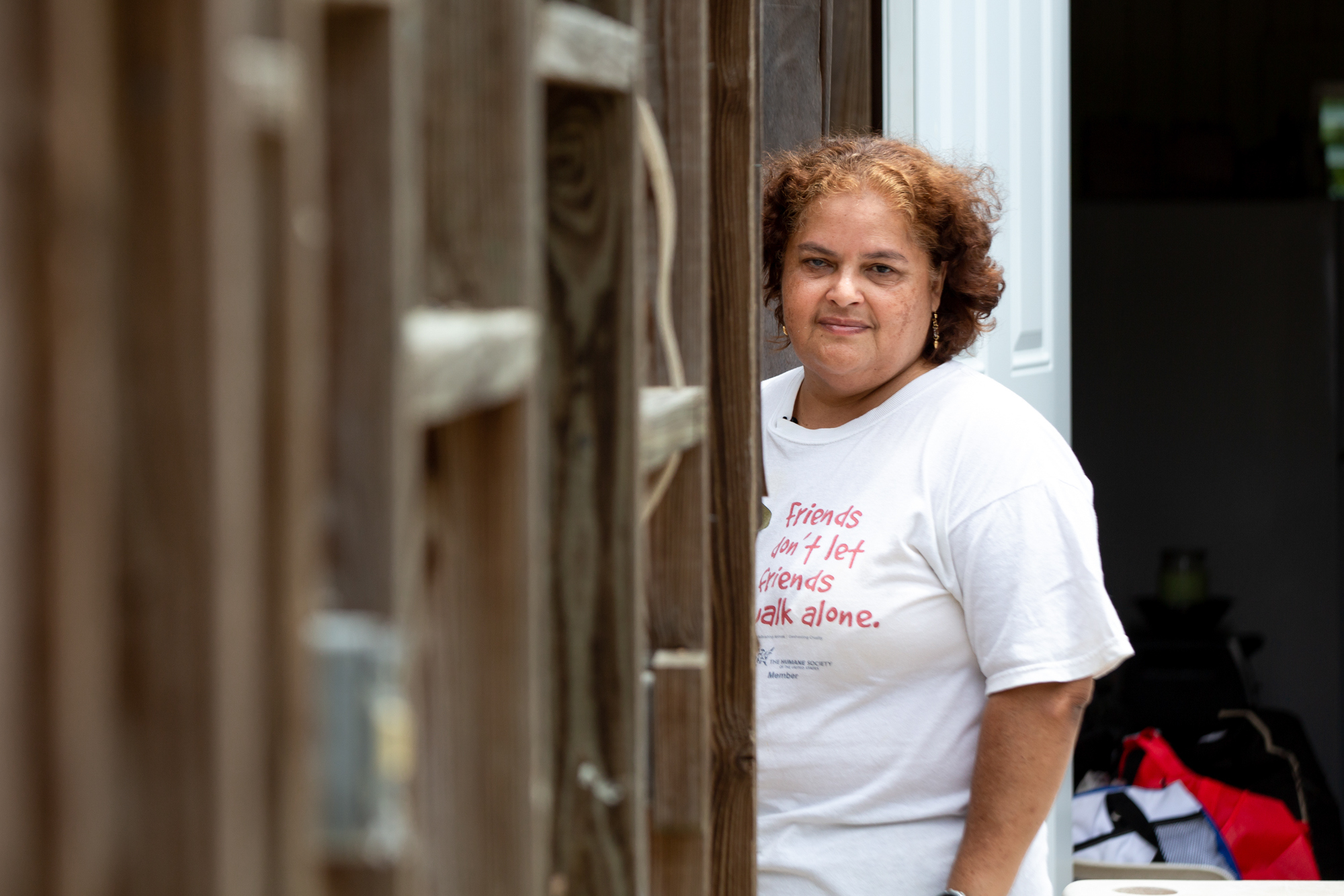
Carmen Huertas | Hurricane Maria, 2017
Carmen Huertas of Frederiksted, U.S. Virgin Islands, is 54 and has been blind since she was 28. Since Hurricane Maria, only the two bedrooms and kitchen of her home have been rebuilt. Huertas also faced transportation issues because she relies on paratransit shuttles to get around. (Anya Magnuson/News21)
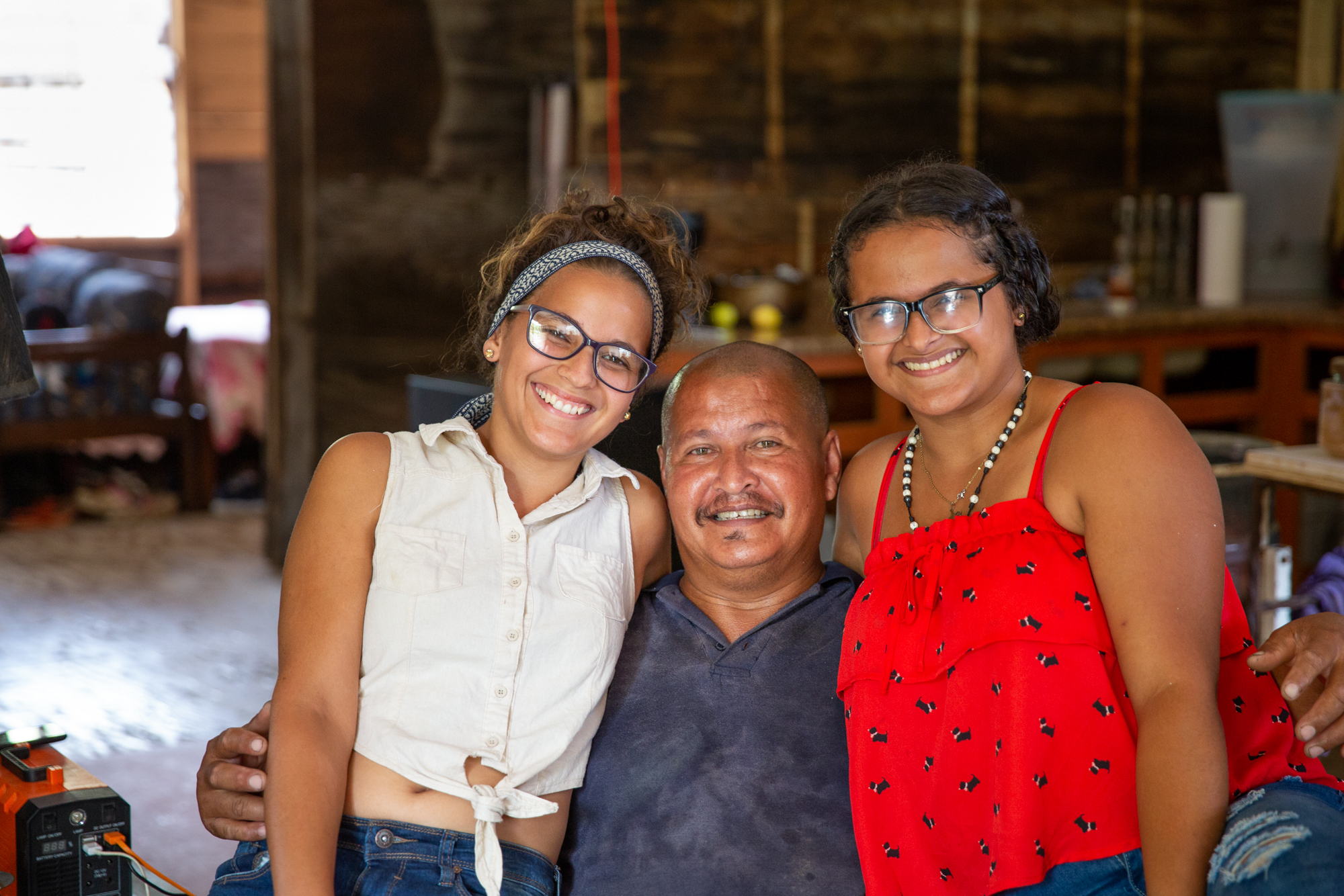
Roberto Cornier and family | Hurricane Maria, 2017
Roberto Cornier had 11 strokes in 2017 and was evicted from his home in Peñuelas, Puerto Rico, after Hurricane Maria. His daughters Kenaisha, 21 (left), and Gabriela, 15, took him to the hospital and found a new place for the family to stay – a derelict, abandoned school. (Ellen O'Brien/News21)
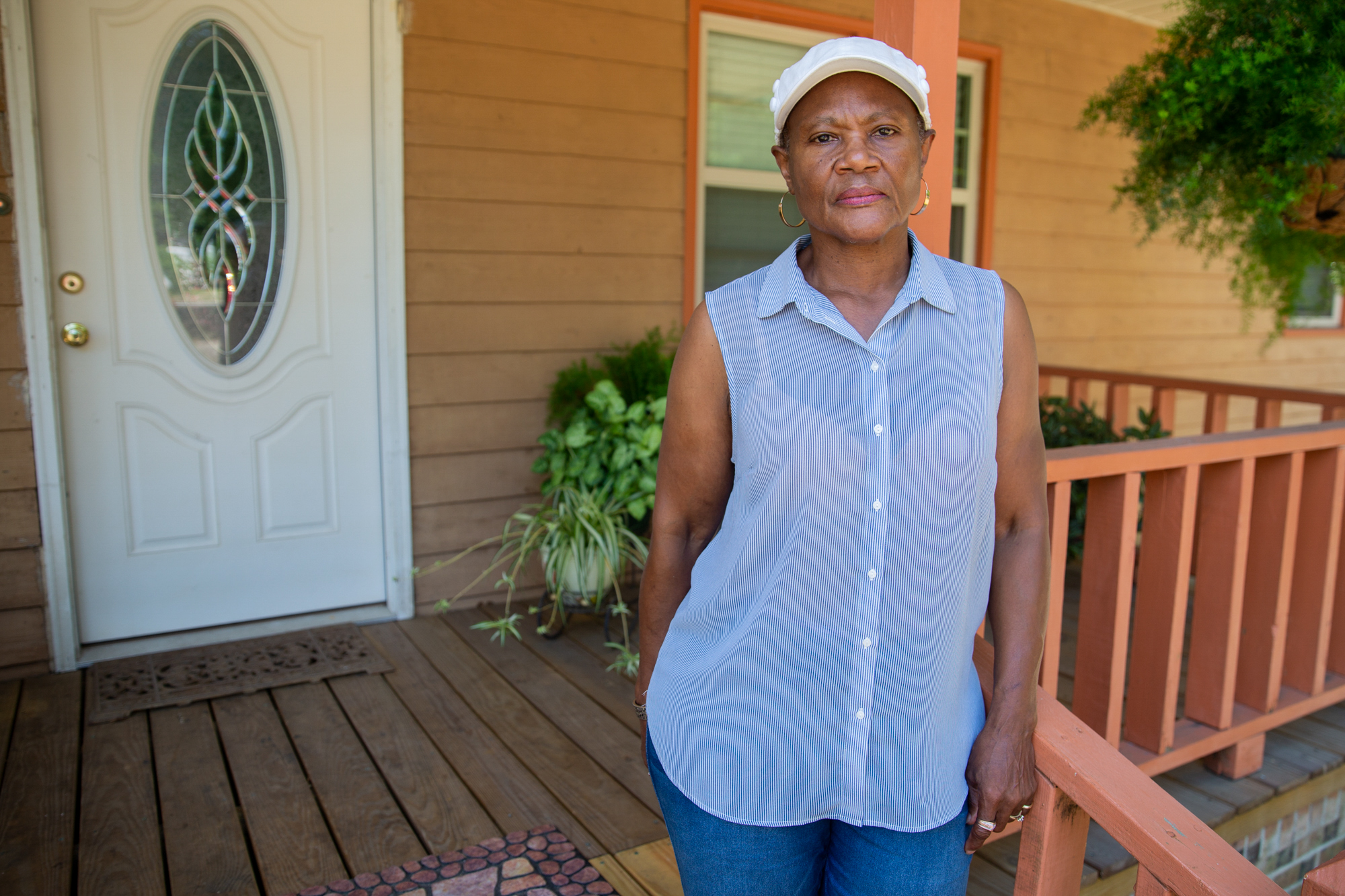
Rose Campbell | Hurricane Matthew and Hurricane Florence, 2018
Rose Campbell, 64, of Nichols, South Carolina, says she was “sharp as a tack,” before Hurricanes Mathew and Florence, but the stress has taken a toll on her mind. “I'm hoping and praying, trusting that God will look down on his people, suffering from these two disasters,” she said. “You've got to have hope.” (Harrison Mantas/News21)
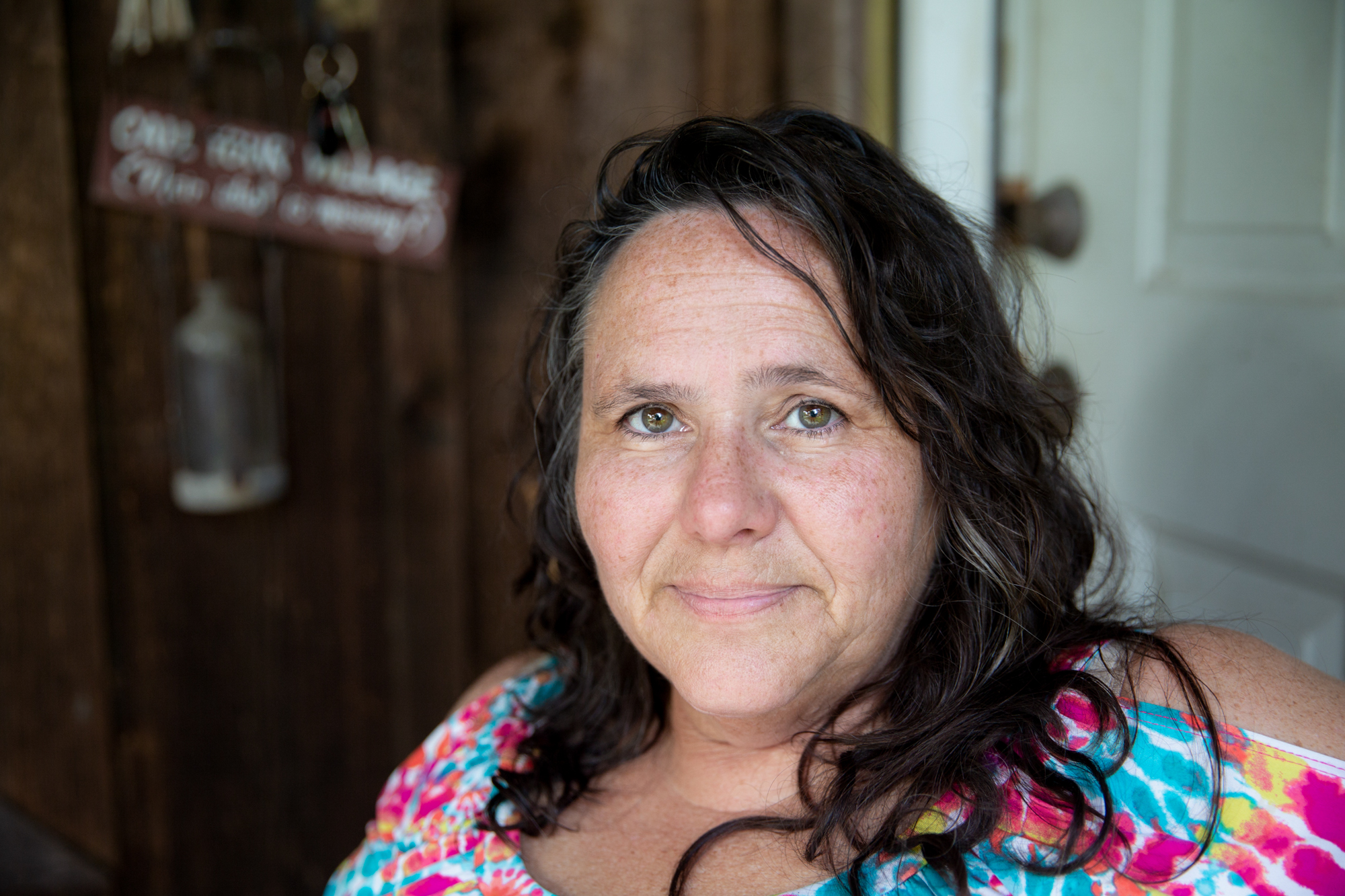
Kim Therrien | Hurricane Harvey, 2017
Kim Therrien has been living with a woman from her church since Hurricane Harvey left her house in Port Arthur, Texas, uninhabitable. Because she was not in a known floodplain, Therrien did not have flood insurance and has come to accept that she'll likely never move back into the home that has been in her family for generations. (Stacy Fernández/News21)
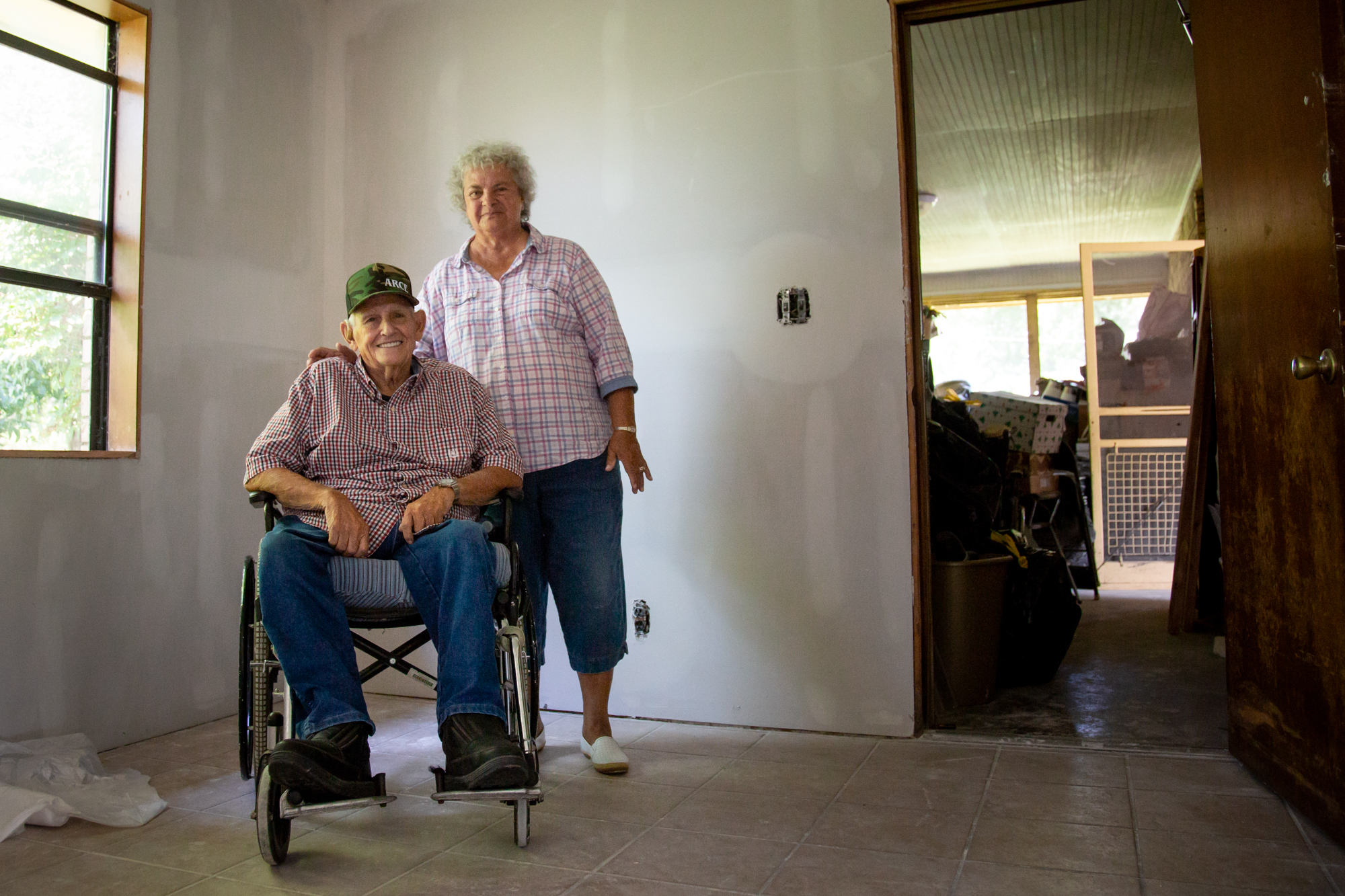
Ron and Ruth Burris | Oklahoma Flooding, 2019
After floodwaters from the Arkansas River flooded Ron and Ruth Burris' home in Sand Springs, Oklahoma, they didn't know where to begin the recovery process until Team Rubicon, a nonprofit that deploys rapid response teams to disaster areas, came by to help them tear out ruined drywall. (Brigette Waltermire/News21)
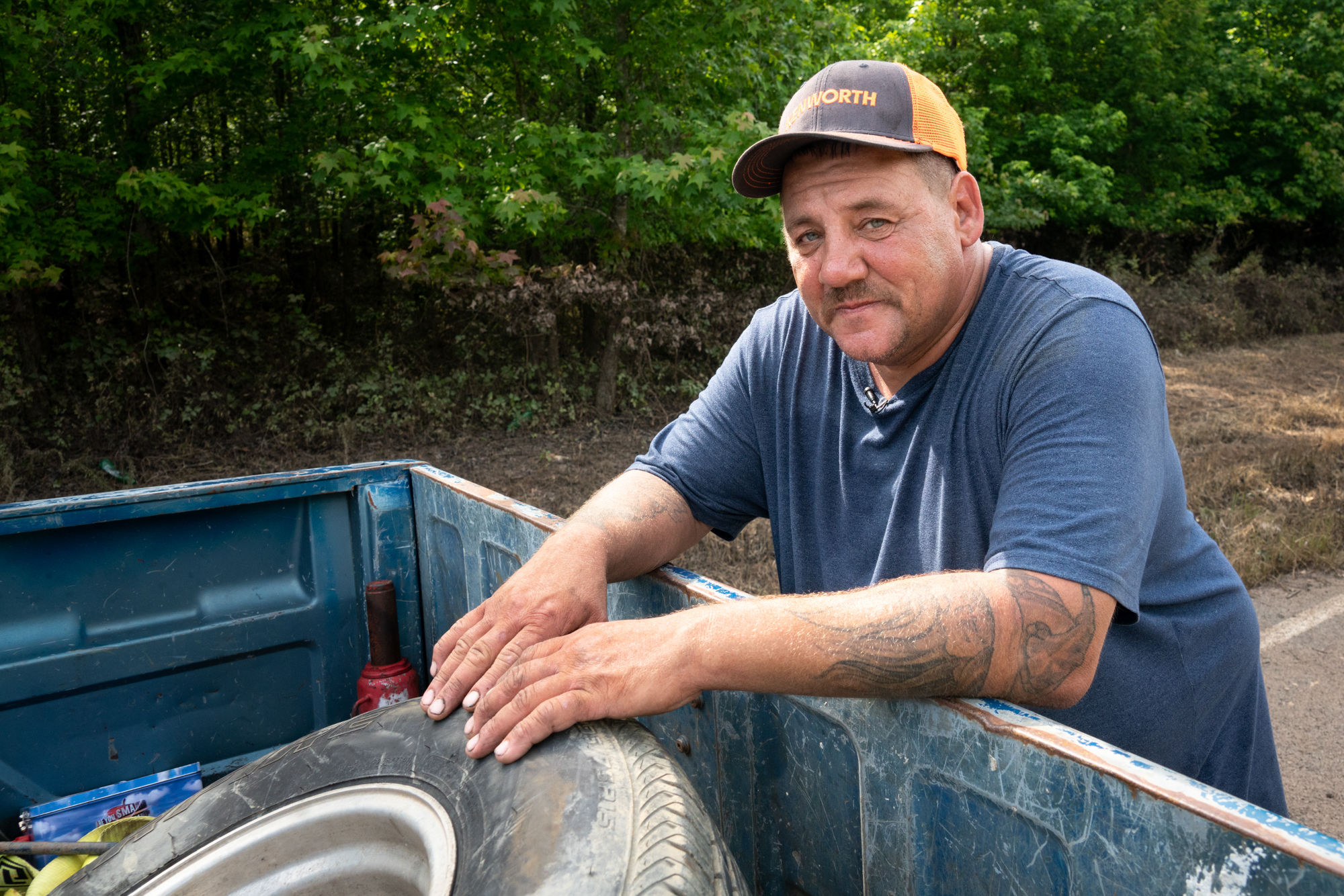
John Hammons | Mayflower Oil Spill 2013, EF4 Tornado 2014, Arkansas Floods 2015, 2016, 2019
John Hammons, of Mayflower, Arkansas, has lived through five disasters, including the 2013 Mayflower oil spill, an EF4 tornado in 2014 and flooding from the Arkansas River in 2015, 2016 and again in 2019. (Jordan Laird/News21)
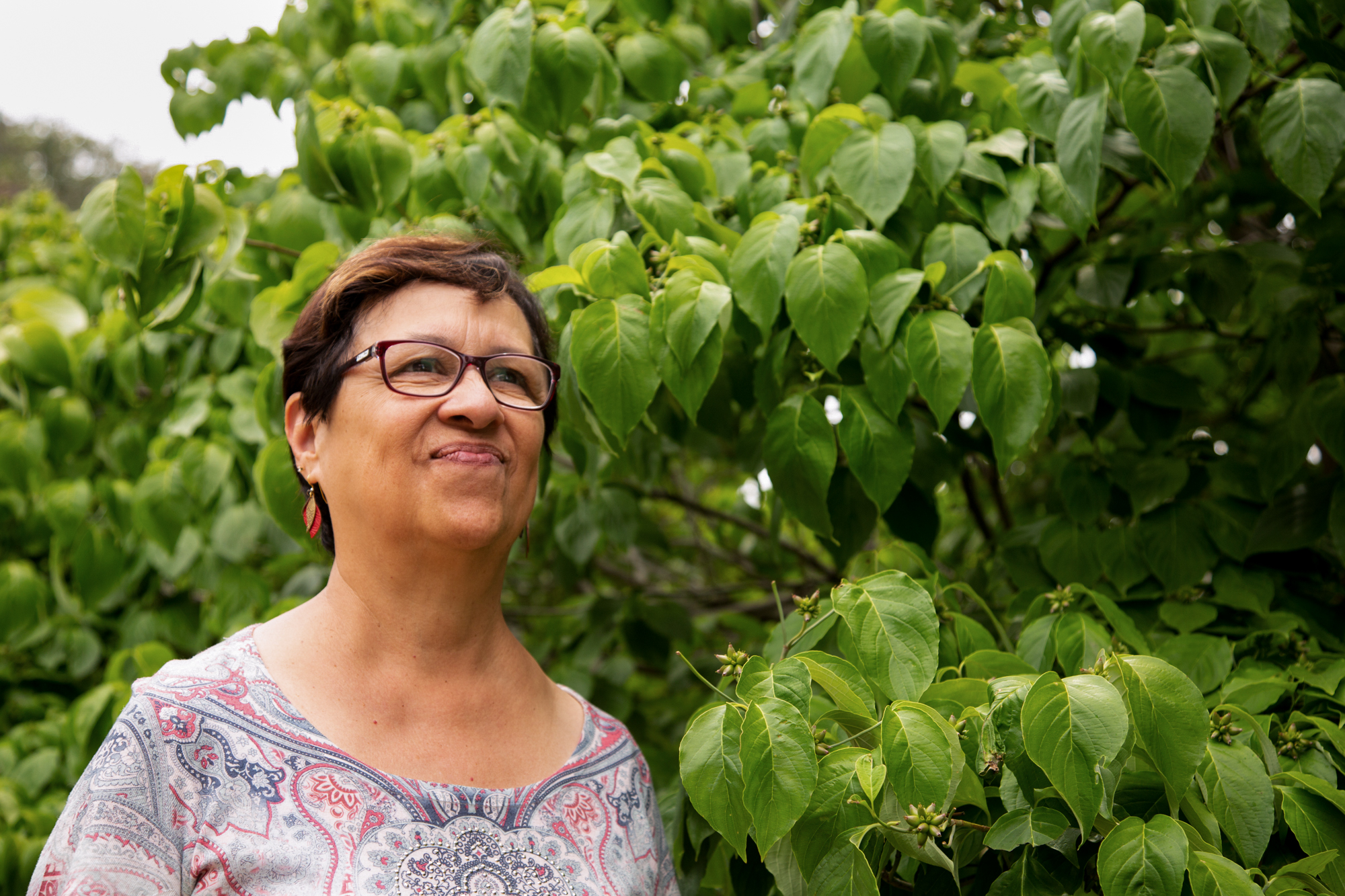
Mary Martin | Camp Fire, 2018
Mary Martin of Magalia, California, was out of town when the Camp Fire chewed through her property. Although her house was untouched, Martin says the destruction around her home evokes sadness for neighbors who moved away. (Allie Barton/News21)
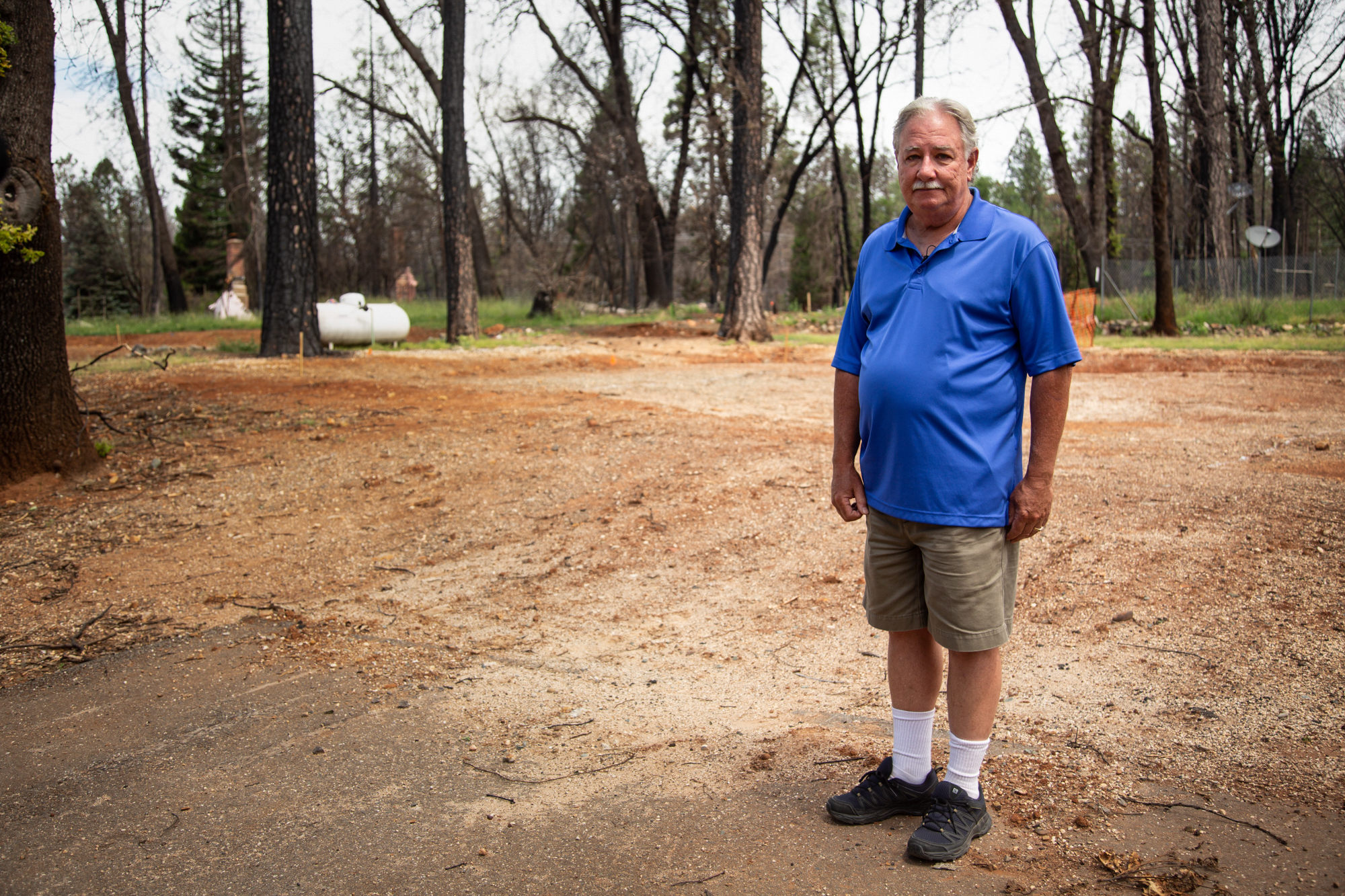
Scott Martin | Camp Fire, 2018
Scott Martin stands on the edge of the lot where his daughter's house used to stand in Magalia, California. Her house burned to the ground in the Camp Fire, and Martin went through the rubble that was left over, finding the body of one of his daughter's cats. (Allie Barton/News21)
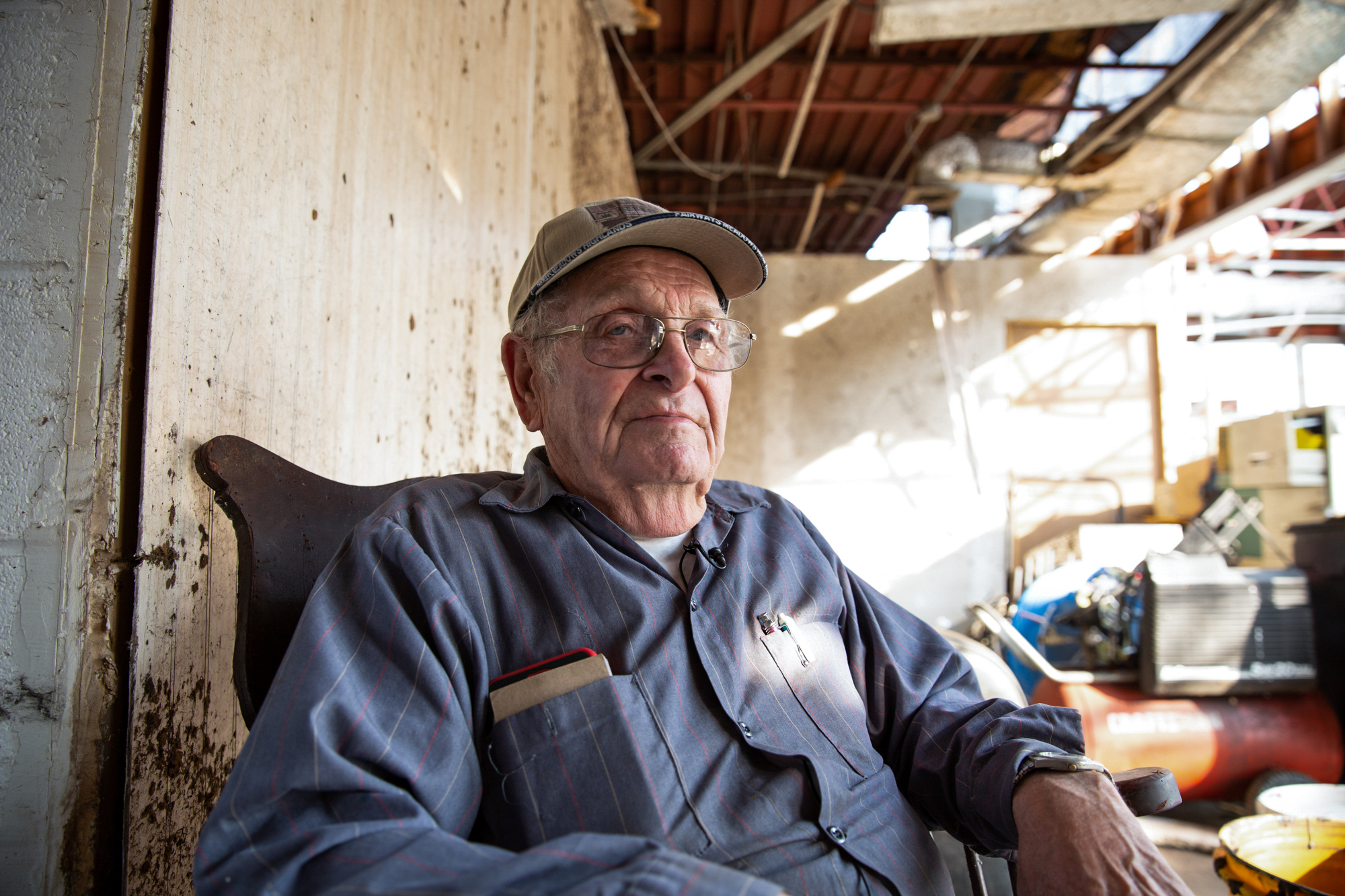
Bob Bach | Ohio Tornado (EF3), 2019
Bob Bach's auto body shop was days away from opening when it was destroyed by an EF3 tornado that ripped through Trotwood, Ohio, in May. Bach had insurance for all the cars at his shop, and he plans to rebuild using the insurance money and whatever he can get from scrapping the cars. (Stacy Fernández/News21)
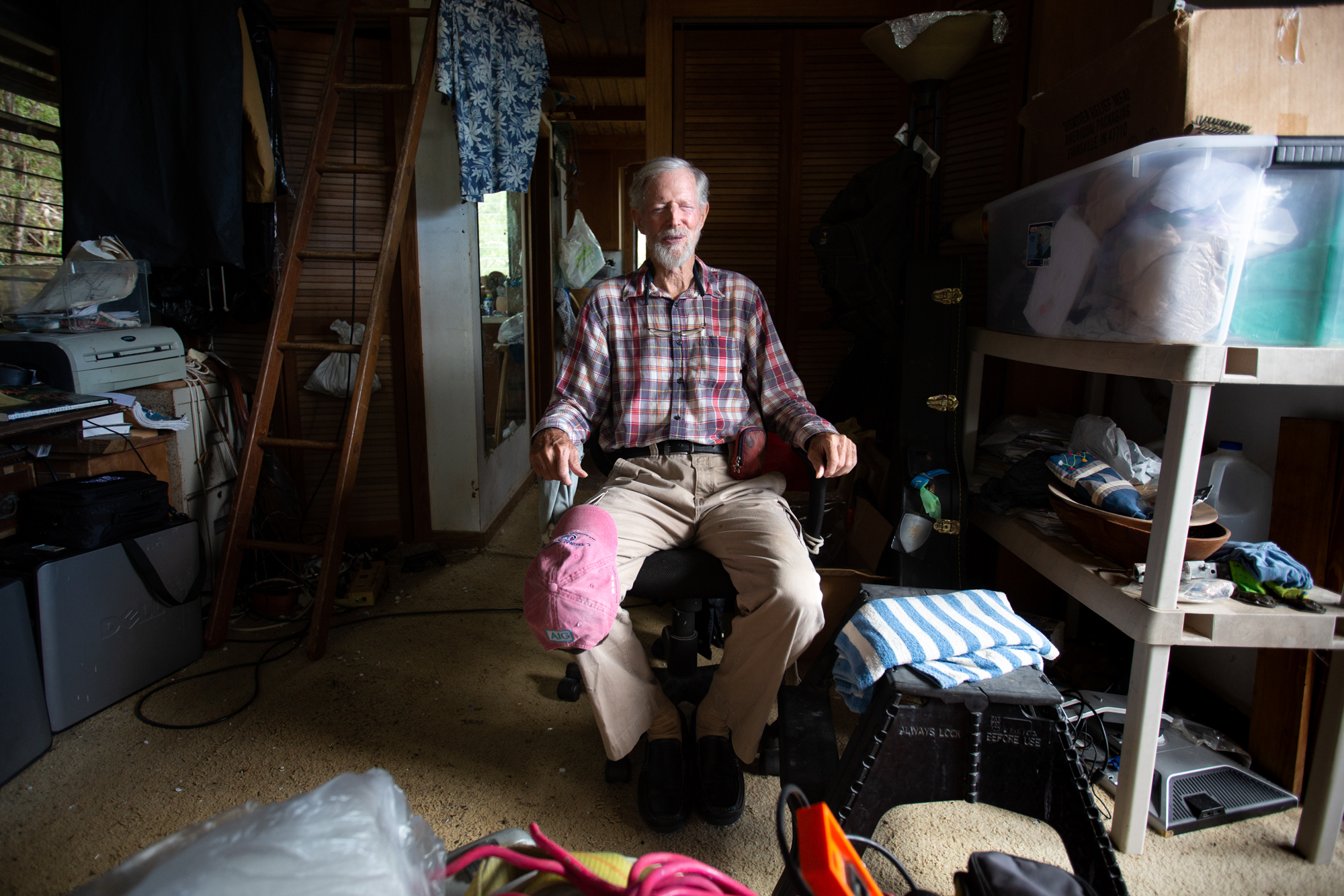
Jim Kerr | Hurricane Irma/Maria, 2017
Jim Kerr, 78, who is blind and has difficulty hearing, lives alone on St. Thomas in the U.S. Virgin Islands. Kerr went to a shelter during the 2017 hurricane season, but the shelters on the islands were ill-equipped to deal with people who have disabilities. (Anya Magnuson/News21)
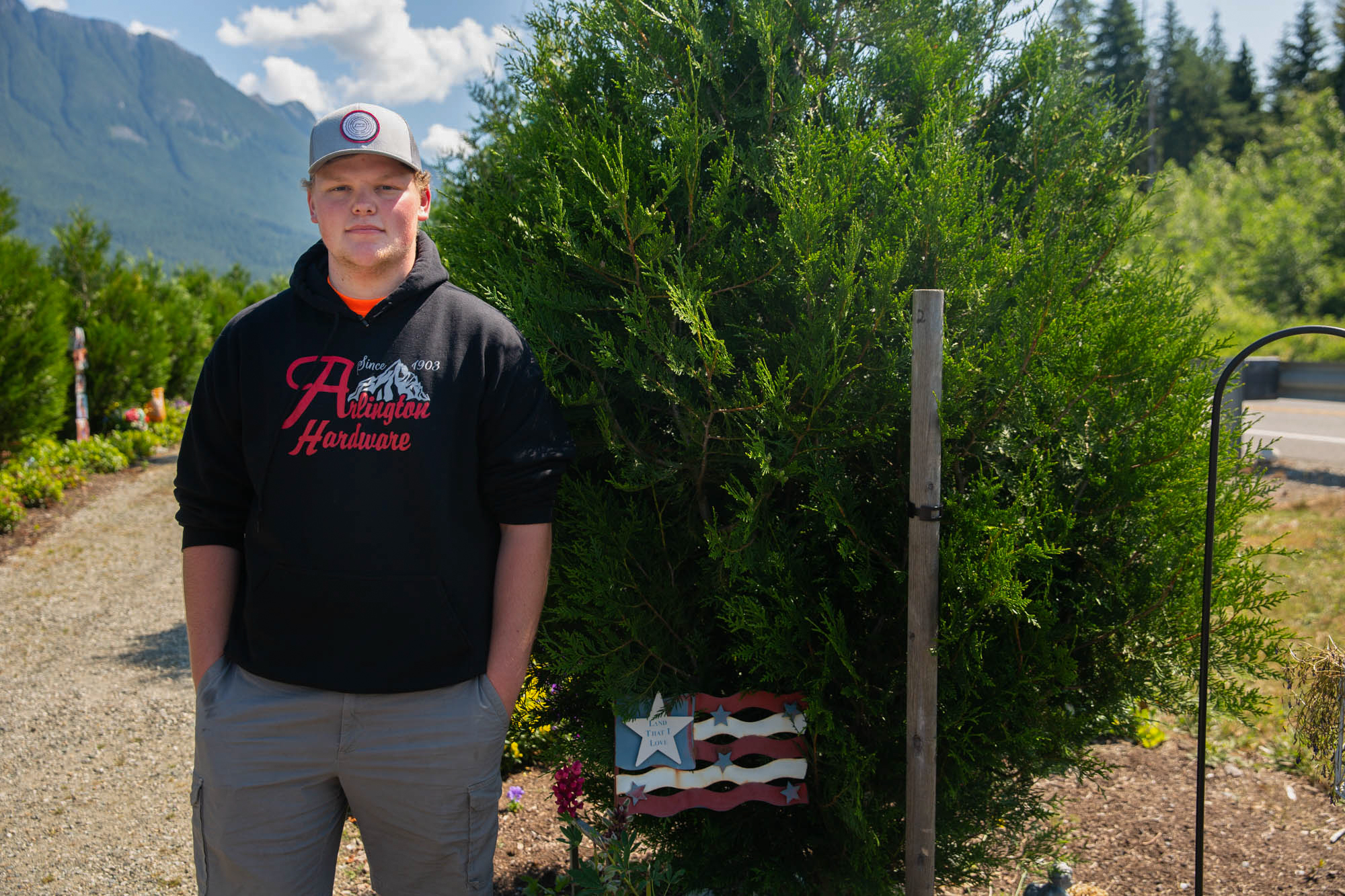
Quinton Kuntz | Oso landslide, 2014
Quinton Kuntz stands by a tree planted in memory of his great-aunt, one of 43 residents of Oso, Washington, who died in a landslide. Kuntz was in high school at the time and missed the slide by a few hours because his baseball team had a game. (Allie Barton/News21)
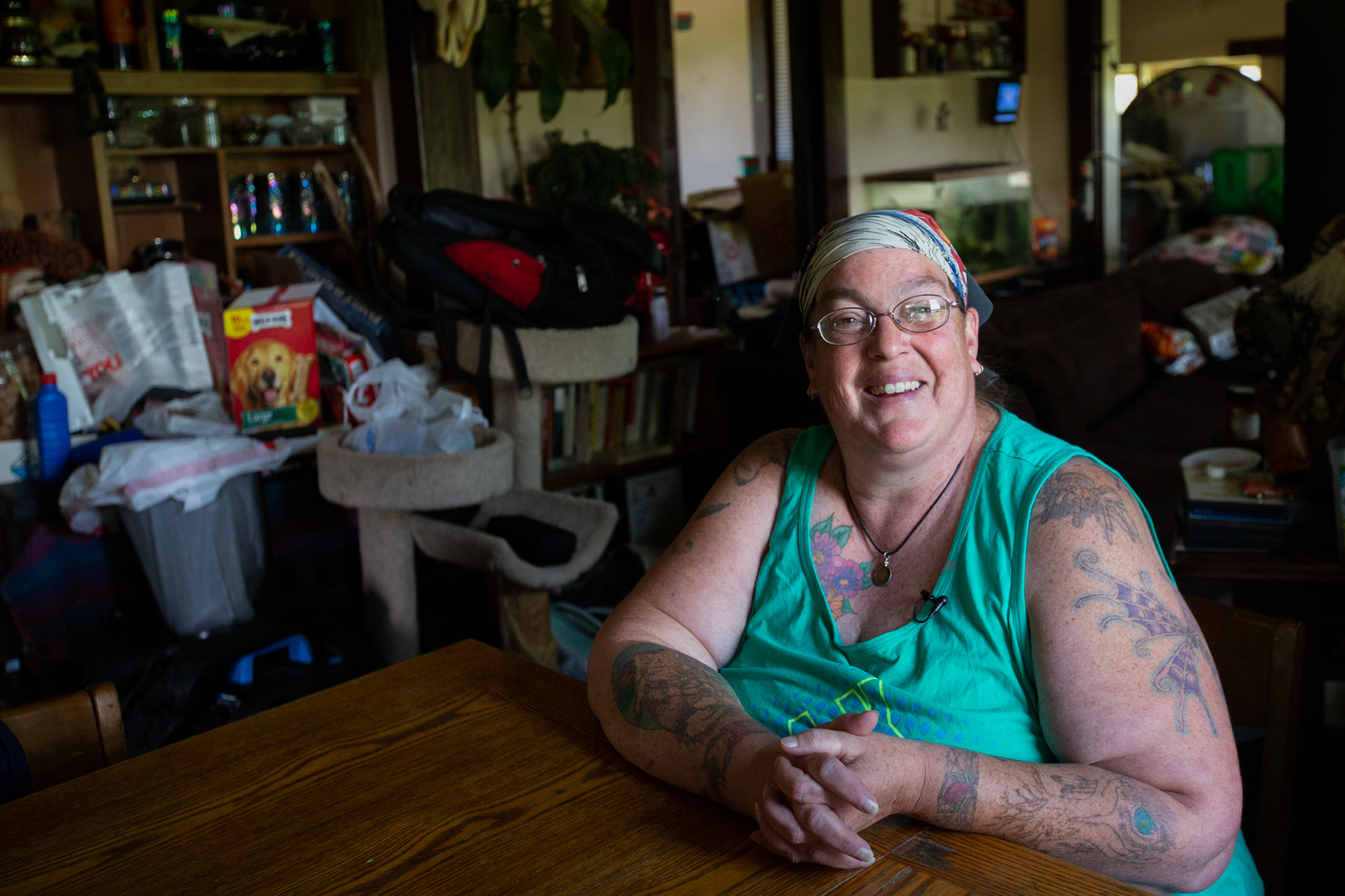
Emy Collin | Nebraska Floods, 2019
Emy Collin, a member of the Ponca Tribe of Nebraska, moved her family back to the tribe's ancestral homelands by Ponca Creek three years ago. But in March, the Missouri River and its tributaries flooded, cutting off Collin and her family from the outside world for 18 days. For the first two days, her 14-year-old son was unable to get home, instead staying with the school bus driver. (Anya Magnuson/News21)
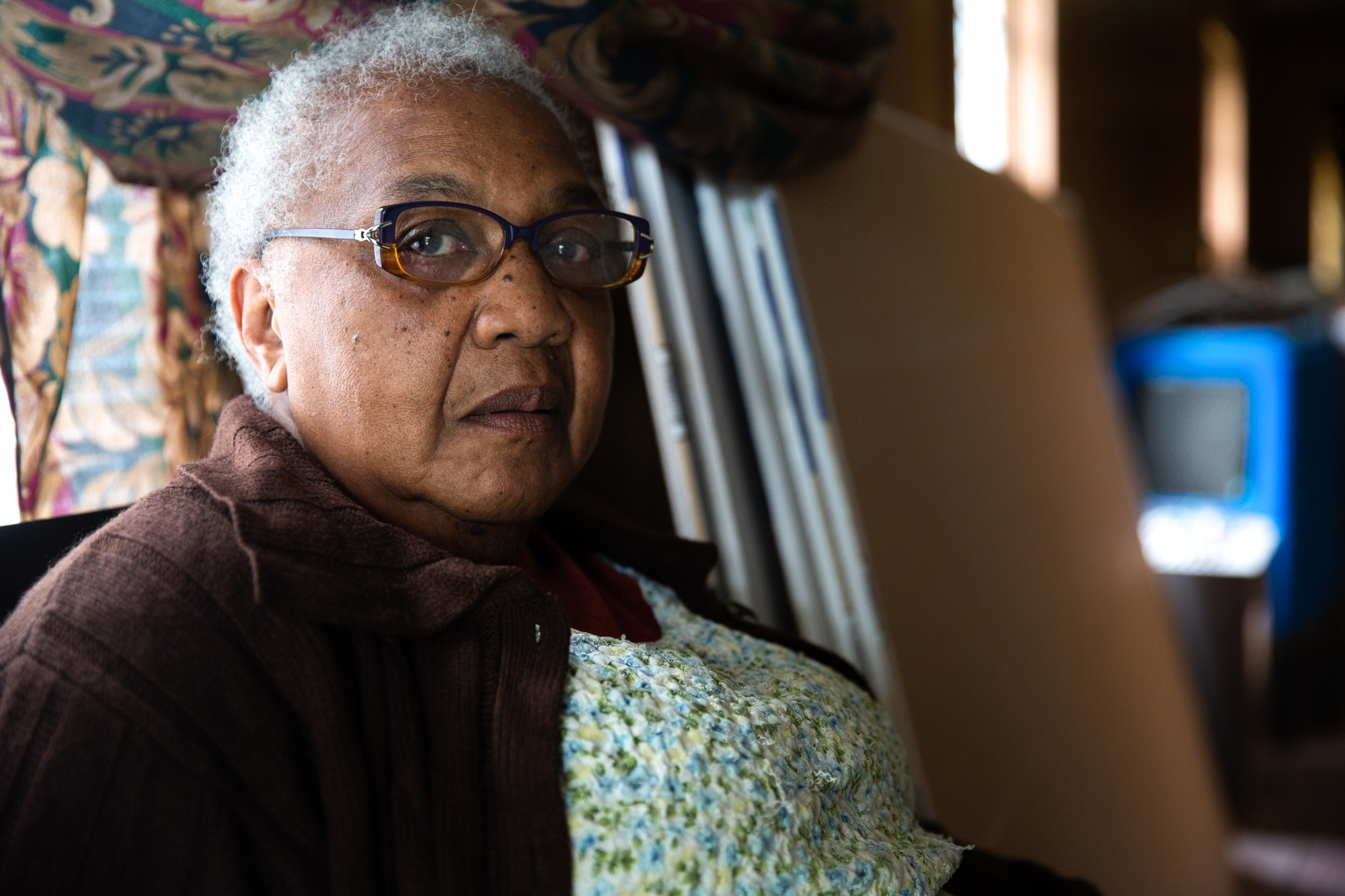
Mary Smith | Hurricane Florence, 2018
Mary Smith, a lifelong resident of Dillon, South Carolina, was forced from her home after it was badly damaged by Hurricane Florence. She lives with her son in nearby Florence but every day makes the 30-mile commute just to sit in the home her father built. (Harrison Mantas/News21)
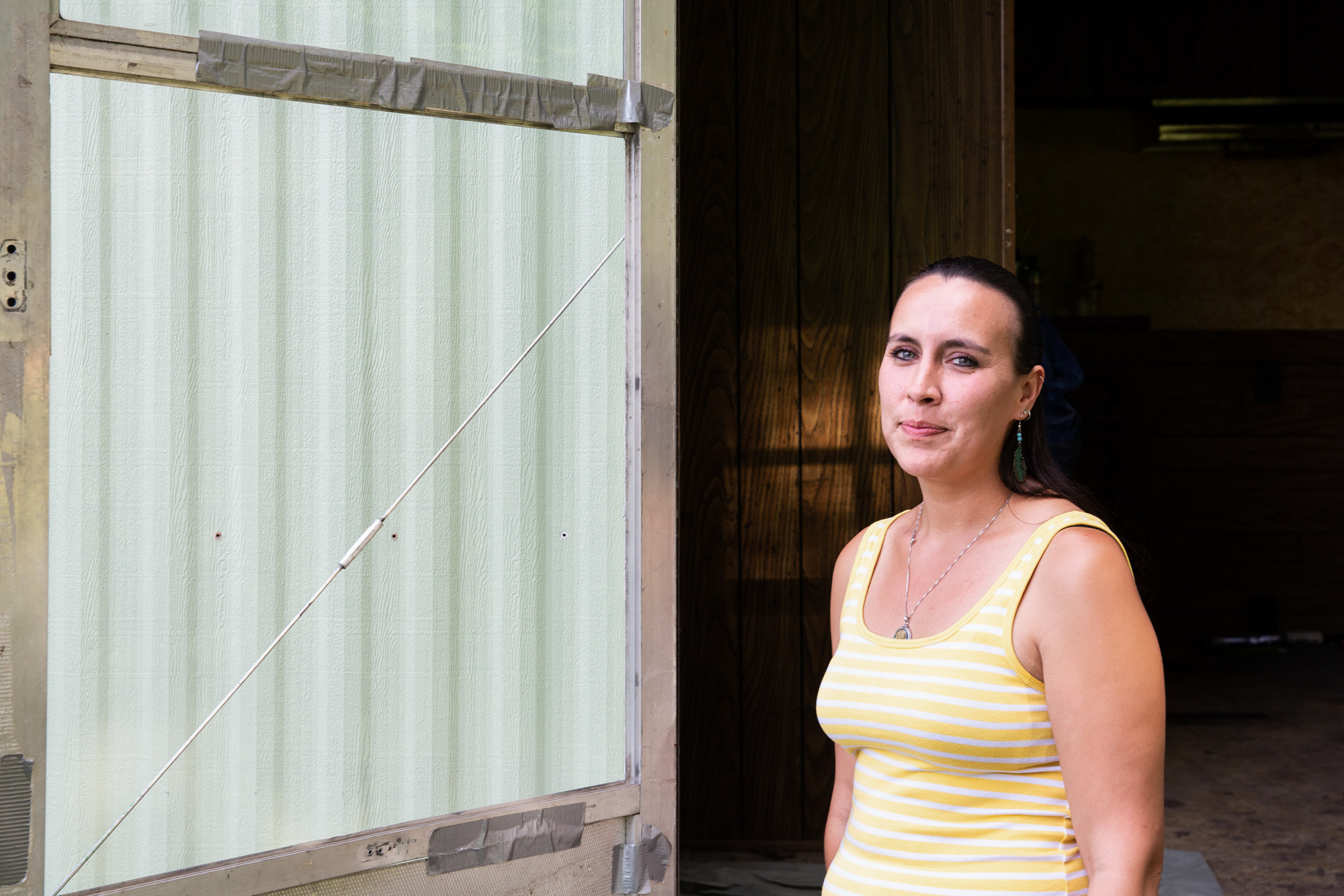
Robin Rich | Nebraska Floods, 2019
Robin Rich, a member of the Ponca Tribe of Nebraska, is one of the few people in Verdigre whose home was a total loss after March floods. Because her trailer home had been a gift from her parents, Rich struggled to prove to FEMA that she was the owner, and she went through the appeals process three times to receive aid. Three months after the flood waters receded, she still hadn't gotten her destroyed trailer removed. (Anya Magnuson/News21)
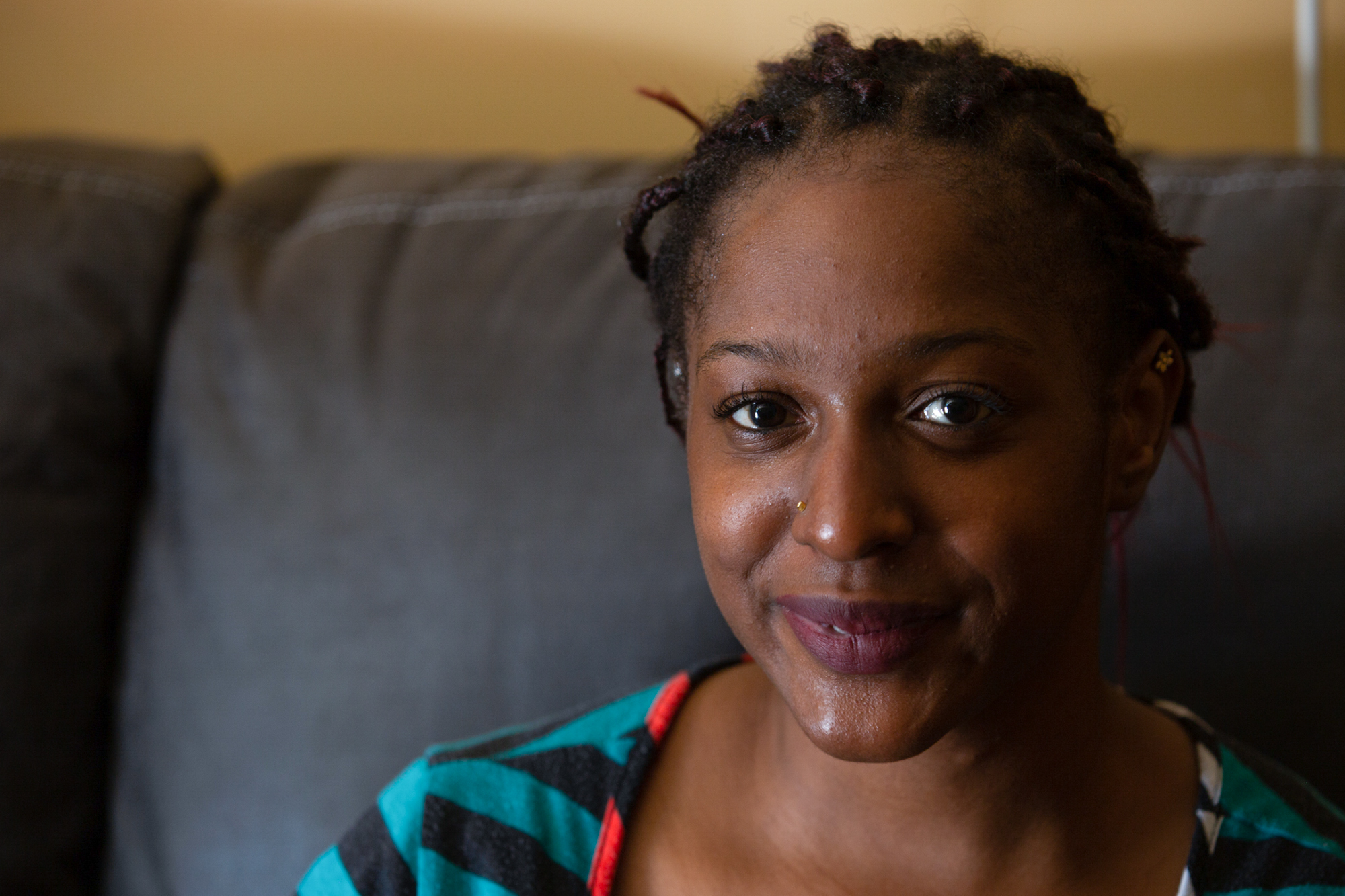
Naomi Davis | Hurricane Florence, 2018
Naomi Davis, 24, a single mother in Fayetteville, North Carolina, was forced to move out of her storm-damaged trailer because she has no way to pay for repairs. Davis, who has a blood clotting disorder and needs open heart surgery, has since moved into a new trailer with assistance from the Cumberland Disaster Recovery Coalition. (Harrison Mantas/News21)
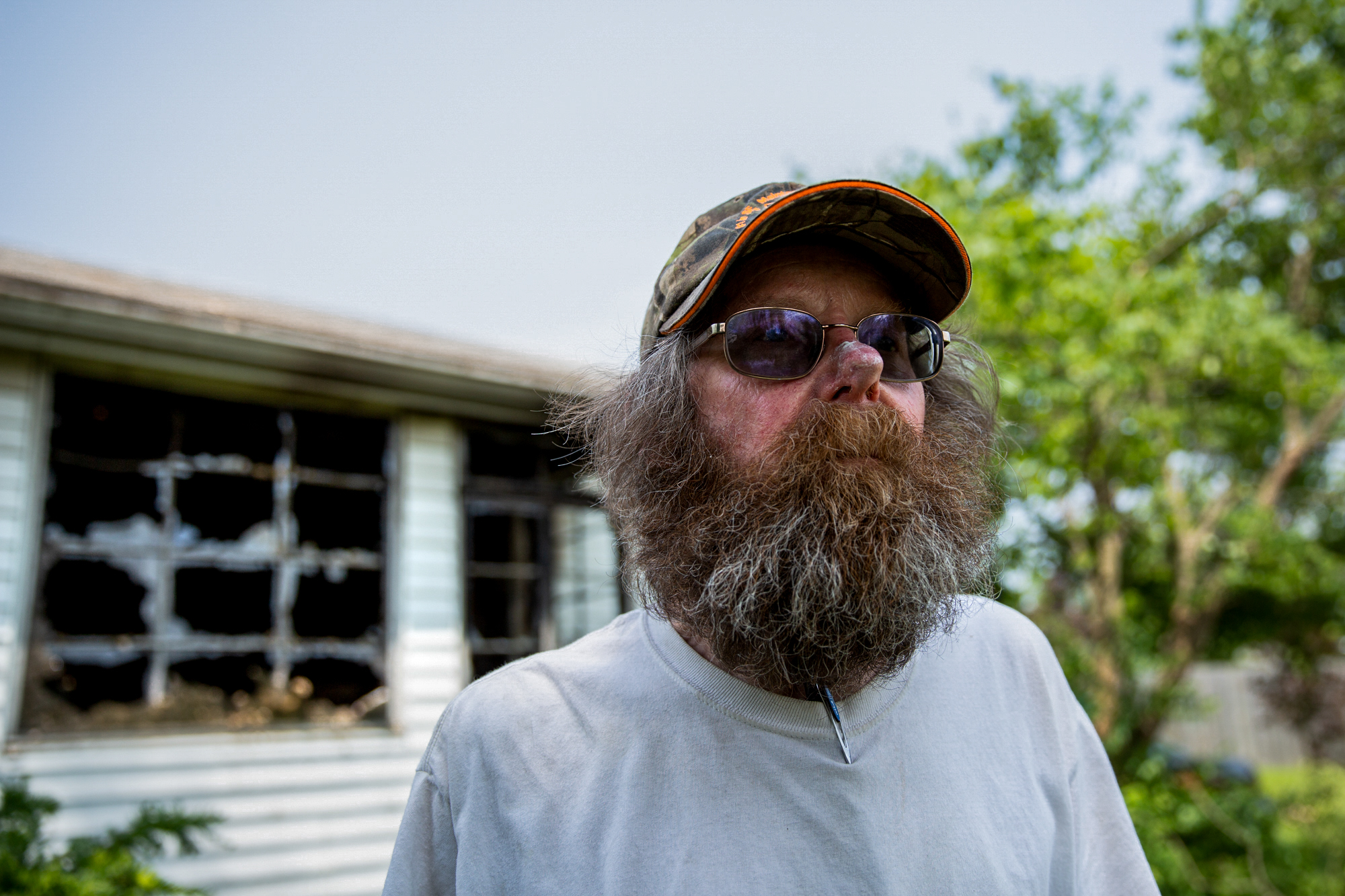
Kirby Schumacher | Ohio Tornado (EF3), 2019
Kirby Schumacher of Beavercreek, Ohio, remembers feeling lucky after tornadoes in May missed his house. But six days later, after power was restored to his neighborhood, his house caught fire due to a suspected electrical fire. Schumacher had forgotten to turn off the breaker and was not home when the power came back at 5:15 p.m.; in 15 minutes, firefighters were outside his house. (Stacy Fernández/News21)
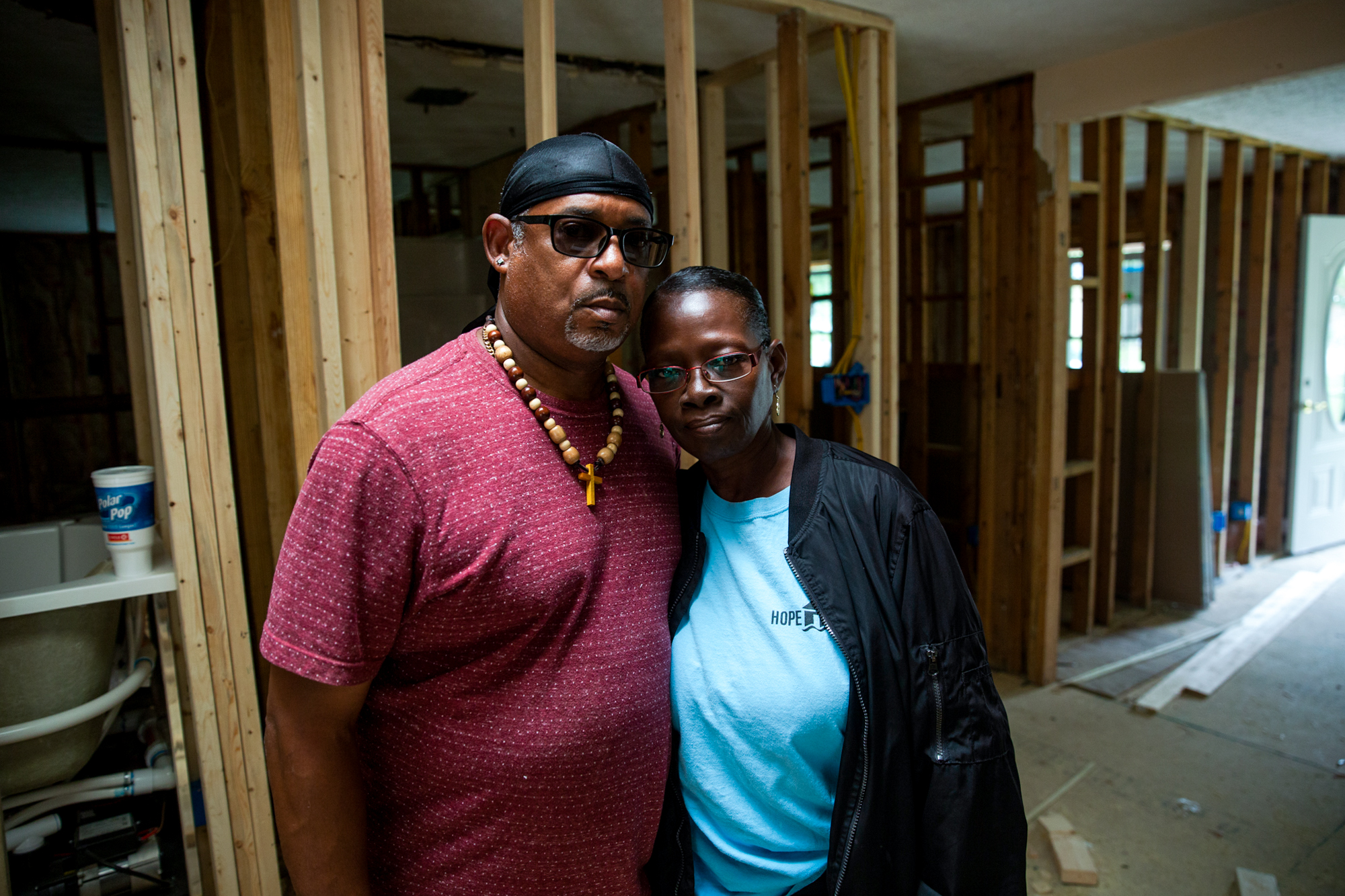
Lloyd and Regina Evans | Hurricane Florence, 2018
Lloyd and Regina Evans of Spring Lake, North Carolina, struggled to get federal and state aid to repair their home after Hurricane Florence. They've had to put every penny back into the project. “Right now, I just go to get home,” Regina said. (Harrison Mantas/News21)
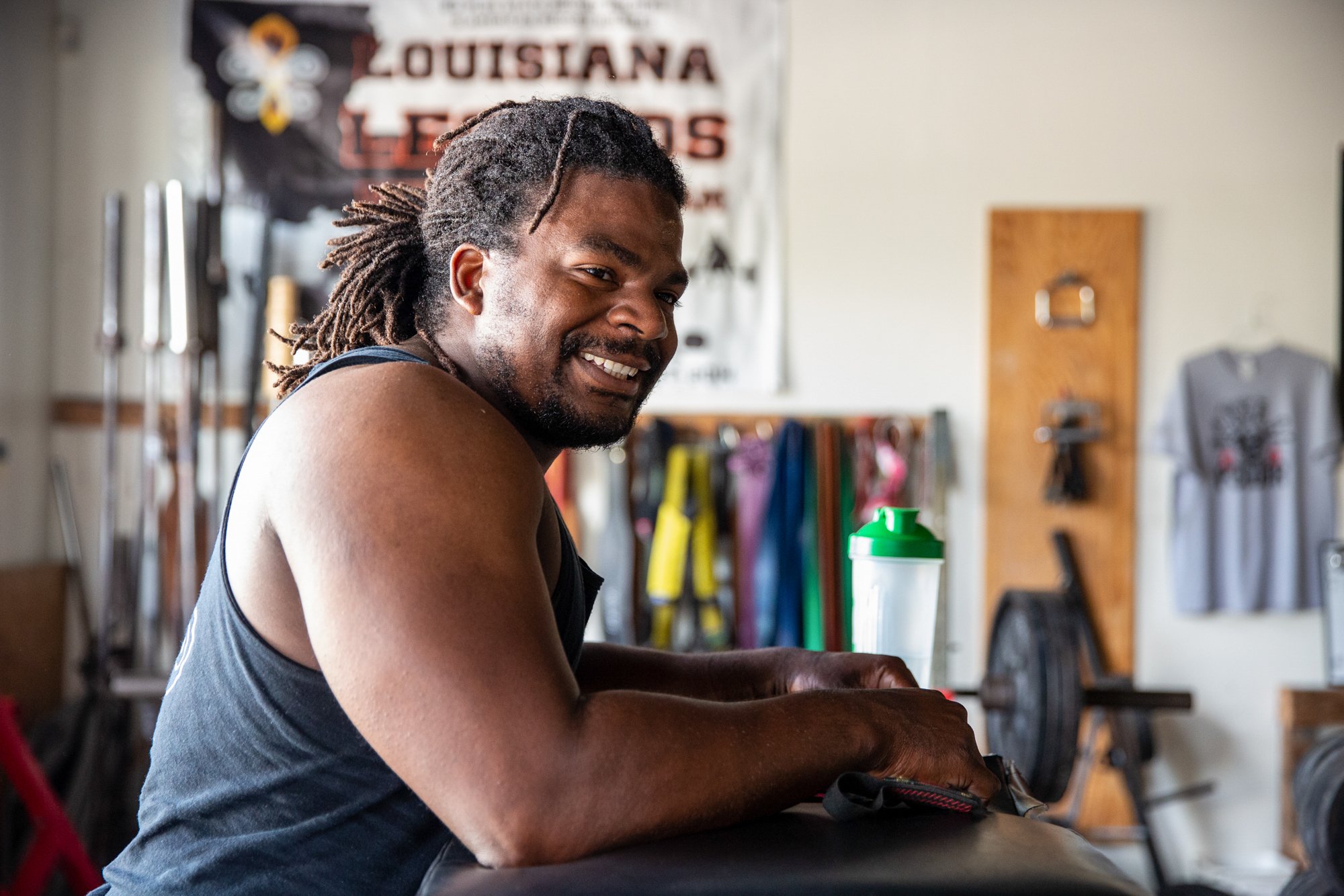
Garrett “Bottesy” Bailey | Hurricane Katrina, 2005
Garrett “Bottesy” Bailey was 13 when he evacuated from New Orleans to Baton Rouge, Louisiana, during Hurricane Katrina. Bailey felt guilty for surviving when so many others didn't make it out. In the years that followed, he has used powerlifting to cope with his depression. (Ellen O'Brien/News21)
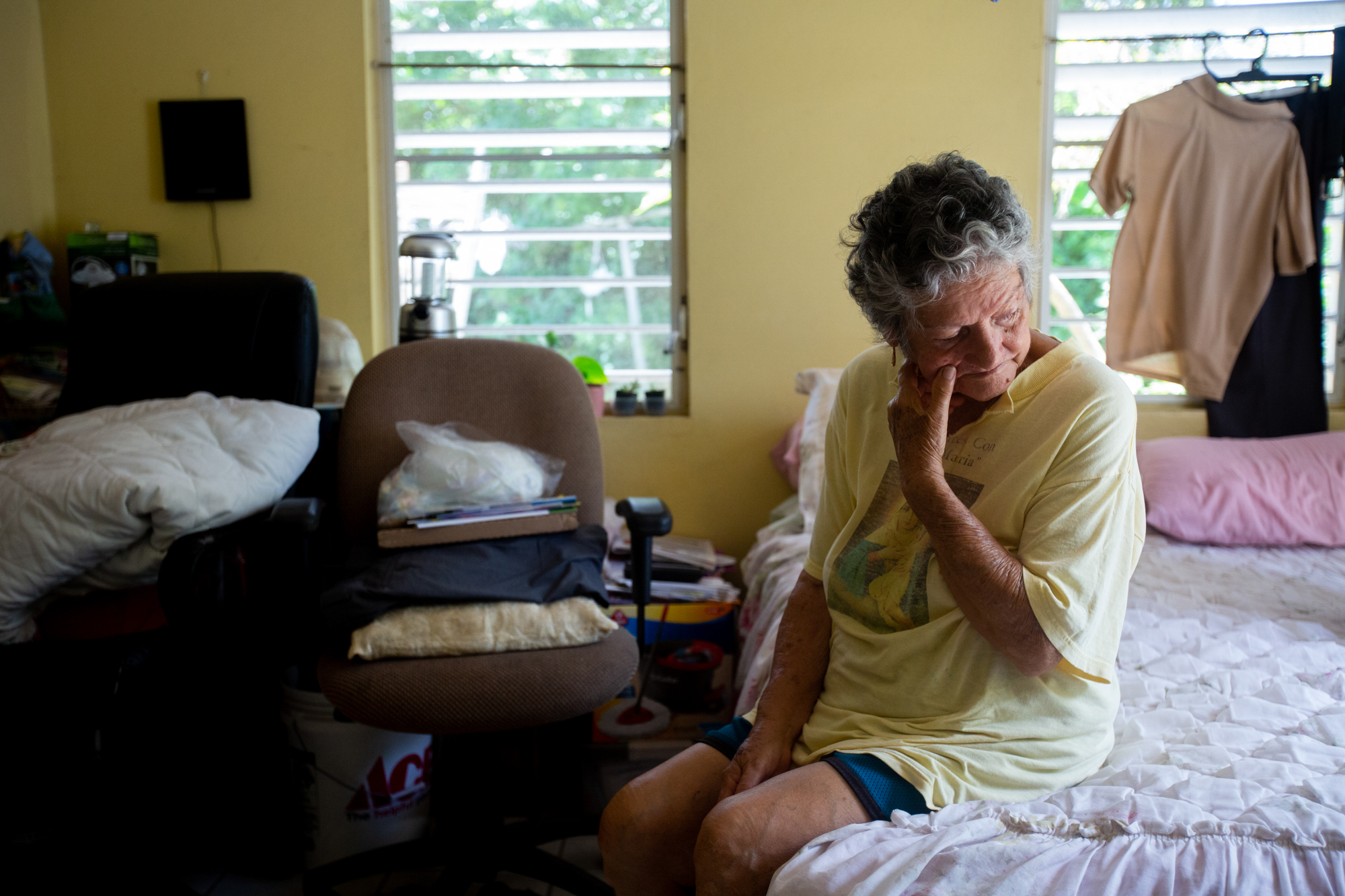
Norma Huertas | Hurricane Irma/Maria, 2017
Norma Huertas, 82, still lives in her mostly destroyed home in Frederiksted, U.S. Virgin Islands, since the 2017 hurricane season. Huertas doesn't want to move because their neighbors know to keep an eye out for her husband, Guillermo, who has dementia and a tendency to wander. (Anya Magnuson/News21)
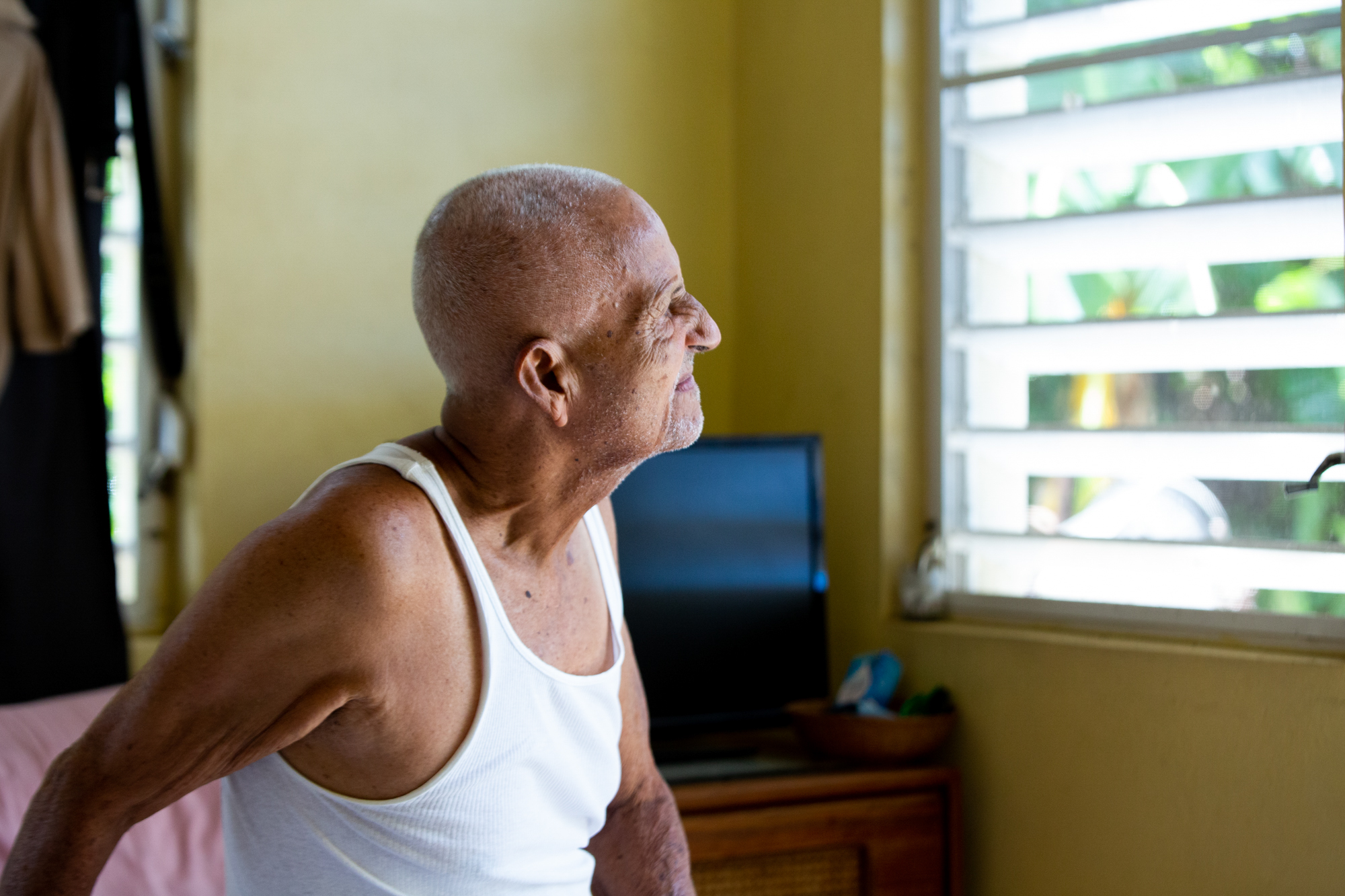
Guillermo Huertas | Hurricane Irma/Maria, 2017
Guillermo Huertas, 90, has dementia and is living with his wife and daughter in Frederiksted, U.S. Virgin Islands. Although much of their house sustained heavy damage almost two years ago, the family is reluctant to move. (Anya Magnuson/News21)
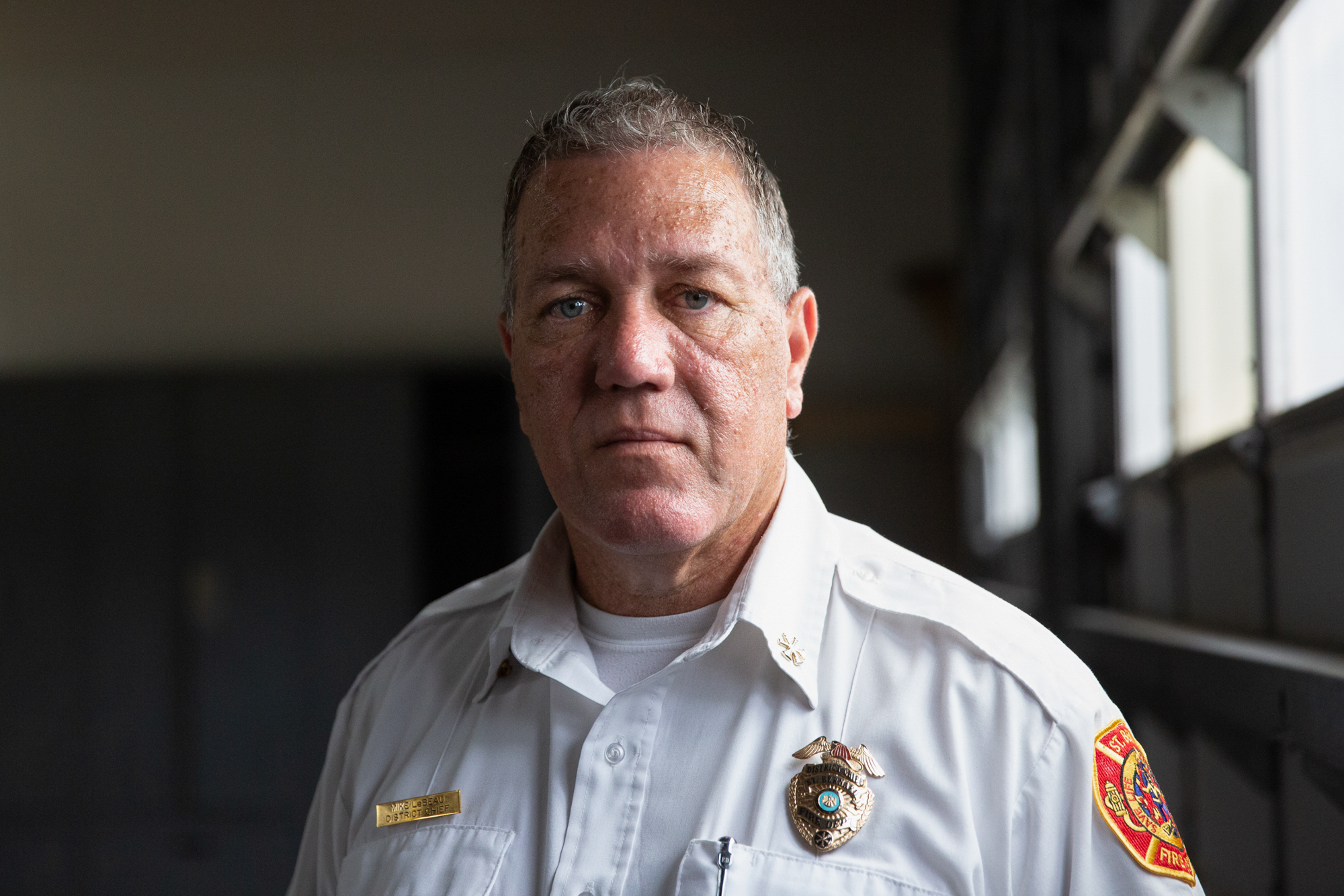
Michael LeBeau | First Responder Hurricane Katrina, 2005
District Chief Michael LeBeau of the St. Bernard Parish Fire Department worked 17 days straight during Hurricane Katrina, operating a shelter and helping with evacuations. He says it's important for first responders and those impacted by disasters to get the emotional support that he never received during those grueling weeks. (Ellen O'Brien/News21)


